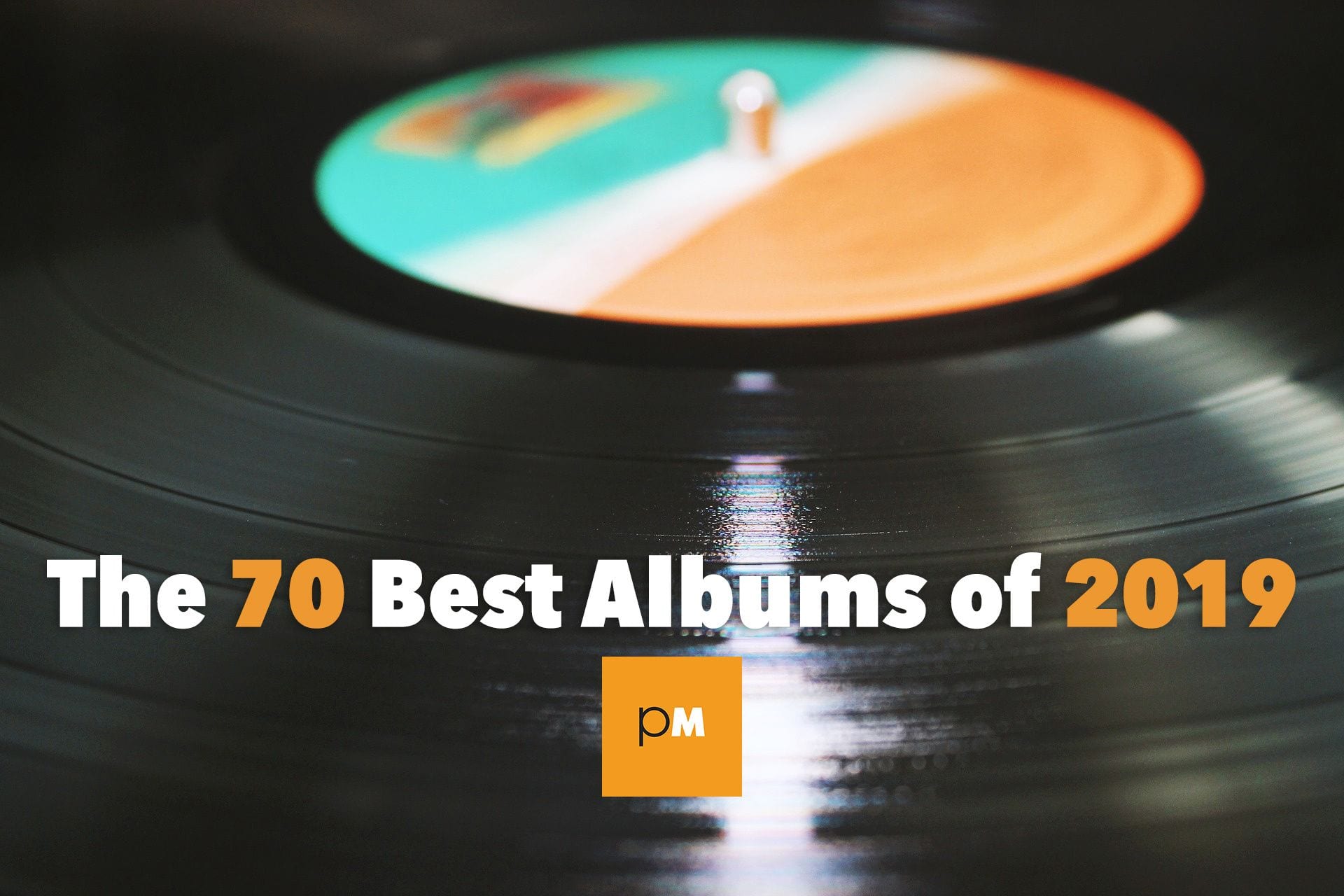Angel Bat Dawid – The Oracle [International Anthem]
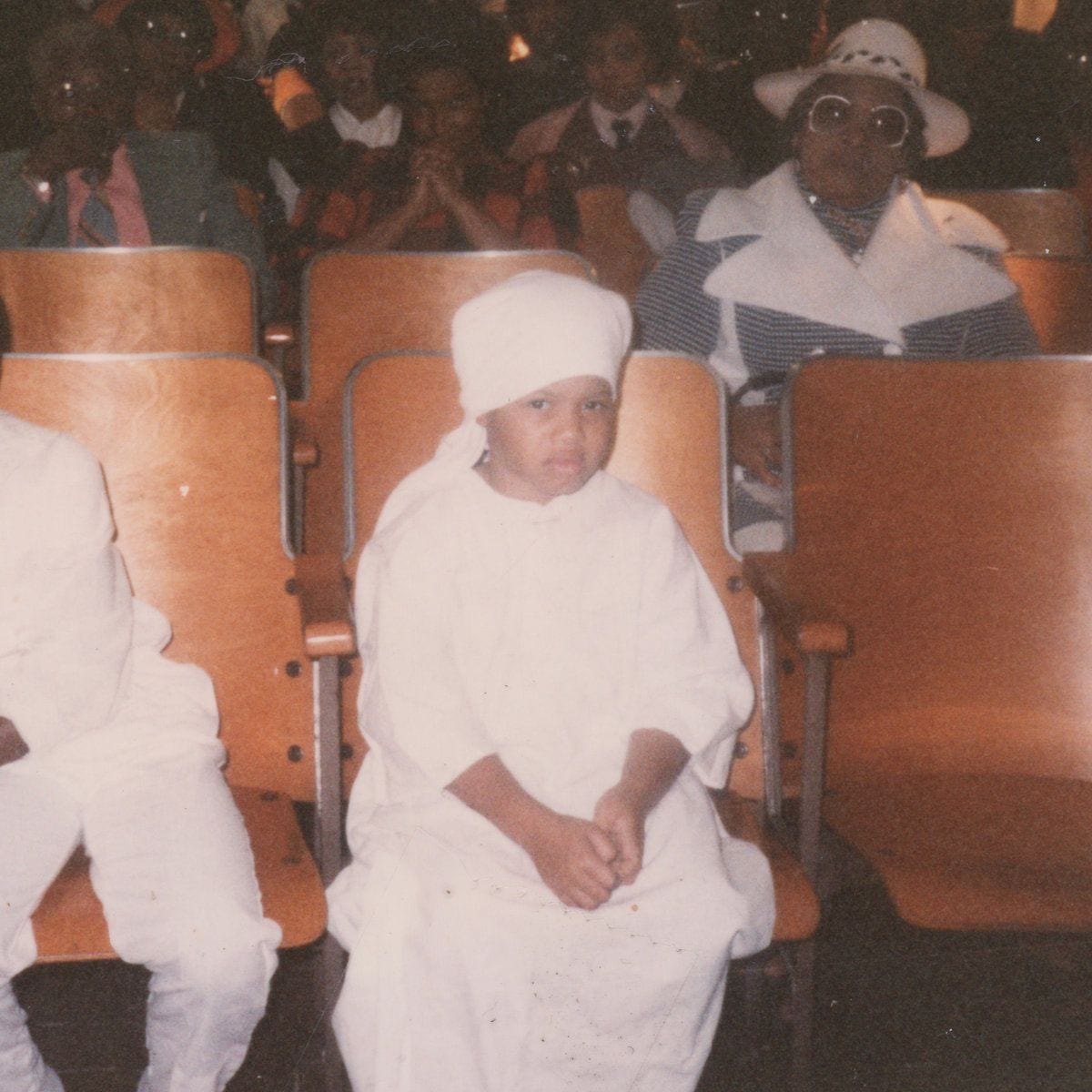
The Oracle is more than just a record. It is a most powerful document, a spiritual field recording of sorts, of the life and work of clarinetist and composer Angel Bat Dawid. But the Chicago based artist doesn’t limit herself to just archiving an individual’s experience. Instead, she frames her story into larger, inescapable narratives to capture and reflect what it means and what it has meant to be black in a world still haunted by racism and oppression.
Recorded using a phone in situ and ad hoc during Dawid’s travels and performances, the essence of The Oracle is as much about the music it carries—free jazz, funk, gospel, hip-hop, and blues channeled through Dawid’s looped and quilted voice, clarinet, electronic effects, and found sounds—as it is about imprinting the life force and struggles that inform it into a singular work of art. An ongoing ritual. A timeless history. – Antonio Poscic
 Light bulb by ColiNOOB (Pixabay License / Pixabay)
Light bulb by ColiNOOB (Pixabay License / Pixabay)
Orville Peck – Pony [Sub Pop]

The elevator pitch for Orville Peck’s debut for Sub Pop – gay country music by a guy who never takes his fringed lone ranger mask off – would seem gimmicky if the thing weren’t stuffed so full of genuine love and feeling for a genre that has often been so unforgiving of its themes. And then, of course, there’s that voice – deep and emotive, filling out every song with warmth and color that’s often missing from the twangy sneer of this decade’s most notable country hitmakers. There’s something tangibly old-fashioned about the whole project, decidedly unhurried even on its few bangers – Pony is a proud mood record, doesn’t reduce itself to the lowest common denominator for the sake of more accessible genre pastiche.
It is, however, notably gay – subversive in its mere existence in a genre landscape that’s just about as unsaturated as it can get. What’s most impressive is the way that Orville Peck proves how suited country music is as a vehicle for the often complicated machinations of gay love. In its purest form, country can be a powerful host for tales of romance, heartbreak, wanderlust, death. Witness the shoegaze-tinged nostalgia of “Dead of Night”, the hazy radio love story of “Roses are Falling”, and “Take You Back”, a classic country kiss-off with major potential to unite more than a few disparate sorts of people. All of them come together for a record that sells a particular bit but is smuggling something far more real. – Nick Malone
The Highwomen – The Highwomen [Elektra]

Beginning as a viral response to country music’s lack of female representation on airwaves and at festivals, the Highwomen have become quickly become a new staple and influencer of the country and Americana scenes. Comprised of Brandi Carlile, Amanda Shires, Maren Morris, and Natalie Hemby, the supergroup hearkens back to the legacy of the Highwaymen with fun and accessible choral productions.
Simultaneously, their self-titled debut album is so much more, permeating with palpable, rambunctious energy and an empowering feminist message throughout. The Highwomen’s most palpable moment might be in the opening theme song. It features fellow powerhouse Yola, wherein the Highwomen embody the tales of oppressed women throughout history. Elsewhere, the album becomes deeply personal, fun-loving, politically relevant, and expressive, varying in theme and musicality from song-to-song enough to offer each of its four frontwomen ample room to shine. Supergroups can so often miss their intended mark, but the Highwomen manage to stick the landing—and as far as supergroups go, these four are our next great hope for one that lasts. – Jonathan Frahm
Sleater-Kinney – The Center Won’t Hold [Mom + Pop]

One of the most admirable characteristics of venerable Portland trio Sleater-Kinney has been the fearlessness they’ve displayed for more than two decades. They confront, they agitate, and they continually defy expectations, which, ironically, is what shook many in their 40s out of their middle-aged stupor upon hearing Sleater-Kinney’s ninth album. With the help of like-minded innovator Annie Clark (St. Vincent) as producer, co-conspirators Carrie Brownstein and Corin Tucker wrote the catchiest material of their career and turned their sound inside-out. The arrangements are stripped bare, more focus is placed on the vocals, and atonal noise punctuates nearly every track.
It’s an inspired shift in direction, although the decidedly mechanical drumming cost Brownstein and Tucker their longtime collaborator Janet Weiss, who left the band, dismayed with the final product and her reduced role in the band. Regardless of how Weiss feels – and she will be missed – such stunners as “Hurry on Home”, “Reach Out”, “Can I Go On”, “The Future Is Here”, and the joyous “LOVE” are astounding marriages of pop, indie rock, and experimental music, making The Center Won’t Hold an instant classic. – Adrien Begrand
Raphael Saadiq – Jimmy Lee [Columbia]
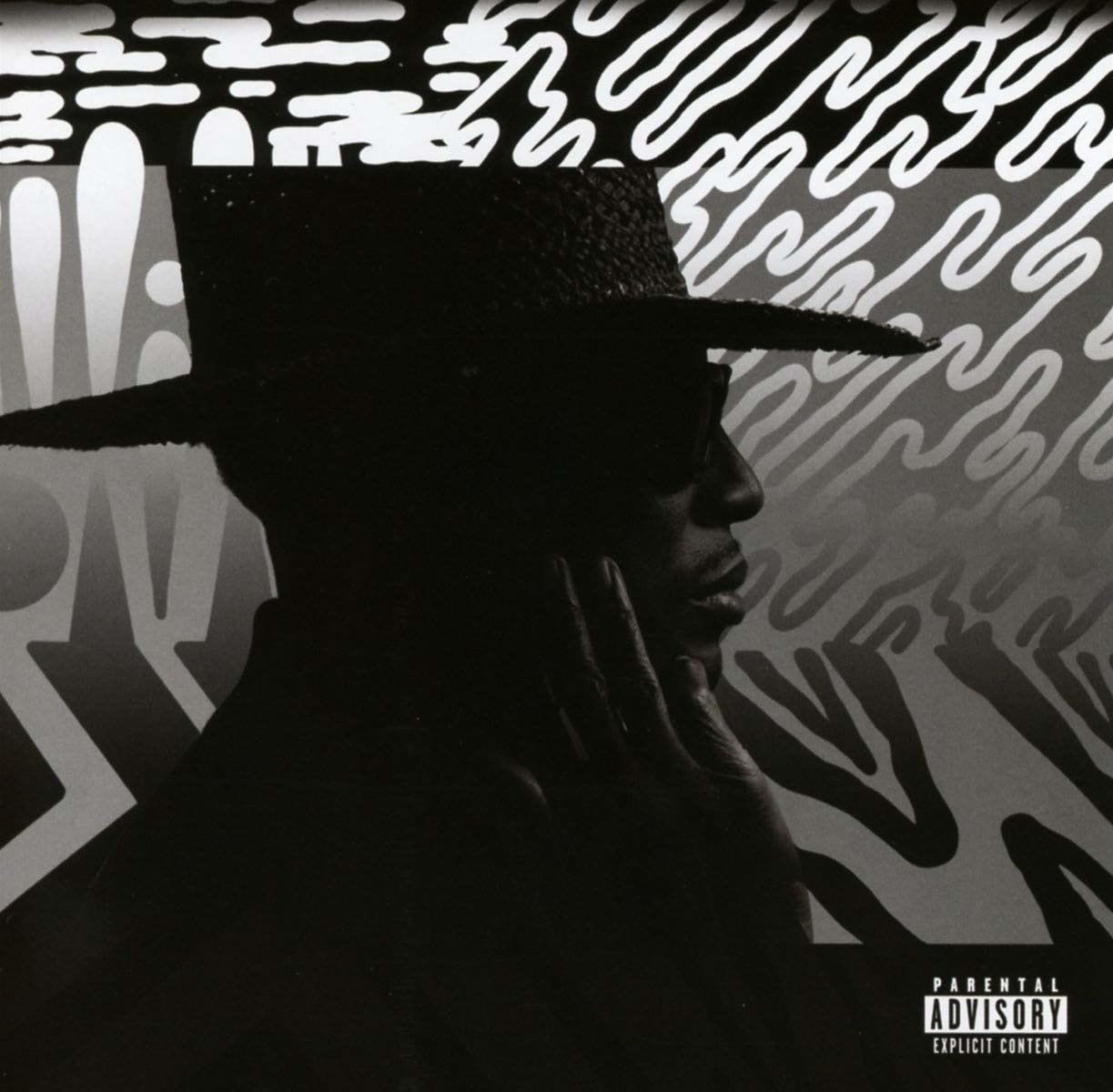
Jimmy Lee is Raphael Saadiq’s first album in eight years. Since then, he’s acted, done work for commercials, and served as executive producer for Solange’s A Seat at the Table, an album that is on many “best of the decade” lists. For his return to the solo stage, he chose to focus on the death of his older brother (the album’s namesake) from a heroin overdose.
Drug addiction and the trauma of incarceration loom over tracks like “Rikers Island” and “This World Is Drunk”. For the latter song, Saadiq vividly portrays the mental scars of an addict: “He’s always in three places / Spaces undefined / Heart is always racin’ / For something he will never find.”
Jimmy Lee is an unrelentingly dark 40-minute voyage. But given it’s Raphael Saadiq, there are moments of levity, despite the horrors he documents. The repeated chorus of “And then I broke your heart,” on “So Ready” give off a deceptive feel that it’s a song about someone who’s broken some hearts in their lifetime, but the reason for the heartache is their addiction. Jimmy Lee can be a difficult listen. Still, Saadiq’s production mastery, not to mention the album’s expert pacing, makes it one of the most depressing albums you’ll ever want to replay the moment it ends. – Sean McCarthy
Charly Bliss – Young Enough [Barsuk]
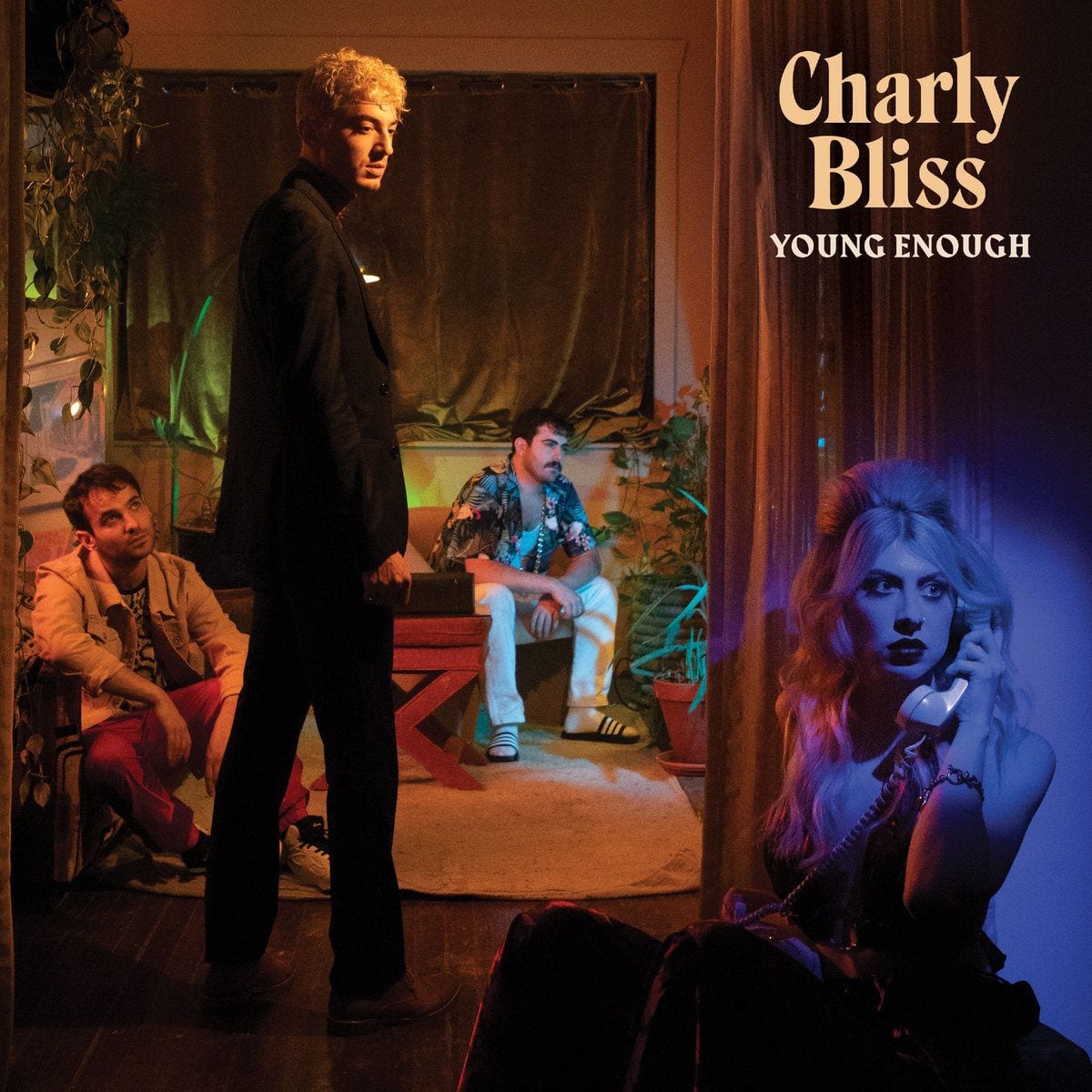
Two years ago, Charly Bliss’s Guppy came saturated in personality, the complexity of young adulthood spread across an album of pop-rock hooks. Eva Hendricks sounded confident in her uncertainties, and the band knew exactly how to get where it was going. Now, with Young Enough, the band arrives. The group promotes some synth and sheen in its sound. The complex songs suit the musicians’ growth without slowing them down any; maturity with Charly Bliss means getting better, not getting rigid. Hendricks remains witty, but it never gets in the way of the underlying emotions. She faces some dark places. The album’s codependency and abuse overtake simple heartbreak.
Hendricks’ lyrical position moves forward in time just enough to give her a short-range perspective. The songs that look back do so only into the recent past, with no room for nostalgia or narrative-massaging. The songs that look sideways do so with a greater perspective. The title track subverts youth anthems while becoming one that matters, the production opening an echoing room with space for the rest of us. Young Enough carries plenty of pain, but a pain to be overcome rather than indulged beyond necessity. Charly Bliss might slow down and reflect a little more, but they still play like an unending burst that seems to grow continually brighter. – Justin Cober-Lake
black
midi – Schlagenheim [Rough Trade]
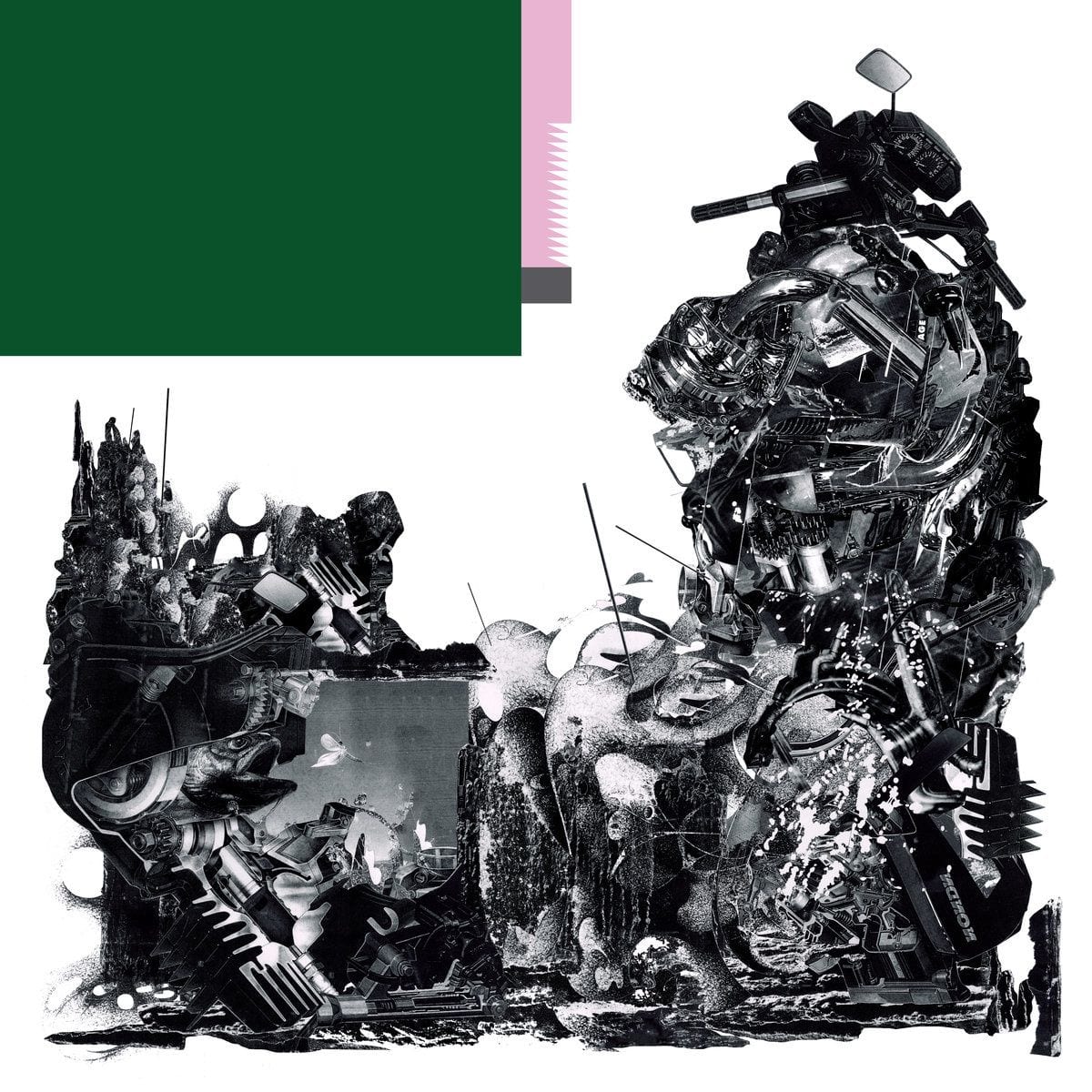
The
genre black midi aims to blackout measures by colliding notes by the thousands, millions, or even billions. For what reason? Perhaps just for the experimental practice or sheer absurdity of results, but the young noise rock band that adopts the genre’s name employs a similar ethos. On their short but dense debut Schlagenheim, black midi shares nine bewildering, dynamic tracks that leave you wondering what was the purpose, but also, how can I hear more?
Most clearly, Cameron Picton, Geordie Greep, Matt Kwasniewski-Kelvin, and Morgan Simpson are highly talented musicians. On their debut, the BRIT School grads have managed to harness the live energy and seemingly improvised structures of the KEXP performance that landed them a record deal with Rough Trade. As such, songs like “bmbmbm” and “953” move with contorted riffs that allow for an array of nonsensical rants and piercing drum fills.
Throughout Schlagenheim, this explosive blend of mathy riffs, absurd vocal play, and masterful drumming satisfies ears, but as aforementioned, is there a purpose beyond decadent musicality? On “Near DT, MI”, Picton shrieks about Flint’s water crisis, “I’m alive and I can see / The water is foul and it’s hard to breathe / There’s lead in the water.” Perhaps, this outlier intimates a future political purpose for the young group, or not. Regardless, black midi’s virtuosic, mind-bending debut is exciting enough to stand out from the predominately pop-dominated 2019. – Hans Kim
Jade Bird – Jade Bird [Glassnote]

Young people understand life is important, damn it. Their passion for experience is fresh and new, even when they betray cynical attitudes and skeptical behaviors. The lively British singer-songwriter Jade Bird’s self-titled debut album captures that youthful intensity. She was 21 years old when she released this album, and it shows in her enthusiasm. Bird energetically slashes her acoustic guitar strings and fervently sings in a voice that can veer from a snarl to a scream to a sigh about finding romance, outgrowing relationships, cheating lovers, and just trying to figure out her place in the world. Yet she still manages to articulate every word.
Her compositions like “Uh Huh” and “Lottery” may be simple narratives on the surface, but through repetition and intonation, the lyrics capture the multiple meanings inherent in all human affairs. Desire itself; the appetite for someone, someplace better than this keeps Bird motivated. Her music suggests the pleasure and the pain of being with other people in the search for one’s authenticity. – Steve Horowitz
Solange – When I Get Home [Columbia]

Another year, another exceptional Solange album. At this point, Beyonce’s infinitely more interesting sister almost feels like the R&B Kendrick Lamar, with her no-fucks-to-give songcraft that explores the distance between pop and ambiguity in ways not often seen in the American wing of the genre. It’s a masterclass in individuality and an inspiration in imagination.
Take “Almeda”, which combines Southern roots with a message that might even make Childish Gambino smile. “Way to the Show” then hints at Janelle Monae futurism while keeping things strictly Solange, her subdued vocals taking a backseat to the hook, which will stick in your head for days. Then, there’s “Time (is)”, which, with an assist from UK crooner Sampha, provides a mesmerizing first half before kicking into some semblance of a groove that won’t let go of your consciousness. – Colin McGuire
Slayyyter – Slayyyter [Self-released]

Harnessing the contemporary powers of stan Twitter and modern nostalgia, Catherine Slater turned her pop aspirations into a full-fledged fandom. Though the project stems from early 2010s trends, Slayyyter arose in an age where listeners’ pop sensibilities have been expanded by 100 gecs, Charli XCX, and Rina Sawayama. As people start taking pop as seriously as Ann Powers, artists can better explore its possibilities. Slayyyter’s music occupies a unique stratus of pop culture similar to that of entertainment podcast Who Weekly, where celebrity culture is celebrated with the tongue planted firmly in cheek. Slayyyter does the same with pop stardom, a phenomenon Slater the person finds both compelling and ridiculous.
The mixtape begins with the hype-fueling “Mine” and “BFF”, the latter featuring the elusive Ayesha Erotica, that lead into an array of David Guetta-era dance-pop and bubblegum electroclash. “Celebrity” picks up where “Who’s That Chick” left off, but this time the narrative invites the cameras inside. Up close, the claws come out (“Devil”), and the hedonism cuts loose (“Motorcycle”). In the end, the potential risks only add to the fun of it all, which is why Slayyyter and her fans can’t cut loose from this hyperkinetic, clubland that pop music has led to over the decade. – Mick Jacobs
Elbow – Giants of All Sizes [Polydor]

Almost 15 years ago, Elbow released an album called Leaders of the Free World, whose title track declares, “The leaders of the free world / Are just little boys throwing stones.” That claim remains sadly true all these years later – Bush now Trump, Blair now Boris. But if some social ills haven’t gone away, at least we have bands like Elbow to help us process our ongoing slide into the Anthropocene.
On Giants of All Sizes, Elbow takes on national isolation (“Empires”), austerity (“White Noise White Heat”), and Brexit (“Dexter & Sinister”), all with subtly complex arrangements and frontman Guy Garvey’s loquacious lyrics. “How can a bland unremarkable typical Tuesday be Day of the Dead?” Garvey sings on “Empires”, a question that expertly captures the paradox of modern boredom meeting the feeling of societal decline. It’s not all doom and gloom, though; on “Weightless”, a reflection on becoming a new father, and the soaring ballad “My Trouble”, Garvey sings, his voice as golden as ever, about how holding loved ones close can get us through the worst of times.
Giants of All Sizes captures everything about the hopes and failures of the West’s modern political moment: never too sentimental, nor too apocalyptic. This is where we are now. – Brice Ezell
Boy Harsher – Careful [Nude Club]

The darkwave duo of Boy Harsher, made up of Jae Matthews and Augustus Muller, have been steadily releasing music since they met in film school in Savannah, Georgia, in 2012. Rumor has it that the pair bonded when Matthews spotted Muller dancing along New Order’s “Bizarre Love Triangle” at a party, and she decided to send him her writing afterward. Having relocated to Northampton, Massachusetts, and having launched their label, Nude Club, Boy Harsher now return with their hypnotic new album, Careful.
On Careful, Boy Harsher mix industrial sounds, techno beats, 1980s new wave synths, icy and cavernous vocals, and a David Lynchian aesthetic to rapturous effects. The record is a cohesive and danceable collection of ten songs that evoke a sense of unease, loss, sex and danger, and sound as if they belong in a Berlin club. In all its synth-goth glory, Careful is essentially an invitation to join the party and dance the night away with reckless abandon. – Linnete Manrique
Anna Meredith – FIBS [Black Prince Fury]

Fibs, according to accomplished composer Anna Meredith, are “lies – but nice, friendly lies, little stories and constructions and daydreams and narratives that you make for yourself or you tell yourself”. FIBS is an oddly fitting title for an album that contains playful yet meticulously constructed songs. The composer and musician has a musical mind that seems to overflow with great ideas, intensely and earnestly executed. Meredith has written electronic music, orchestral pieces, film scores, and even a Concerto for Beatboxer and Orchestra.
Her first studio album, Varmints, released in 2016, was a mostly electronic-leaning affair, with orchestral overtones and a penchant for smart pop hooks. Fans of that album will probably eat up FIBS, as it takes on many of the same qualities of its predecessor and even builds on it. Storming out of the gate with the opening track “Sawbones”, Meredith frontloads FIBS with a bold, puzzle-like overture, all brash arpeggios and bursts of contemporary synthesized sweetness. – Chris Ingalls
Thom Yorke – Anima [XL Recordings]
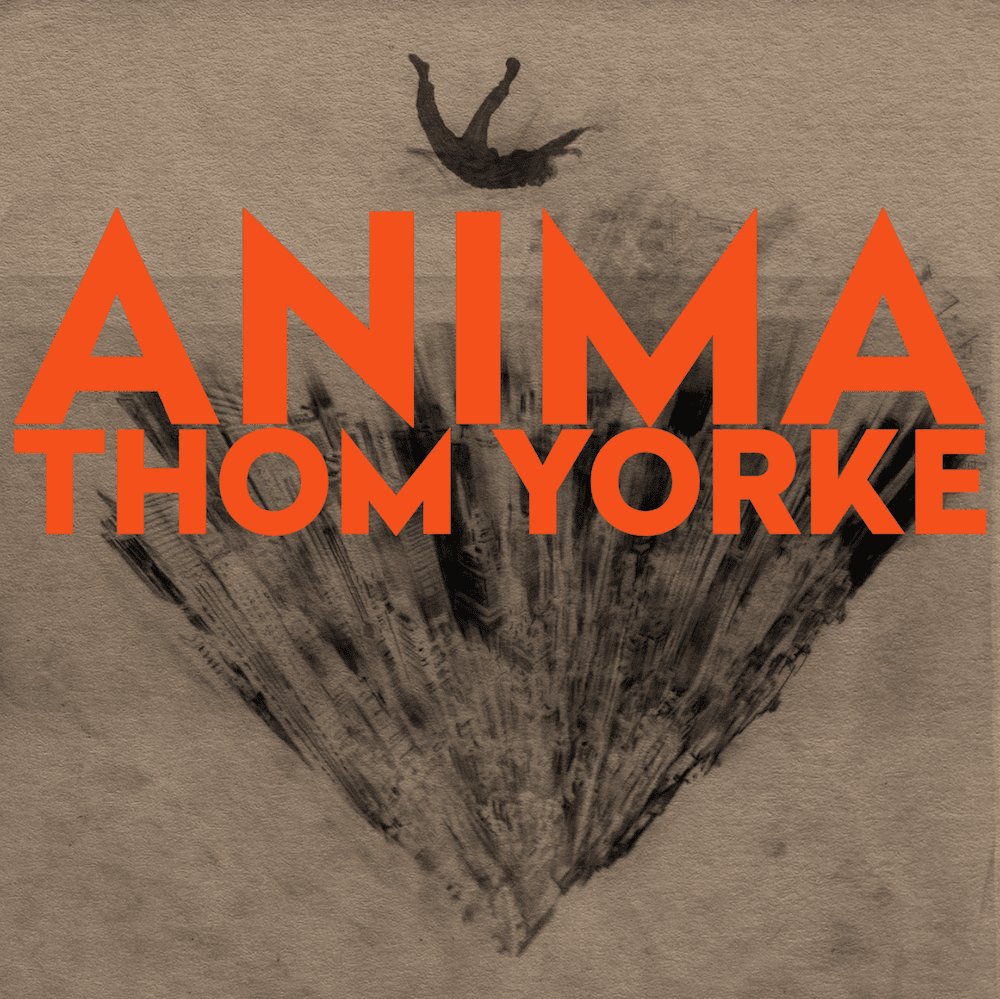
Undoubtedly one of the most gifted frontmen of his generation, there had always felt like something was missing from Thom Yorke’s solo career. While he clearly had the ideas, ability, and enthusiasm to explore his more electronic vision, something was lacking in the execution. It was if he could never fit his songwriting personality in with the electronic music he wanted to make. Additionally, he always seemed a little too in thrall to the likes of Burial, Four Tet, Flying Lotus, and the classic 1990s IDM sound.
However, with Anima, everything seemed to finally click. Musically, it is still Yorke’s take on electronic music, full of shadow beats and fidgety breaks but with a greater sense of melody and, most importantly, a sense of humanity. Of course, the post-millennial angst is all present and correct, but the ripples of chords that close the skittering “Twist”, the achingly beautiful “Dawn Chorus”, and the orchestral swells that close “Not the News” give the album more relatable, emotional heft. Coupled with marimba rhythms, dubby basslines, and genuinely catchy hooks, this felt like his most inventive and most rewarding solo album to date. On Anima, Yorke finally found his groove. – Paul Carr
A Winged Victory for the Sullen – The Undivided Five [Ninja Tune]

Both classical and ambient electronic music often have the power to transcend the physical and take the listener somewhere otherworldly. By blending the two, Dustin O’Halloran and Adam Wiltzie, as A Winged Victory for the Sullen, do exactly that while also managing to tease out complicated and difficult to articulate emotions.
After working on scores of film, TV, and stage commissions, The Undivided Five is the pair’s fifth release together and one that embraces the importance of the number five in art and music. Particularly inspired by Hilma af Klint‘s work with four other like-minded artists known as the “Friday Group” or “The Five” as well as the importance of the perfect fifth to harmony in music theory.
Musically, the pair weave a rich tapestry of complex electronic and neoclassical textures with layers of rich orchestration and analogue synths. However, it’s also an album of contrasts. Many of the pieces seem to be searching for a counterpoint, whether that be a lightness to the darkness, resolution to moments of doubt or ugliness to passages of haunting beauty. – Paul Carr
Adia Victoria – Silences [Atlantic]
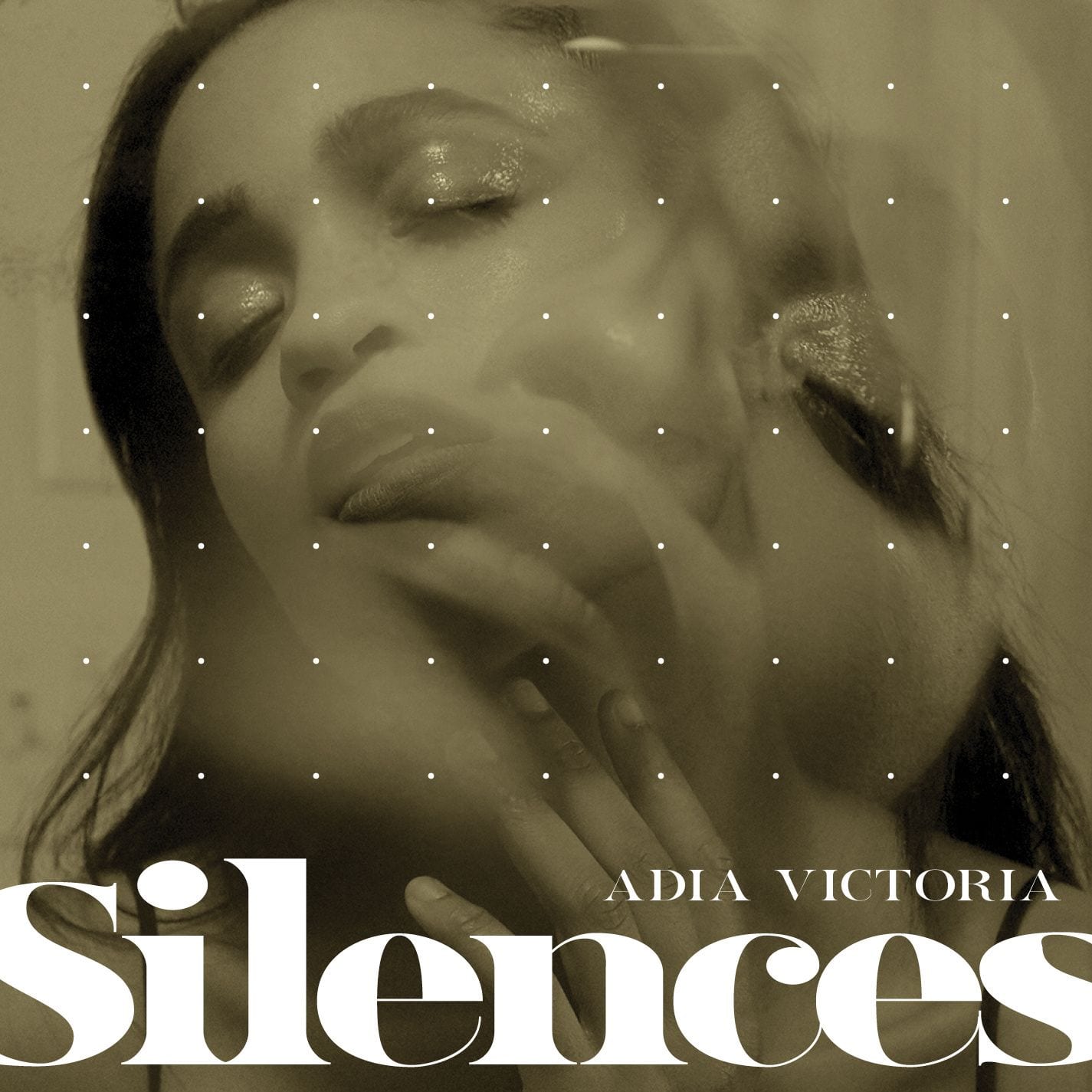
Nashville-based singer-songwriter Adia Victoria tells a tale of escape on sophomore album Silences. It’s a rebellion against racial and faith-based oppression and stagnation in the Deep South that draws on her own experiences as a black woman who grew up Seventh-Day Adventist in small-town South Carolina. By the end of her first track, she kills God; before the last, she has taken his place, the elevated center of her world and her sound. She raises the stakes higher than ever, with aesthetics running the gamut from eerie Delta blues to New Orleans marches to smoky jazz and beyond. Sonically, Victoria is as skilled a growling rocker as she is a chanteuse; even more impressive is her capable sense of storytelling.
On Silences, Victoria turns extant concepts of Southern Gothic on their heads once and for all with ease, power, and exceptional musical versatility. Victoria breaks ground and shows no mercy as she unleashes her truth at last with a voice that compels us all to sit down, shut up, and listen. – Adriane Pontecorvo
Lizzo — Cuz I Love You [Atlantic]
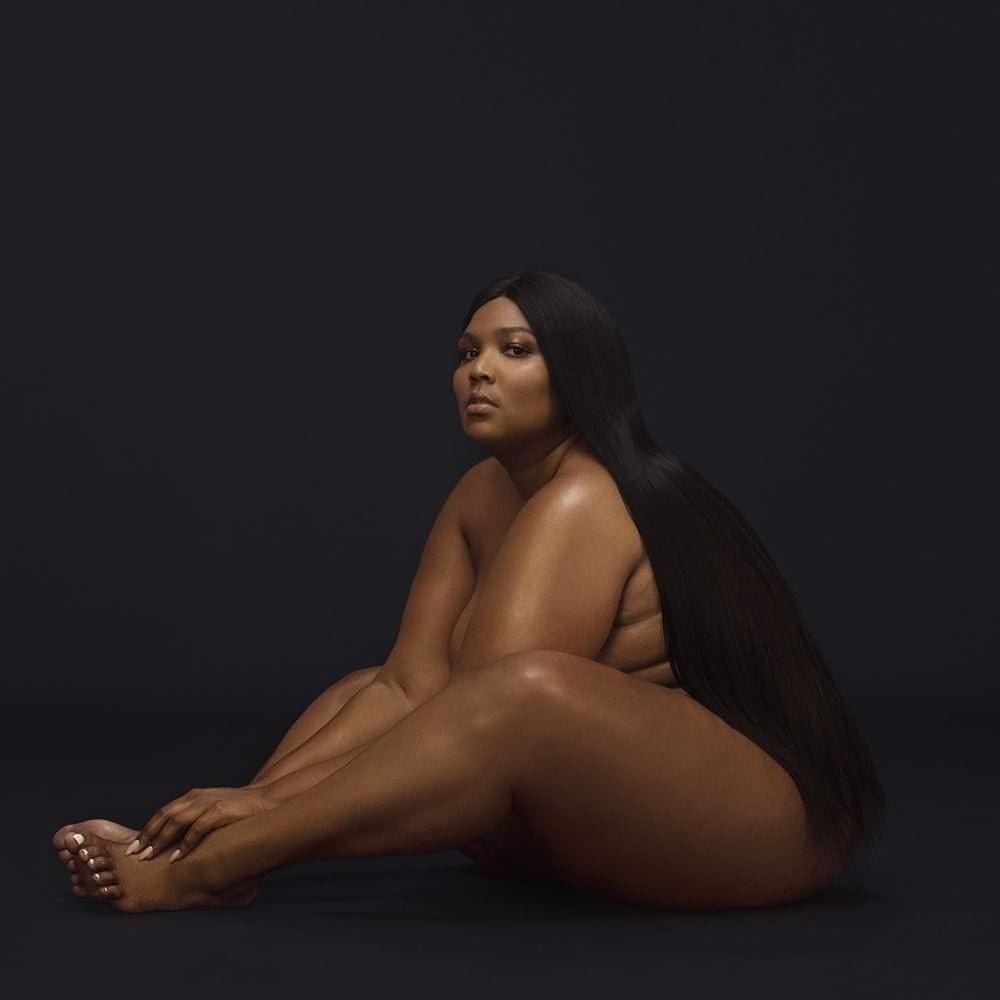
No matter how good an album is, most artists hope to have one anthem on a release, a song that manages to latch on to the consciousness of its listeners. Think Arcade Fire’s “Rebellion (Lies)”, Kanye West’s “Gold Digger”, or Daft Punk’s “Get Lucky”.
This year, Lizzo managed to create three anthems on her major-label statement Cuz I Love You. Even if the rest of the album was nothing but filler, just the strength of “Juice”, “Boys”, and “Truth Hurts”, could have put Cuz I Love You on may “best of” lists. But one of many attributes of Cuz I Love You is its ability to make almost every song memorable on its first listen. Yes, “Truth Hurts” was THE song of the summer, but you would be hard-pressed to forget the full-throated sincerity of the leadoff title track or the heartbreaking sing-along chorus of “Jerome”.
Cuz I Love You closes out 2019 on a hopeful note. For as fractured as our musical tastes are, it was the success story of the year. It started modestly, debuting at number six on the Billboard charts. And on the strength of banger after banger (not to mention her electrifying live performances), the album went from a modest success story to being played at almost every wedding reception and leading the Grammy pack for this year. Superbowl halftime committee: look no further than your 2022 performer. – Sean McCarthy
Blanck Mass – Animated Violence Mild [Sacred Bones]
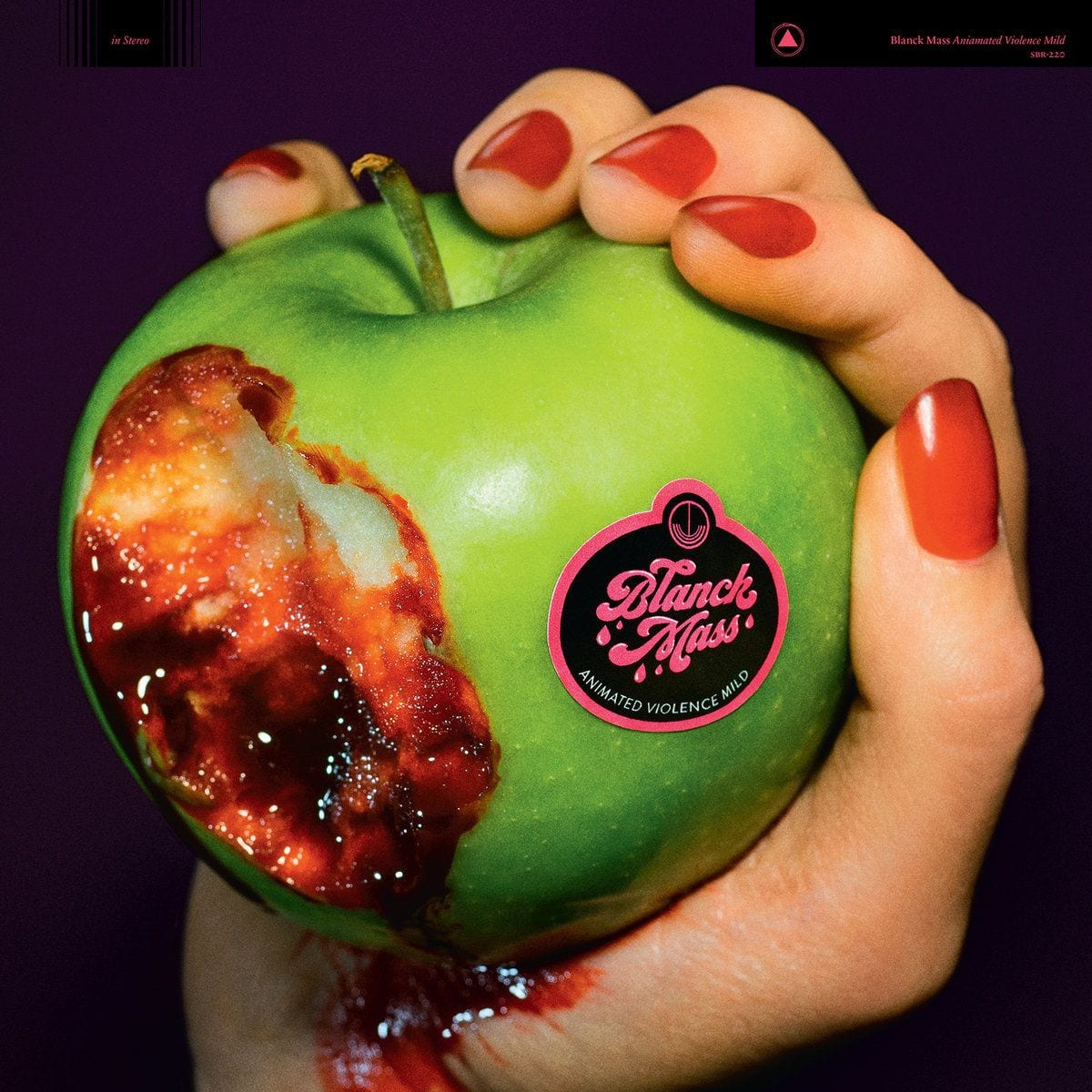
With
Animated Violence Mild, Benjamin John Power has officially made more records as Blanck Mass than as one-half of the beloved Fuck Buttons, but it’s been at least a few albums since he’s fully moved out of the shadow of his old work. Since at least 2015’s Dumb Flesh Blanck Mass has been its own, increasingly impressive, beast. The new record feels like it has more relative breaks than 2017’s World Eater (whether it’s the imperiously sweeping “Hush Money” or the outright pretty harp interlude that ends “Creature/West Fuqua”).
After a brief introduction, the one-two slam of “Death Drop”/”House Vs. House” (perhaps the most sustained fierceness, in a few different senses, in Power’s whole oeuvre) makes clear that Blanck Mass’ distinctive vintage of electro noise has maybe never been this potent. Something wails and moans, and you’re not quite sure if it’s a human or a synthesizer. Something pounds, and you’re not sure if it’s a dancefloor or a barrage. Power’s best work lives in the heart of that confusion, both sonically and thematically, and by the time “Wings of Hate” razes Animated Violence Mild to the ground on its way out, it’s clear that he owns this space. – Ian Mathers
Devin Townsend – Empath [InsideOut Music / HevyDevy]

For over 20 years, Canadian virtuoso Devin Townsend has proven to be among the most vividly eclectic, audacious, skillful, and reliable artists of his era. Every LP he does reveals new shades of his creative and philosophical palettes, all the while packing in beloved trademarks to expand his endearing idiosyncratic catalog. In many ways, then, Empath is his magnum opus: a wildly polygonal cumulative reflection on everything he’s achieved previously. As such, it presents a crucial existential examination beneath a brilliant blend of styles.
For instance, “Borderlands” conjures the country-rock twang of Casualties of Cool, “Hear Me” captures the comical brutality of Deconstruction, “Evermore” recalls the dense pop-rock majesty of Addicted and Epicloud, and “Genesis” is a self-contained tour-de-force of seamless genre-shifts. While Townsend’s tongue-in-cheek playfulness is here, it’s his emotionally resonant introspections that reign supreme. After all, he’s always been open about his inner demons—as should we all —and on “Spirits Will Collide”, “Why?”, and the ingeniously multifaceted epic closer, “Singularity”, he beautifully tackles self-doubt, hope, love, and other relatable quandaries. Empath is as rewarding for its resourcefully unclassifiable musical cohesion as it is for its cathartic encouragements to be open about mental struggles. – Jordan Blum
Loraine James – For You and I [Hyperdub]

Artists like Loraine James are here to glitch and queer the narrative. On her second full length For You and I, she rightfully claims the title “Glitch Bitch” to explore what it means to be queer in the spaces of IDM and one of its places of origin, London.
For You and I is noticeably inspired by IDM, but it certainly glitches for a different purpose. In “Queering the Borderlands”, Emma Pérez intimates about dominant narratives, “all of these and more must be reinterpreted with a decolonial queer gaze so we may interrogate representations”. Coincidentally, the act of distorting the dominant gaze resembles one of IDM’s main techniques, glitching. And for James, glitching creates schisms in normative structures, creating spaces in which new expressions can emerge.
In music, she creates and finds safe spaces, combating the violent realities of living as a queer person in London. In music, she can wholly represent herself without intimidation, and in music communities, she can truly express herself with embrace. Then in a space of her own, with her girlfriend and community, James conceives For You and I as a candid representation of her reality and a proud expression of her identities. – Hans Kim
100 gecs – 1000 gecs [Dog Show]
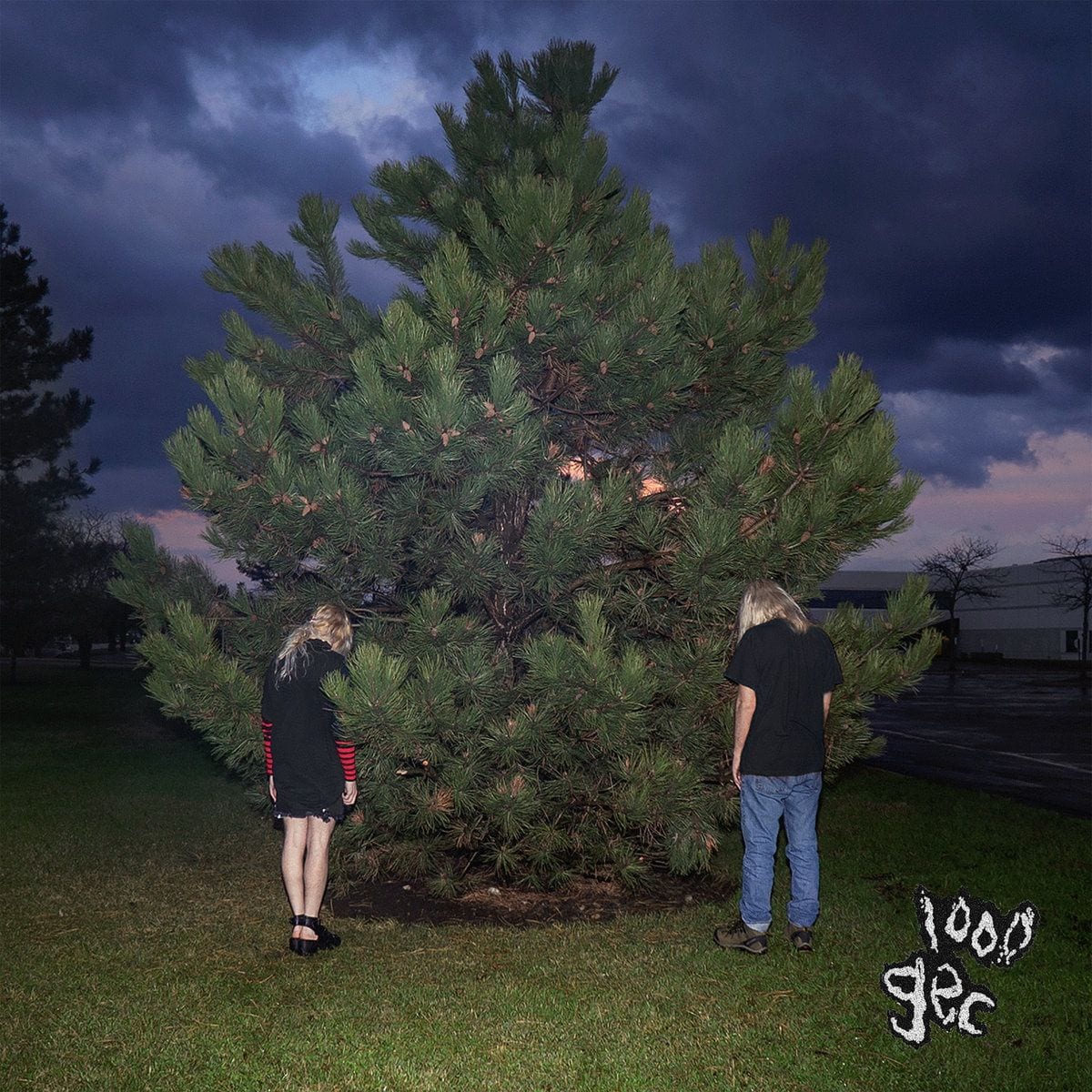
Dylan Brady: Hey pissbabies! Wanna hear about deez jamz?
Laura Les: Course they do, honeydew.
D: Cute. So we’re s’pos’ta, like, tell ’em what gecs sound like?
L: Right? Like, have they even listened? They can just fuckin goog us.
D: Lol I know. But these nerdlings literally wanna read about this shizfest shizfest shizfest sh sh sh sh sh gecgecgec— Whoa.
L: What the what??
D: Dude I think I just glitched in.
L: …So you want me to start…? Okayyy. So you know when you’re having one of those days where your ice cream starts melting, but not downwards—upwards, and it gets in your eyebrows and all over your Ray Bans and you’re like, “What. Thefuck.”
D: And you get home, and your mom’s like, “How was school, ice cream face? Did you pick up the 20 pound bag of ZotZ powder for your father?” And you’re like “Yoinks, Mom, give me ten nanoseconds to power down—”
L: But by then it’s Sunday and you black in on the playground nunchucking the shit outta the final boss in Hungry Hungry Hippos, and it’s all like, ゚*☆ You don’t know me like I know you, but it’s cool. ☆*゚
D: That’s honestly like the best description I’ve ever heard of our album.
L: …Album?
– A Noah Harrison
Sturgill Simpson – Sound & Fury [Elektra]
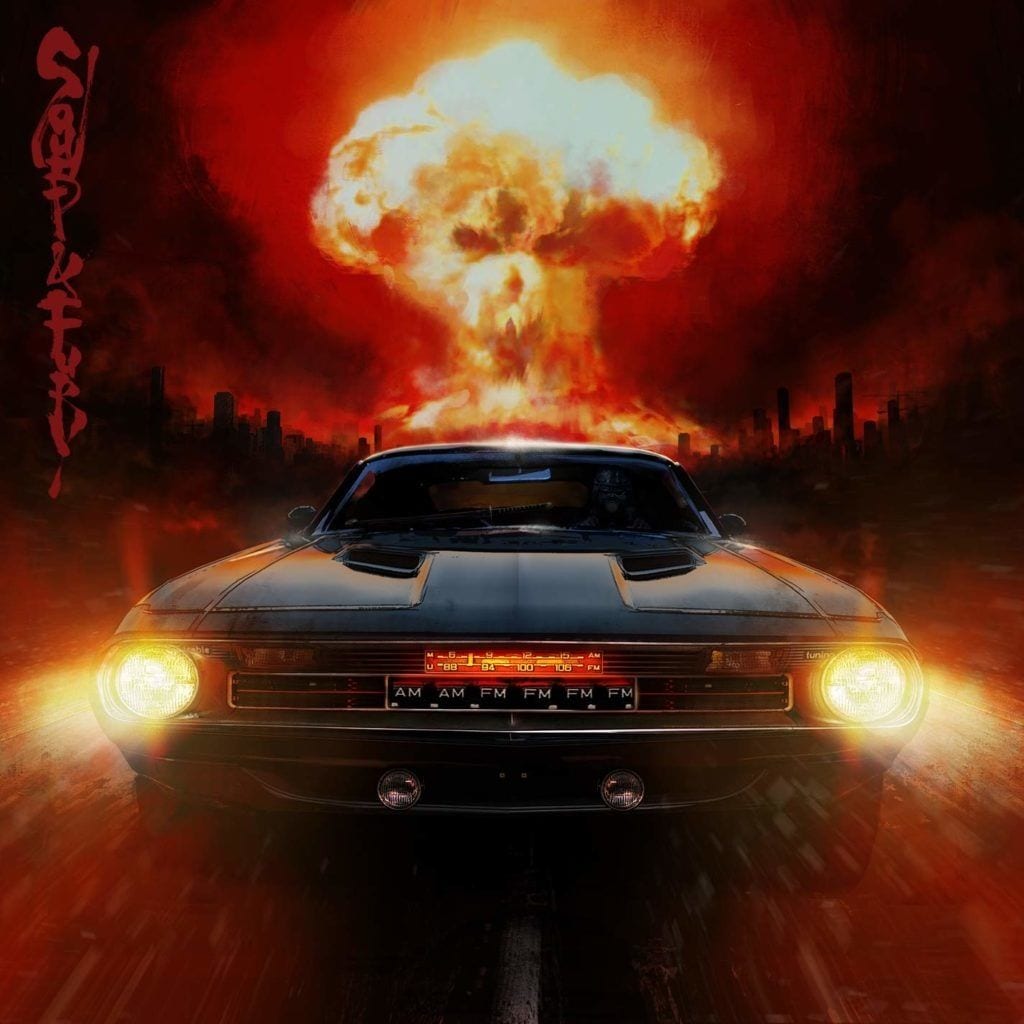
Fans of Sturgill Simpson have become accustomed to his artistic detours. Starting out, it seemed that he was going down the standard “new generation” country singer-songwriter path. Then, A Sailor’s Guide to the Moon had him embracing everything from Memphis-style horn arrangements, aquatic-themed storytelling, and a Nirvana cover. But with Sound & Fury, Simpson veers off his artistic highway and engages in some serious desert offroading into Queens of the Stone Age’s Songs for the Deaf territory
Sound & Fury was made to be a companion piece an anime film, which Simpson collaborated with director Junpei Mizusaki. Like the album, the film is kinetic, varies stylistically, and is absolutely batshit crazy in the best possible way. Simpson’s Merle Haggard by way of Blade Runner vocal delivery practically beg to be listened to at “speaker-testing” high volumes. Nothing is subtle on Sound & Fury, from the grizzled stomp of “Sing Along” to the ZZ-Top style boogie of “Mercury in Retrograde”.
Sound & Fury was a polarizing album. For fans of Simpson’s more open-hearted (read traditional) country arrangements, it was an alienating release. But few could argue with the content within Sound & Fury. A country artist ended up making the best rock album of the year. With a year out from what will likely be the ugliest election in modern times, in an age where political tribalism threatens to do irreparable damage to our institutions, Sound & Fury was the soundtrack for 2019. – Sean McCarthy
The Twilight Sad – It Won’t Be Like This All the Time [Rock Action]
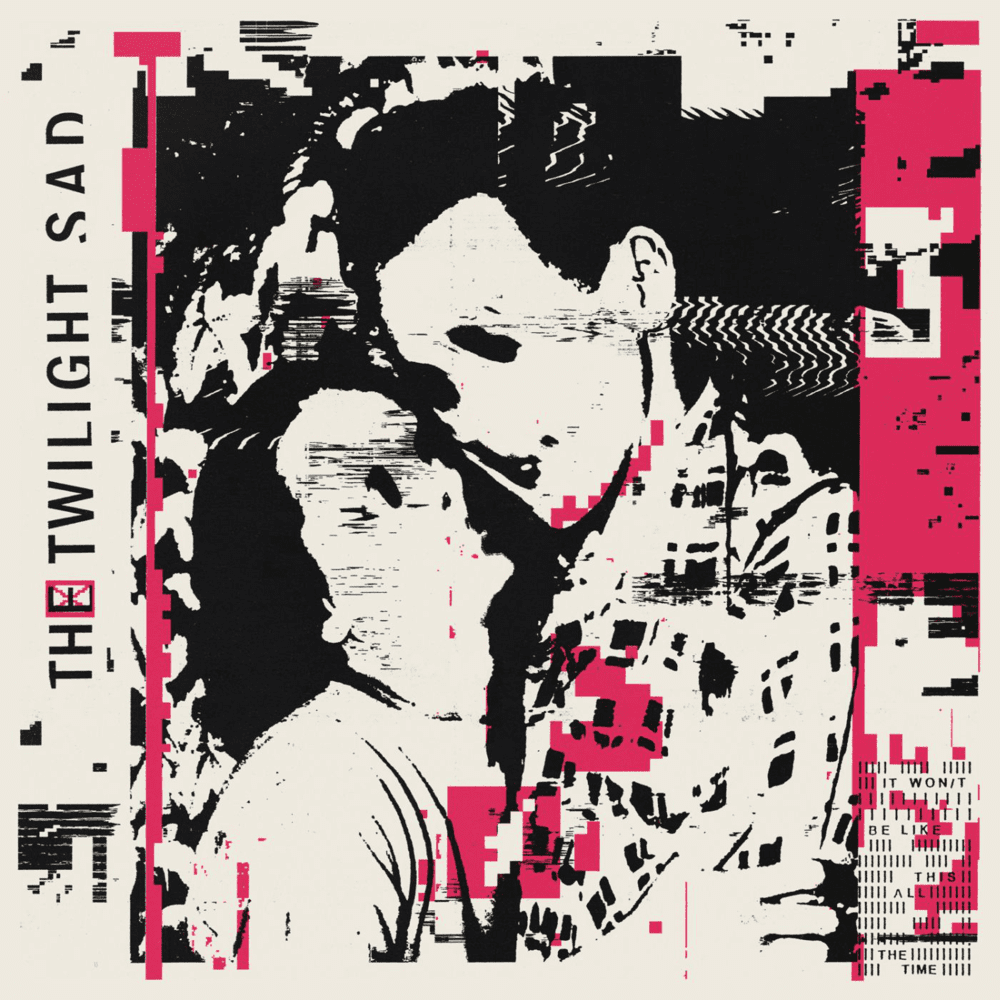
Sometimes there exists such a special, indestructible bond between band and fan, that it can feel as if both depend on the other for their very survival. For fans of Scottish band the Twilight Sad, this has been the case ever since their brilliant, 2007 debut, Fourteen Autumns and Fifteen Winters. From the outset, the Twilight Sad have never been a group to “like”. No, they are a band to love, live in, and learn from.
On the Twilight Sad’s fifth album, they re-defined and re-calibrated, stripping themselves back to their core to discover what happens when they follow previously unexplored evolutionary paths. The squalling, shoegaze guitars and brooding electronics are all present, but they are melded with fresh, sonic textures, and bright, emphatic post-punk synths. Lyrically, there’s a welcome directness and emotional prescience to lyrics with frontman James Graham tapping directly into universal feelings of pain, loss, regret, and joy. With It Won’t Be Like This All the Time, the relationship between fan and the group was rewarded with the best album of the Twilight Sad’s career. – Paul Carr
Cherry
Glazerr – Stuffed & Ready [Secretly Canadian]

Cherry Glazerr revels in juxtaposing polarities. Abrasive noise with infectious pop, trenchant social commentary with unabashed fun. With third LP Stuffed & Ready, their merging of the sweet and the savage, the polemical and the inviting, is distilled to its purest form. Pushing the parents of cacophony and melody to their limits, the trio attain an offspring of transcendence.
Take opener “Ohio”, for example, which ends with frontwoman Clementine Creevy’s howls of “Take me away!” amid waves of distortion. The pulverizing sonics generate a sense of solidarity, of joining hands to scream into the sky. With the hypnotic “Daddi”, Creevy’s eerily high cooing lulls you in before the choruses explode in a firestorm. When that detonation hits, it’s a cathartic moment amid the shuddersome implied narrative of incest and misogyny.
Best of all might be “Wasted Nun”, a live wire surge that could go on for double its length, so energizing is it. That those three songs are the first trio on the record doesn’t imply it’s top-heavy; on the contrary, it is a remarkably consistent album, loaded top-to-bottom with stellar tunes with enough stylistic shifts to keep it from inducing listener fatigue. Case in point: “Juicy Socks” and “Self Explained” are soaked in a fragility that remains consoling. It’s that welcoming in, of inviting you to share in the exorcism, that truly sets the record apart. For straight-up, razor-edge noise pop, there’s scarcely a better document available in 2019. — Cole Waterman
Cate Le Bon – Reward [Mexican Summer]

Welsh singer-songwriter-producer-enigma Cate Le Bon keeps refining her music towards something stranger and more powerful. In the process, she seems to be moving ever further from any sort of indie-rock trappings, steering into an art-pop style trafficking in making a smooth concoction out of chaos and confusion. Reward is surrealist like a mixed-up dream but intimate like a diary entry or love letter. The way she pronounces the word “Miami”, on the title track, is in and of itself an otherworldly experience.
Solitude is a theme, but her thoughts on the topic are fluid and expansive. They are never rote expressions of loneliness, but abstract portraits of isolation evocative for their specific descriptions (musical and lyrical) and their overall elusiveness. All in all, Reward feels like it inhabits its own landscape, creates its own pop architecture, while situating Le Bon as a stylist and solitary troubadour, even more so than her already unique and compelling first four albums. – Dave Heaton
Caroline Polachek – Pang [Independent]
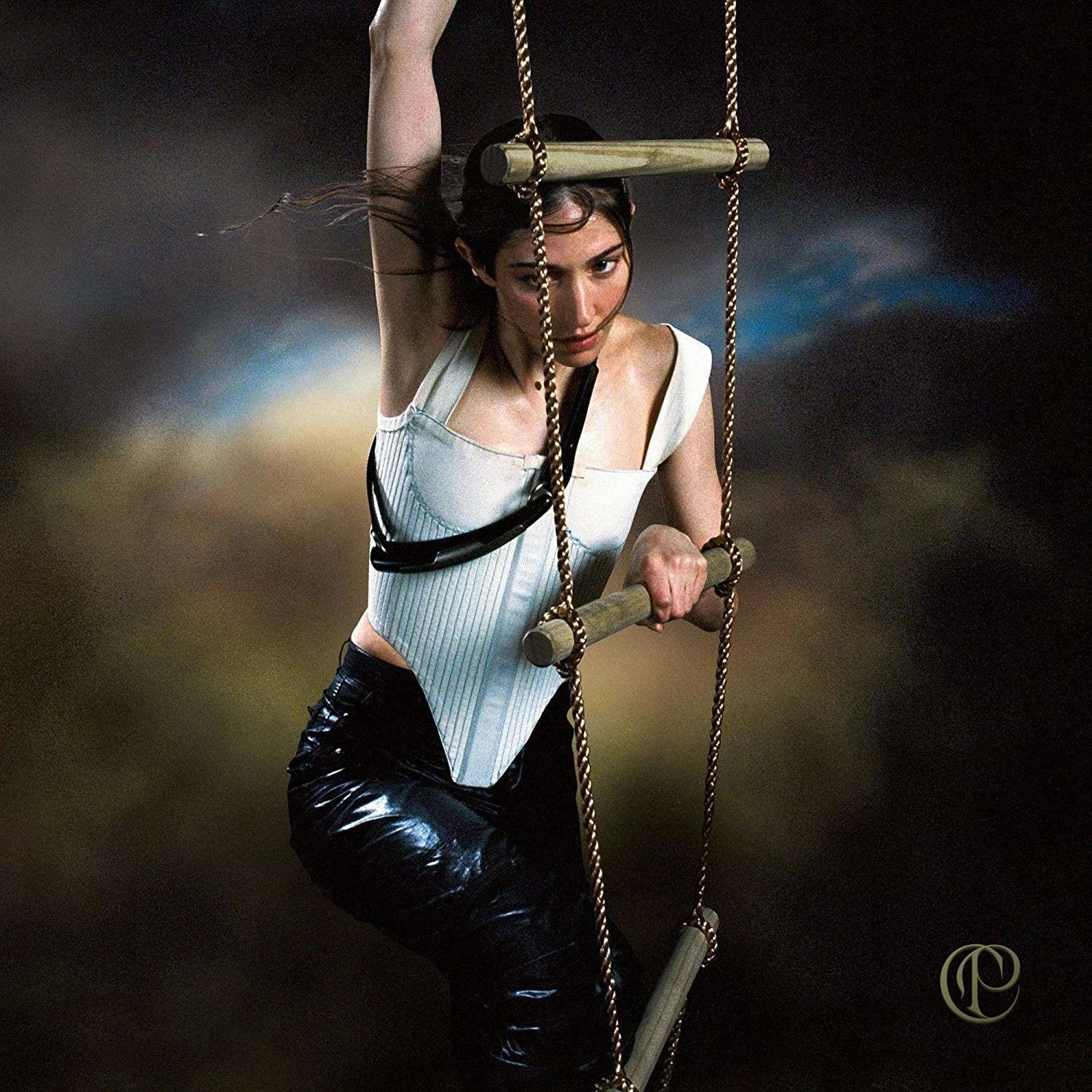
Would you let your crush run you over with their car? A strange, paradoxical scenario for sure, it nonetheless grips people enough to make them shout it on the internet. Rather than explain away such absurd emotional responses, musicians like Caroline Polachek dive into them, dissecting them root and stem.
Pang derives its name from Polachek’s adrenaline surges, the moments she cannot fully explain yet knows must express. Though Polachek understands the surges sometimes embody negative impulses, she provokes them the way a matador taunts a bull. The title track or “Hit Me Where It Hurts” never shy away from risks but embrace them – the “hunger” of a lover or their ability to sting you in ways others cannot.
To flesh these ideas out, Pang maintains a relatively steady pace throughout. The expansive, twinkling work of Danny L Harle and A.G. Cook perfectly suits Polachek’s complex epiphanies, which need room to develop and then settle for their full effect. The aforementioned producers reshaped pop production over the past decade, and songwriters like Polachek pushed the limits of its lyricism. Together, they demonstrate the rich ways in which music can still grow. – Mick Jacobs
Sleaford Mods – Eton Alive [Extreme Eating]
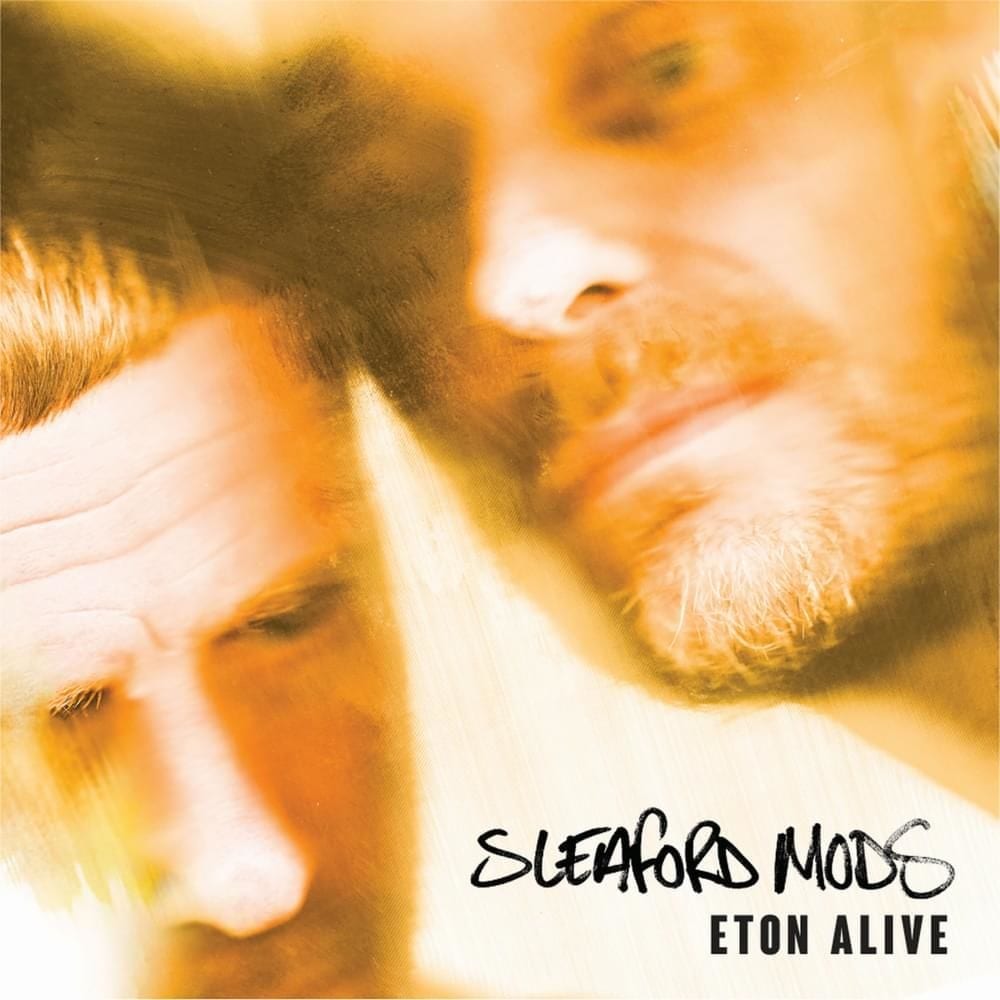
Even after several months of acclimation, Eton Alive still sounds deeply weird and elliptically encoded, irresistible and impenetrable in equal measure. Sleaford Mord recently described the album as “a soundtrack for the dystopian nightmare”, which feels both completely accurate and also not quite comprehensive enough. The weirdness inheres in both the empty warehouse echo of the musical sound and the encrusted argot of the cryptic lyrics. The former of these combines almost familiar basslines that aren’t necessarily full samples with slightly rickety but increasingly sophisticated beats and other accompanying noises.
The lyrics, on the other hand, are delivered with withering scorn and directed at any number of targets while also containing passages of genuine vulnerability that are accompanied by a switch to a form of almost crooning that makes the proceeds even weirder somehow. In this intoxicating combination, we do indeed find ourselves confronted with a Zeitgeist album. It only fits that in this moment of such profound socio-economic disorientation, amid the hegemonic mystifications of power and venality, we get a cultural product that plays that disorientation and mystification back to us.
Accordingly, we get the creeping and loping bassline of the opener “Into the Payzone”, followed immediately by the double whammy of the Vanilla Ice-inflected “Kebab Spider”, a devastating critique of celebrity technocrat culture whose machinations we only see through a glass darkly. Almost all of these songs can be considered as anthems for doomed youth of all ages. Still, there is a parallel narrative here that simultaneously turns inward to consider some of the consequences of toxic masculinity in the context of that dystopia. The entire project finds its synthesis on a track like “Discourse,” which lays bare the vapidity and vacuity of so much of our present moment in this incisive lyrical shot, having opened with a throat-clearing chuckle which belies its deadly serious intent: ” – Rod Waterman
Sampa the Great – The Return [Ninja Tune]
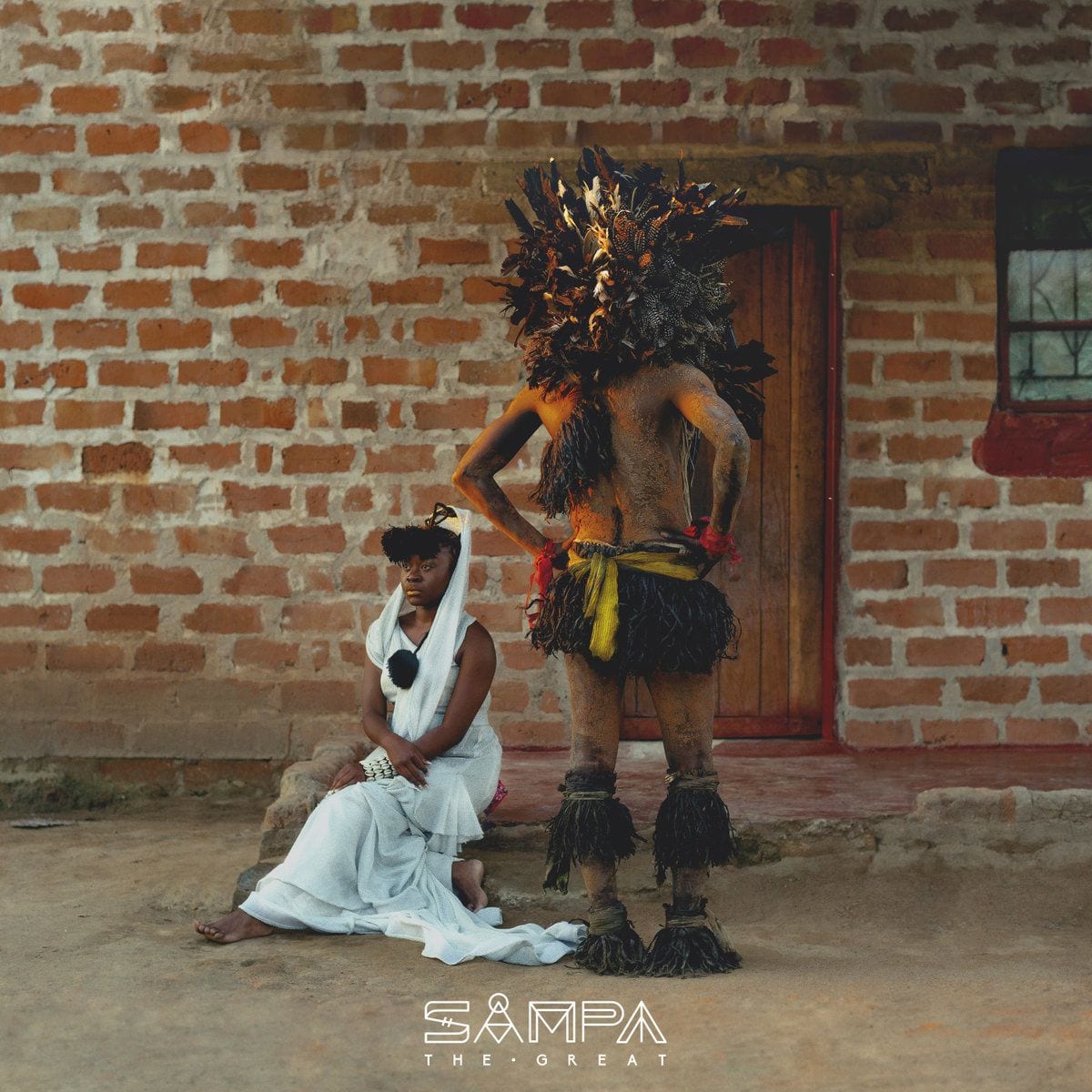
Under the very appropriate name Sampa the Great, writer and rapper Sampa Tembo masterfully confronts intersections of racism and sexism in the music industry and beyond on The Return, an epic of an album characterized by political consciousness, life-giving rhythm, and Tembo’s ability to shift between soulful melody and sharp rhyme slinging across a whopping 19 tracks. At the end, three particularly long tracks make up something of a suite of bittersweet jazz, further contributing to the eclecticism of her work.
All in all, The Return is not only a groundbreaking debut, showing Tembo to be a fresh, intense new voice in hip-hop, it’s easily one of the fullest albums of the year, not just by virtue of its length, but because of its broad sonic and tonal range. Sampa the Great takes her listeners on a truly worthwhile journey here, emotionally and aesthetically, and we emerge from it better off for our time in her creative presence. – Adriane Pontecorvo
Rhiannon Giddens – There Is No Other [Nonesuch]
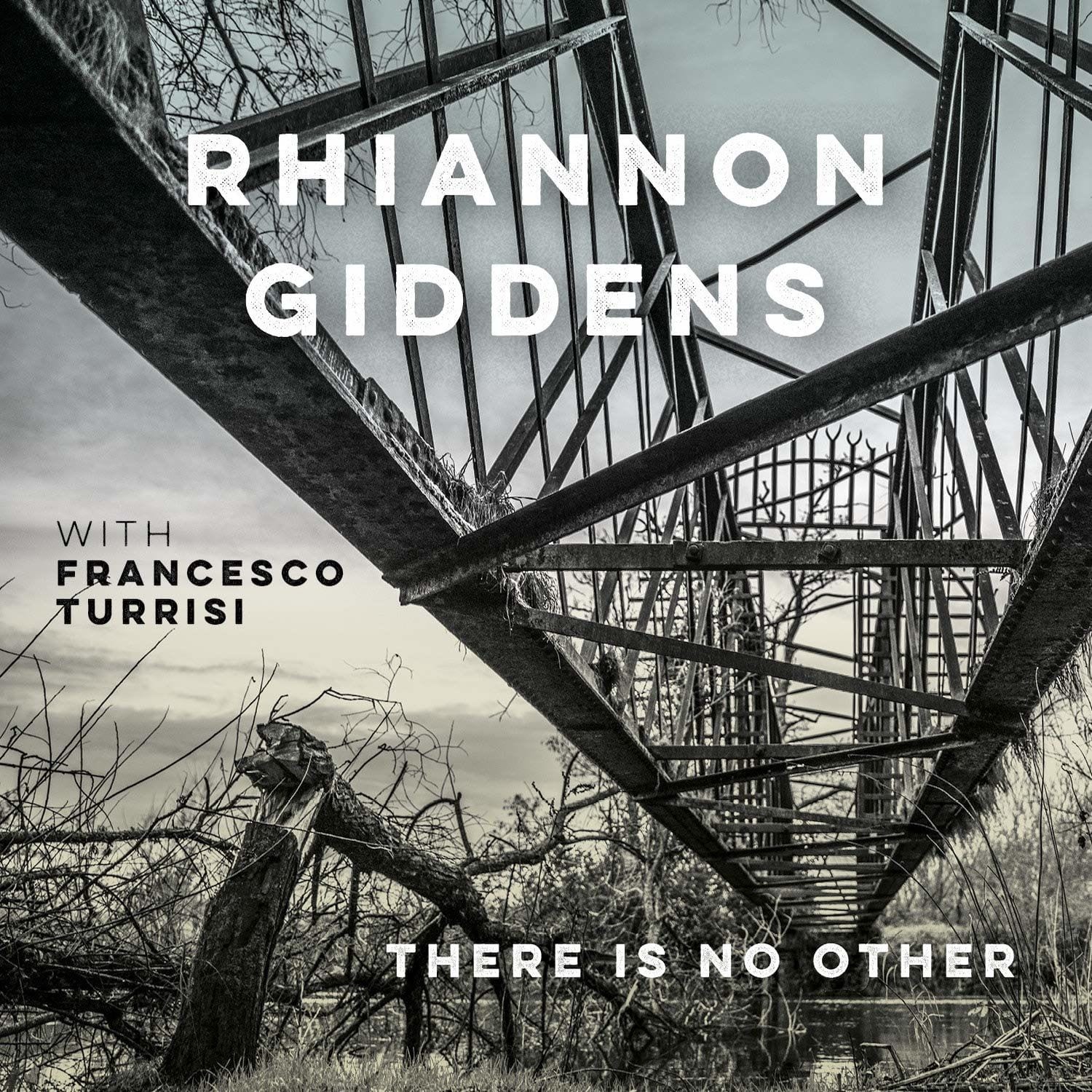
This time of year, oldies radio and Christmas channels may remind us that rock stars used to sing that we are the world, but Rhiannon Giddens understands that our connections to each other are more than shared communal feelings. We all have the same roots, as evidenced by our music. Her album
There Is No Other displays the radical nature of this fact as she weaves different styles from African, Arabic, European, and American cultures together in a rich tapestry. Giddens has a classically trained operatic voice and plays several stringed instruments, including a minstrel banjo, octave violin, and viola. Multi-instrumentalist Francesco Turrisi joins her on piano, accordion, frame drum, tamburello, lute, cello banjo, daf, and colascione.
The album was produced by Joe Henry and tracked over five days in Dublin as the artists took on everything from the American gospel song “Wayfaring Stranger” to Italian composer Gian-Carlo Menotti’s aria “Black Swan” as well as self-penned cuts to show how deep our bonds are. In a world of hardening international borders, the record serves as a beautiful reminder that we all the same no matter the side of the walls we live on. – Steve Horowitz
Mark
Lanegan Band – Somebody’s Knocking [Heavenly Recordings]
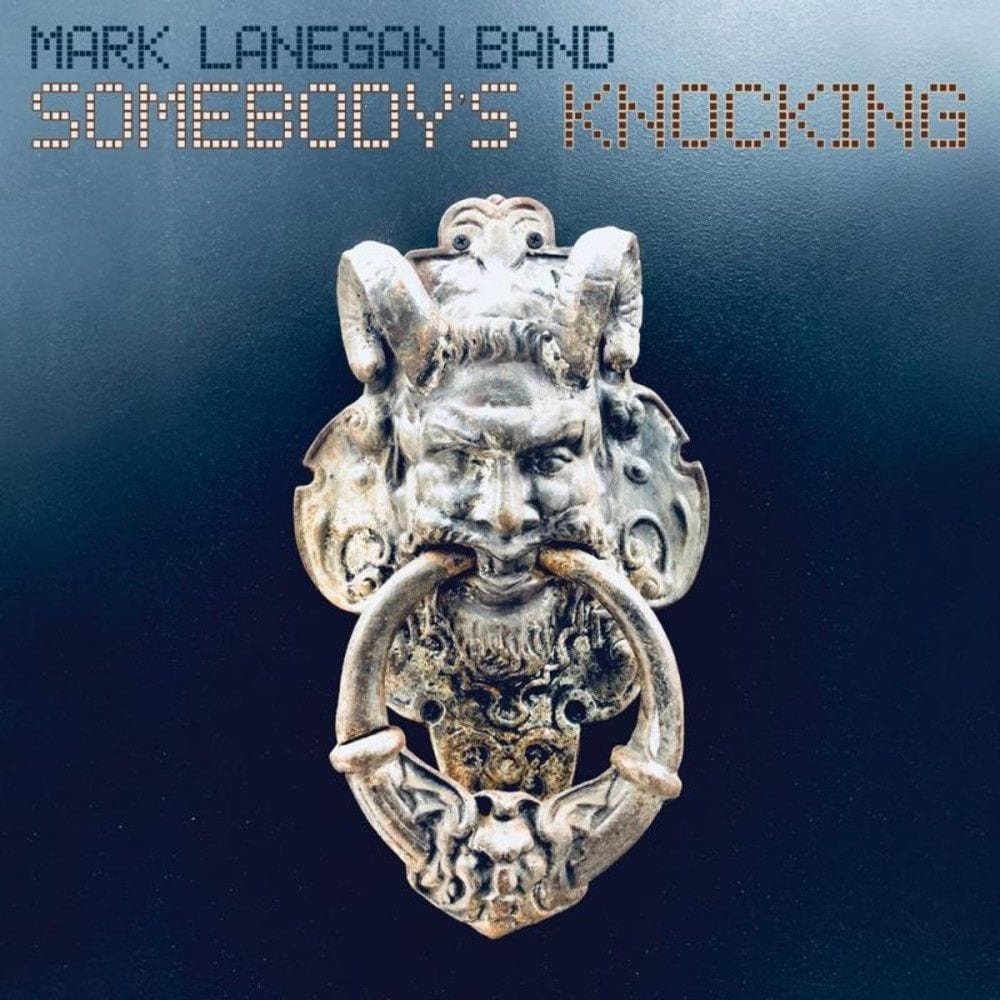
After decades of recording tunes as a modern catacomb-throated Charon, Mark Lanegan has never sounded so self-assured and relaxed as he does across Somebody’s Knocking‘s 14 songs. It’s no small feat for the storied songsmith to have achieved such comfortability in his own skin as he neared his 55th birthday while continuing to challenge the boundaries of his art. As with his last few solo LPs, the songs lean heavily on synth-driven 1980s post-punk and Krautrock, cementing that he’s jettisoned his first phase’s folk-country-blues style.
With the indispensable contributions of producer/multi-instrumentalist/co-writer Alain Johannes, Lanegan’s recent sonic proclivities reach their finest manifestation here. That the songs are undeniably fun and even playful — words largely verboten in considering Lanegan’s prior dispatches chronicling lost love, addiction battles, and existential woe — feels like a deserved victory rather than any aesthetic about-face.
“Letter Never Sent” sears like a blowtorch, while “Night Flight to Kabul” is a deliciously icy slice of foreboding. “Gazing From the Shore” rolls and tumbles amid Lanegan’s searching observations. Elsewhere, “Paper Hat” slows things down to a sultry throb, Lanegan’s world-weariness given literal expression with his charred oak intonations of global jet-setting. Yet there’s probably no better example of Lanegan’s puckish approach, lyrically anyway, than in “War Horse” with the taunt/come-on of “I’m a warhorse, baby / And you don’t want a war with me.” To be sure, Lanegan’s patented dourness is still present, but it’s conveyed with a sly wink and a wicked grin. — Cole Waterman
Marika Hackman — Any Human Friend [Sub Pop]
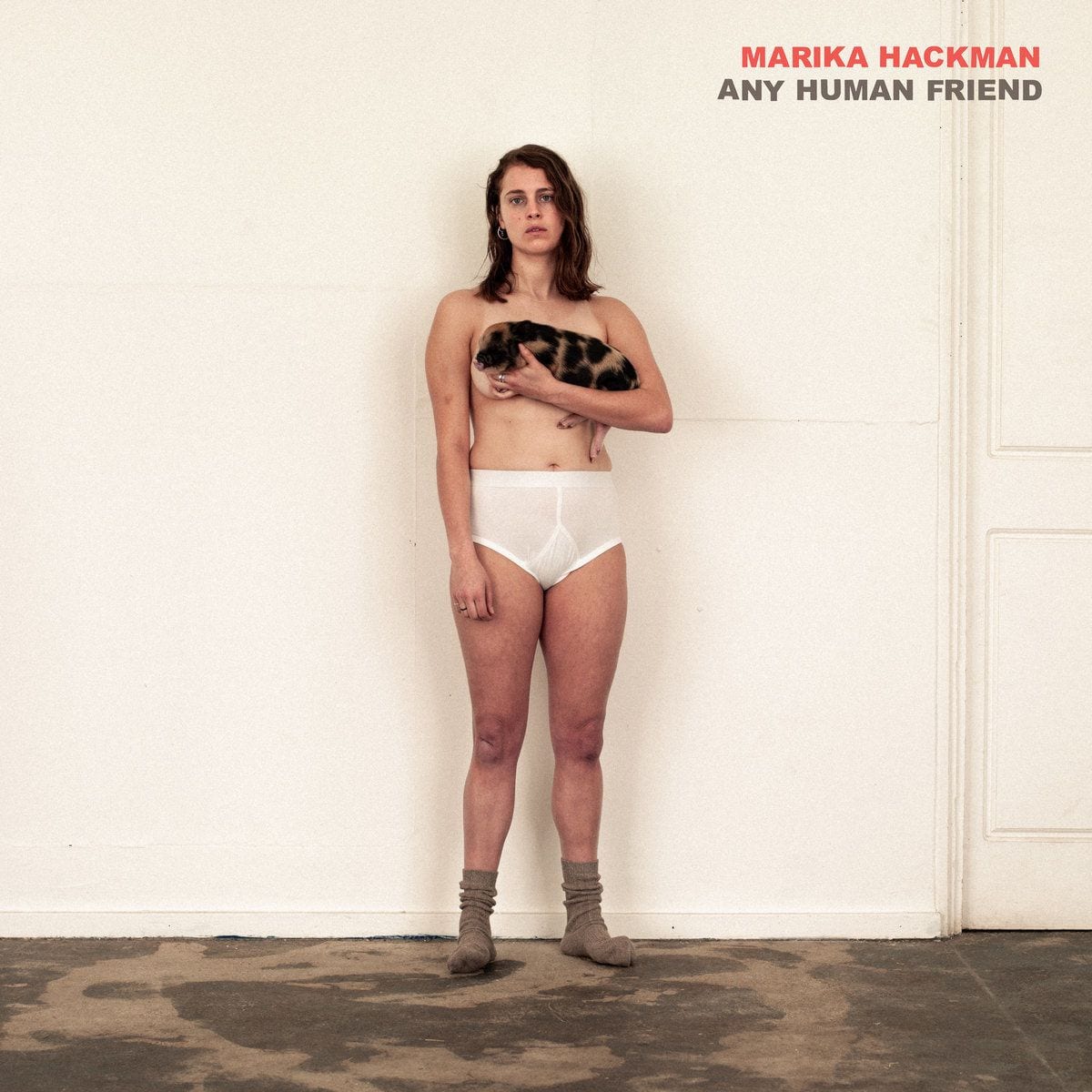
Opening with the line “words are fun and games”, Marika Hackman’s Any Human Friend certainly sets things up for the rest of the album. Focused on frank lesbian sex talk and descriptions, as well as the loneliness and self-involvement of a relationship ending, Hackman is alternately funny, arrogant, and self-reflective. The naked honesty is these songs is a continuation of the themes present in her previous albums, though she continues to grow with each release.
The album is filled with earworm-y hooks and Hackman’s arresting vocals. It’s an indie-pop album with great guitar licks—honed through extensive touring—interspersed throughout. Much of what makes Any Human Friend such a standout is the balance Hackman achieves in discussing topics like masturbation and oral sex with moments of alienation and resignation. That she’s able to do so with songs as instantly catchy as “all night” or as vulnerable as “send my love” is a perfect embodiment of what makes the album such a satisfying listen. – Jessica Suarez
Tyler, the Creator – IGOR [A Boy Is a Gun]
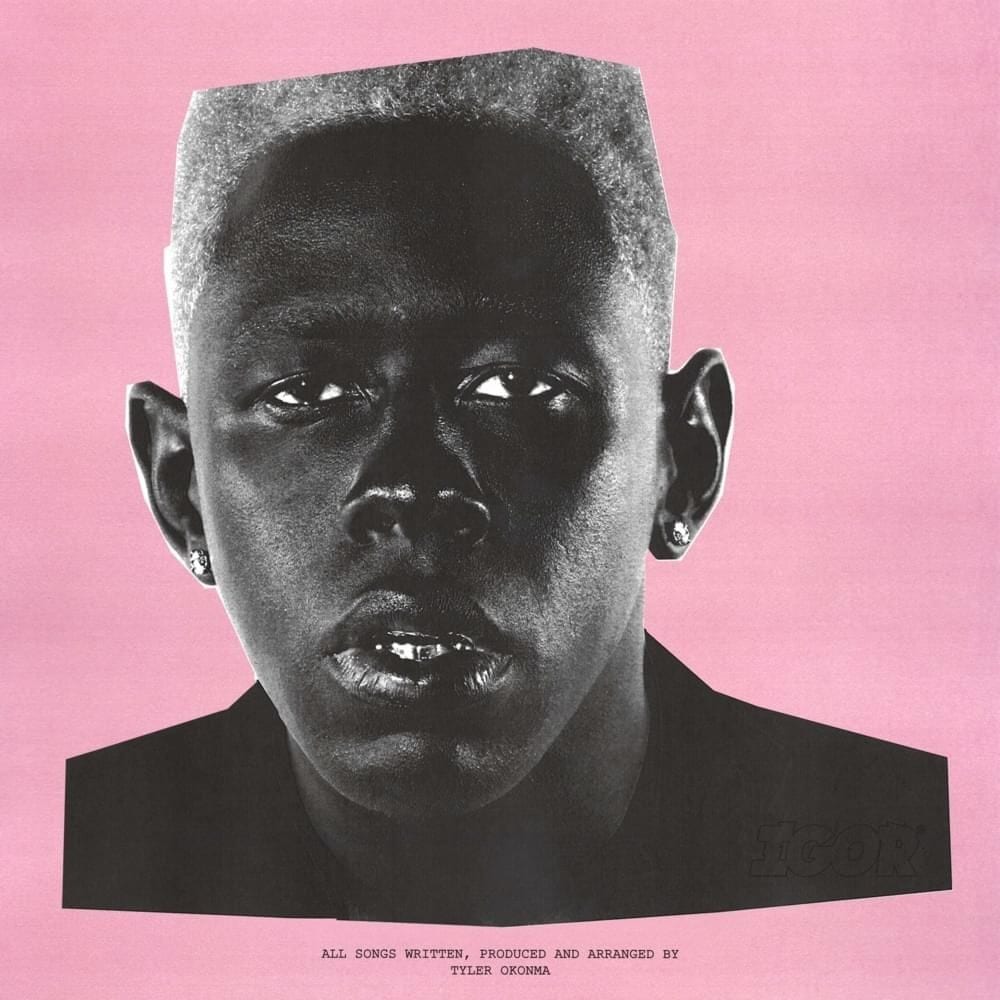
Pulling from the best parts of hip-hop, R&B, and neo-soul, IGOR represents Tyler, the Creator’s most experimental album to date. Tyler’s rapping takes the back seat for much of the album, pushing the spotlight onto its shifting sonic textures and eclectic instrumentation. Opening with a medley of buzzing synth leads, funky percussion grooves, and interjections of soft piano, IGOR never settles on a defined tone, evolving track-to-track. The sporadic outbursts of arpeggiators and crunchy bass lines of one track are replaced with crooning vocals and soulful chords on the next.
Thematically, the album distances itself from the humor and anger that colored much of Tyler’s previous work, centering around the emotional ache of rejection and lovesick yearning. IGOR shows Tyler at his most vulnerable as he negotiates ill-fated denial and pained acceptance. Songs often take circuitous routes from beginning to end, slowed by abrupt stops and sporadic injections of new instrumentation. But rather than feel messy, these chaotic structures lend the album exhilarating energy, complimenting the seamless tonal shifts between coarse and smooth. – Callum Bains
Weyes Blood – Titanic Rising [Sub Pop]

Singer-songwriter Natalie Mering had been building toward something big throughout her first three albums under the Weyes Blood moniker. But in spite of whatever expectations people might have had, nothing could have prepared them for the blindsiding grandeur of Titanic Rising. A combination of classic Laurel Canyon folk-pop, modern indie rock, and (yes, that’s right) a heaping helping of 1970s progressive rock influences, Mering accomplishes as pristine and unthinkable a balance between it all as anyone has produced in the last 20 years.
Possessing a voice that fits neatly between those of Joni Mitchell and Karen Carpenter, Mering’s songwriting feels as ingenious and effortless as Burt Bacharach’s, especially on such standout moments as the ebullient “Everyday”, the wistful “Wild Time”, and the dramatic opener “A Lot’s Gonna Change”. Toss in some moments of inspired experimentation, as on centerpiece tracks “Movies” and’ Mirror Forever”, and you’ve got a record that seems to unearth beautiful discoveries with each listen. – Adrien Begrand
Brittany Howard – Jaime [ATO]
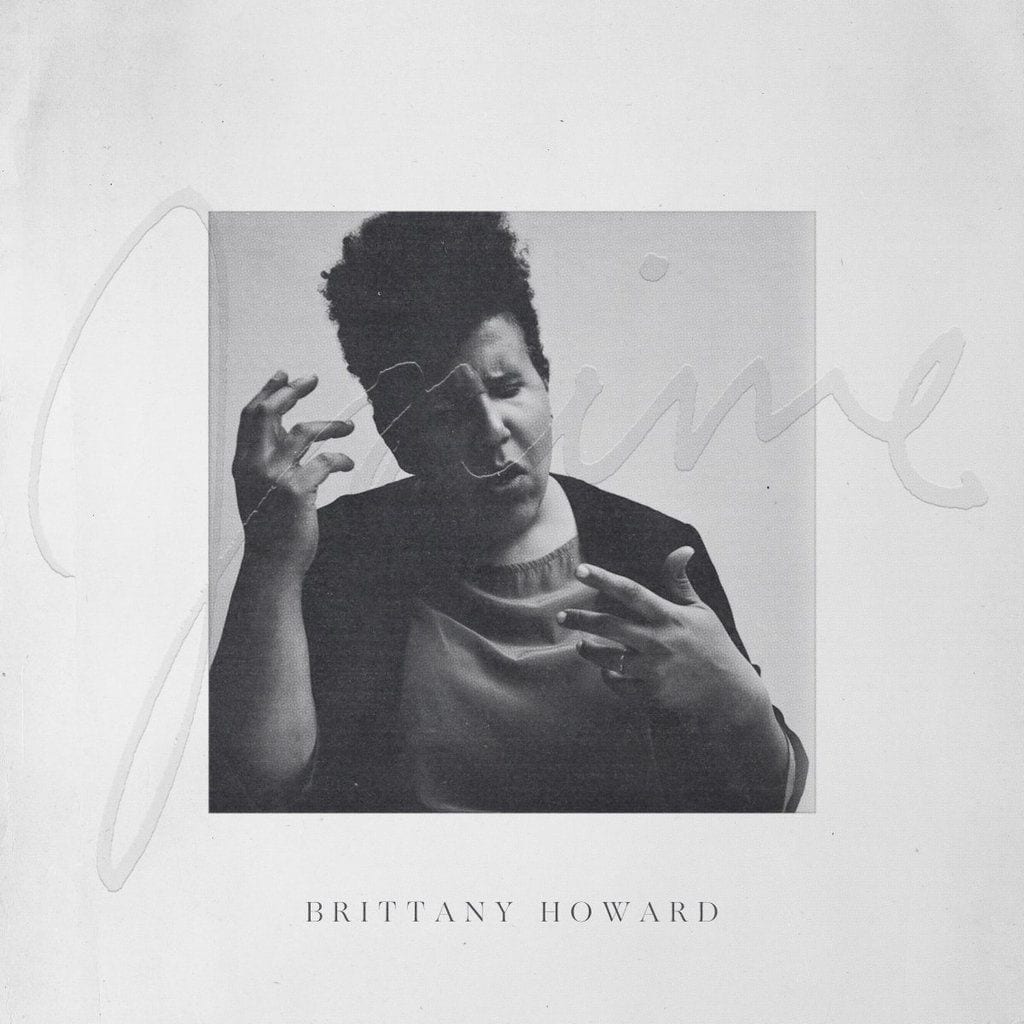
Jaime, the debut solo album from Brittany Howard, of Alabama Shakes fame, is more like a literary memoir than a musical album. The album is named after Howard’s sister, who passed away at the age of 13 from a rare form of eye cancer. However, the album is not about Jaime. Rather, Jaime resurrects moments from Howard’s history as direct informants to the present moment. Much as her other ventures, Jaime is musically boundless with tracks combining the best of funk, alt-country, blues, with even streaks of rap and contemporary R&B.
That is precisely the reason why Howard is such an exciting artist; she is purposeful in her subversion of social norms as well as genre conventions. She uses Jaime as a platform to showcase the genre’s best qualities, melded together to form an eclectic and inspired amalgamation. Jaime is as fun as it is meaningful, demonstrating a new perspective of itself to listeners after repeated listens. – Elisabeth Woronzoff
Opeth – In Cauda Venenum [Nuclear Blast]
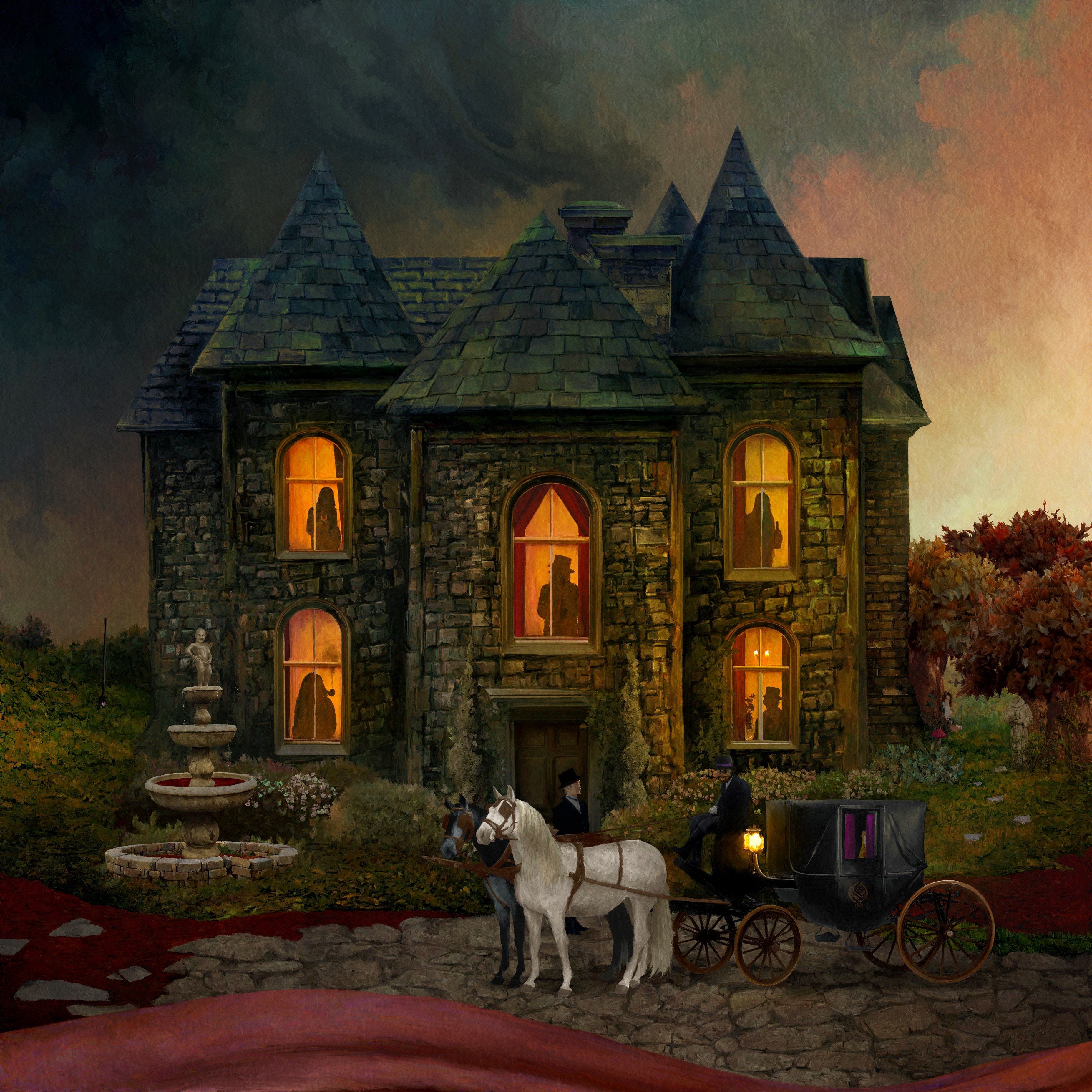
When Opeth decided to eschew the extreme metal element of their sound after 2008’s Watershed in favor of a more progressive rock-oriented approach, it angered a lot of their obsessive fans. Ten years and four albums later, those fans are still whining that Mikael Åkerfeldt doesn’t growl his vocals anymore. But that stunning change in direction, starting with 2011’s Heritage, has resulted in an impressive creative rebirth, allowing Åkerfeldt and his bandmates to experiment more and broaden the Opeth sound while remaining faithful to the style that defined such early classics as Orchid and Blackwater Park.
On 13th album In Cauda Venenum, all those elements – heavy metal, ’70s progressive rock, jazz fusion, krautrock – coalesce more beautifully than any other Opeth record this decade. Åkerfeldt is in full command: his arrangements sound both vintage and innovative at the same time, the labyrinthine tracks never overwhelm the album’s many hooks, and such standouts as “Svekets Prins”, “Charlatan”, and “Allting Tar Slut” prove that the heavy aspect of Opeth will not go away any time soon. [Opeth recorded the album in separate Swedish and English versions, but Åkerfeldt insists the Swedish version is the definitive one] – Adrien Begrand
JPEGMAFIA – All My Heroes are Cornballs [EQT Recordings]
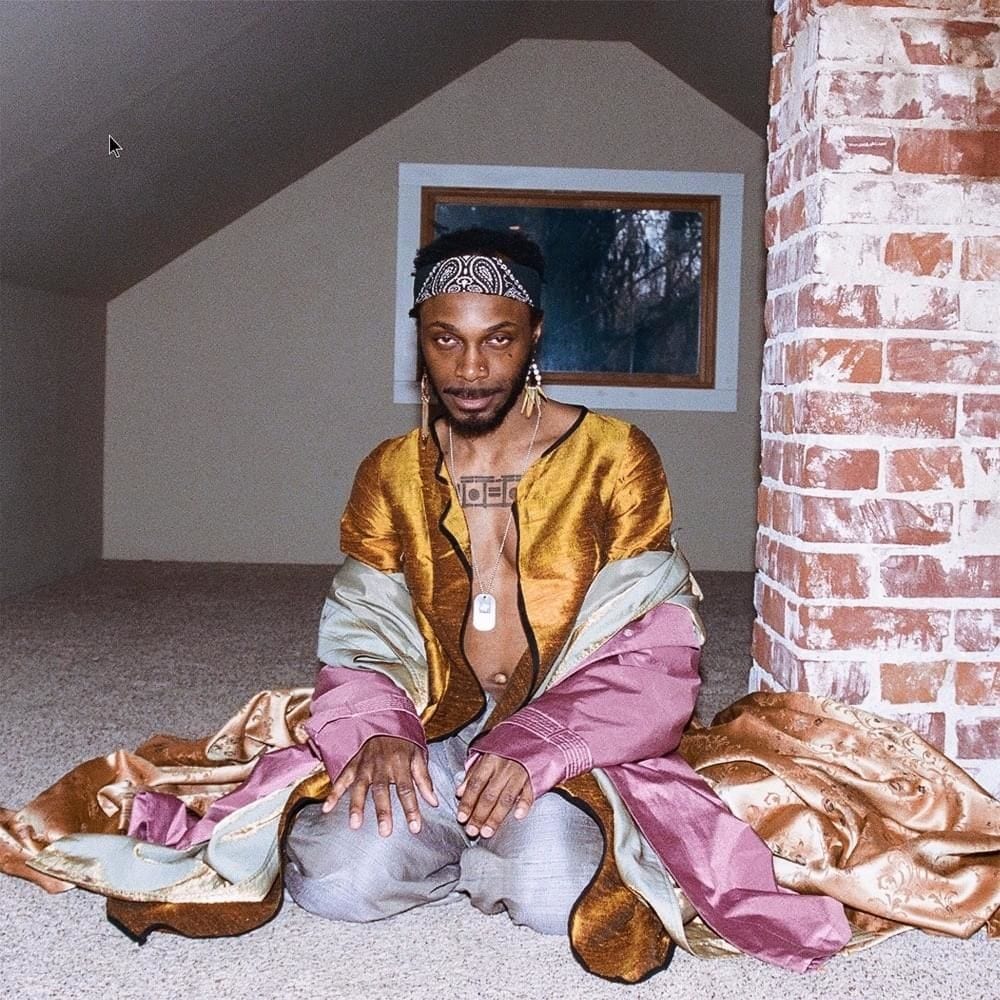
On All My Heroes Are Cornballs, JPEGMAFIA continues the visceral nature of his prior works, but it’s not as you might expect. On “Papi I Missed You”, he guesses, “I’m pretty sure I coughed on every fucking song”. And, this is exactly how he attacks AMHAC. It is a scatter of coughs that could not be contained, an overwhelming purge of a sickness that bubbled within. These frantic coughs spill out of an unfiltered mouth, relinquishing resentments over glitched out, melodic beats that almost resemble the frantic nature of memetic rhetoric.
Most accordingly, he dares on “Beta Male Strategies”, “Say what you said on Twitter right now” to call out racists, political extremists of either end, groupthink critics, and online shitposters. Simply, AMHAC embodies a very human reaction to the inhumanity of oppressive politics and online culture, an interconnected trend that has, unfortunately, usurped the end of this decade. So, as he lets go on the standout track “Free the Frail”, which features Helena Deland, “Break it down, the shit is outta my hands”. – Hans Kim
Weval – The Weight [Kompakt]

There is a beautiful set of paradoxes inherent in Weval’s second full-length album The Weight, involving light and darkness, light and heaviness, art and pop, and other polarities too numerous to mention. But for all of the diametrical oppositions this suggests, there is a terrific synthesis that ultimately resolves all of those polarities into a wonderfully interwoven sequence of instrumental and vocal music. All of this might sound rather pretentious in a way that the album itself isn’t; it’s fully accessible and deceptively easy to listen to without in any way even remotely approaching easy listening territory.
There are many twists and turns of sound and feeling as the album progresses, and the overall effect feels both hermetic and inviting at the same time. This is a world of sound that is simultaneously closed off and self-contained while also seeming to invent and invite a community of listeners and participants who are welcome to roam around inside the scene it has created. In this way, it also functions as an album that works equally well alone and with company, fully outward-facing, or fully solitary on headphones or while driving. This versatility is only one of the many pleasures The Weight has to offer. – Rod Waterman
Yola – Walk Through Fire [Easy Eye Sound]
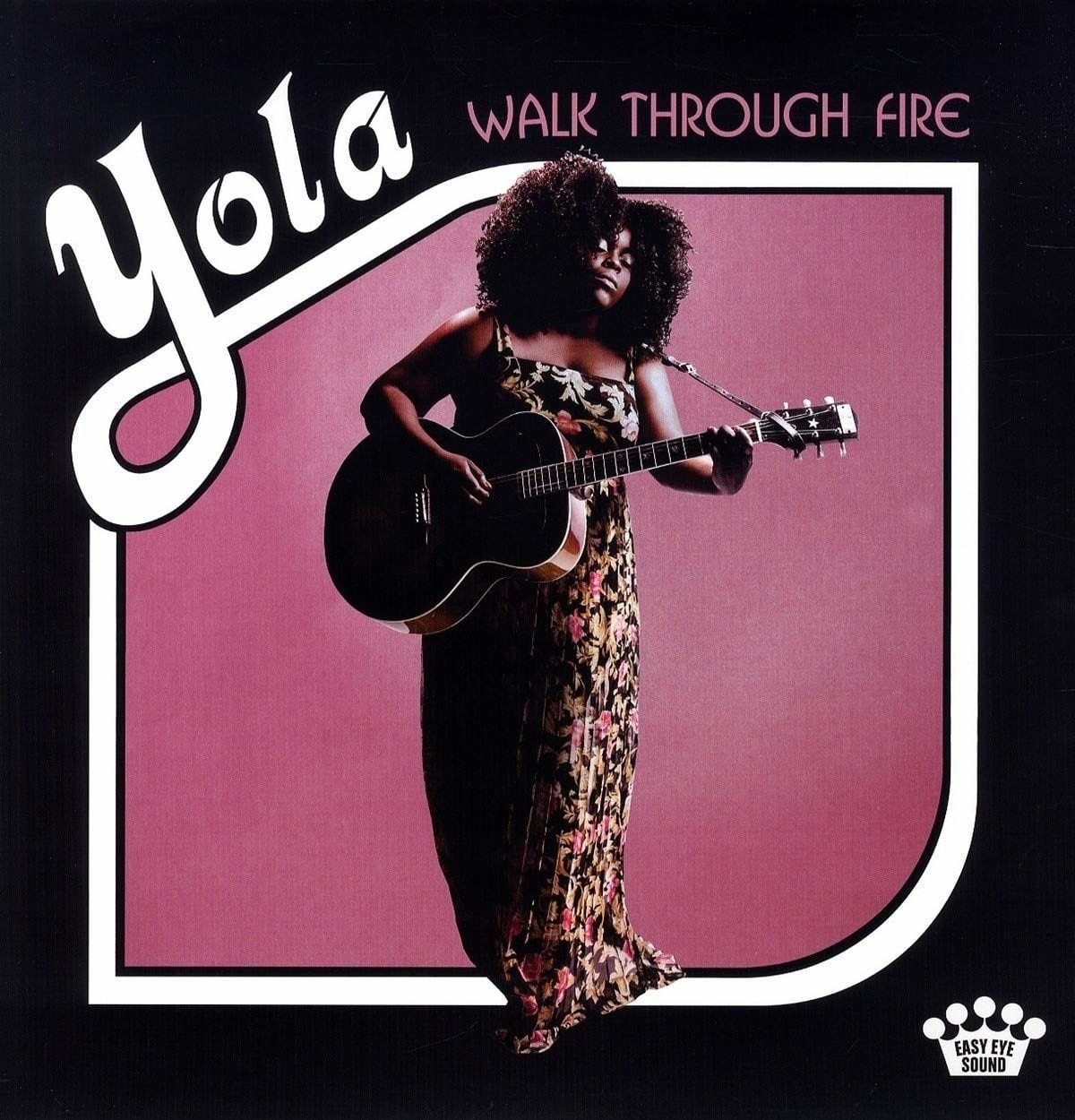
Yola experienced poverty as a kid, homelessness as an adult, and a house fire that almost took her life. But the 35-year-old singer-songwriter is not bitter. Her tribulations have made her stronger. The shock of a sudden disaster convinced her that she needed to make some changes, like getting out of an abusive relationship. The fire she sings about on the title song is both a literal and metaphorical one. On Yola’s semi-autobiographical debut full-length album, she sings in a strong and clear voice about surviving her trials and the simple pleasures she has experienced. Things like a ride in the country, bird song, being held by another, that make daily living a pleasure.
Dan Auerbach’s (Black Keys) production gives the UK artist the gloss of the American South without overshadowing what makes her sound distinctive. Yola has a marvelous presence that makes one always wanting to hear more. Walk Through Fire is Dusty in Memphis for the 21st century without being retro or dated in terms of its style, substance, and quality. – Steve Horowitz
Vanishing Twin – The Age of Immunology [Fire]

It’s noticeably difficult to say which genre The Age of Immunology fits into. At times it has the experimental timbres of avant-garde rock, at others the tone and lyrics of 1960s psychedelia, and sometimes even pushes into the grooves of funk. But this scope is its greatest strength. Within the album’s moderate runtime, Vanishing Twin explore a formidable range of rhythmic ideas and tonal shifts. All of this, though, is carried on an ethereal haze of rolling percussion, crooning vocals, short string motifs, and warbling noisy guitars, or the driving grooves of Krautrock.
But complimenting this diversity is a consistent haunting tone. Despite some brighter sections, a sinister dread permeates the album. Instrumental harmonies evoke a feeling of haunting melancholia, complimented by languid vocals, which vary in language between Belgian, Italian, Japanese, French, and, most prominently, English. Throughout, The Age of Immunology sounds both meticulously crafted and wilfully unrestrained. Often verging on the self-indulgent, songs wander through passages of instrumental improvisations, but manage to retain a quality of meticulous arrangement, achieving what they set out to do – no more, no less. – Callum Bains
clipping. – There Existed An Addiction to Blood [Sub Pop]

While the music and concepts of experimental hip-hop group clipping might at first appear as belonging to a fantastical and detached plane, it’s the subtle connections to the dismay of present-day realities that have always made them so compelling. There Existed an Addiction to Blood augments this aspect of the Los Angeles trio’s work into space-warping distortion. Demented ideas of magical realism and sci-fi horror bleed through mundanity and get projected like holograms onto the current political situation. The album achieves this through a curious, part honest, part satirical homage to horrorcore—a subgenre of hip-hop imbued with a vintage and often gruesome sense of dread.
Clipping then transform this potentially hackneyed analogy and stylistic choice into a powerful vessel of purposeful absurdity. Here, Daveed Diggs’s heady verses and incisive flow thrash around in the embrace of William Hutson and Jonathan Snipes’s otherworldly electronics, shaping an uncannily fleshy concoction. As the creepy noise instrumentals and panic-inducing poems grab the listener with spectral hands, we have no choice but to see all werewolves, zombies, and manipulative monsters around us. – Antonio Poscic
Ekiti Sound – Abeg No Vex [Crammed Discs]
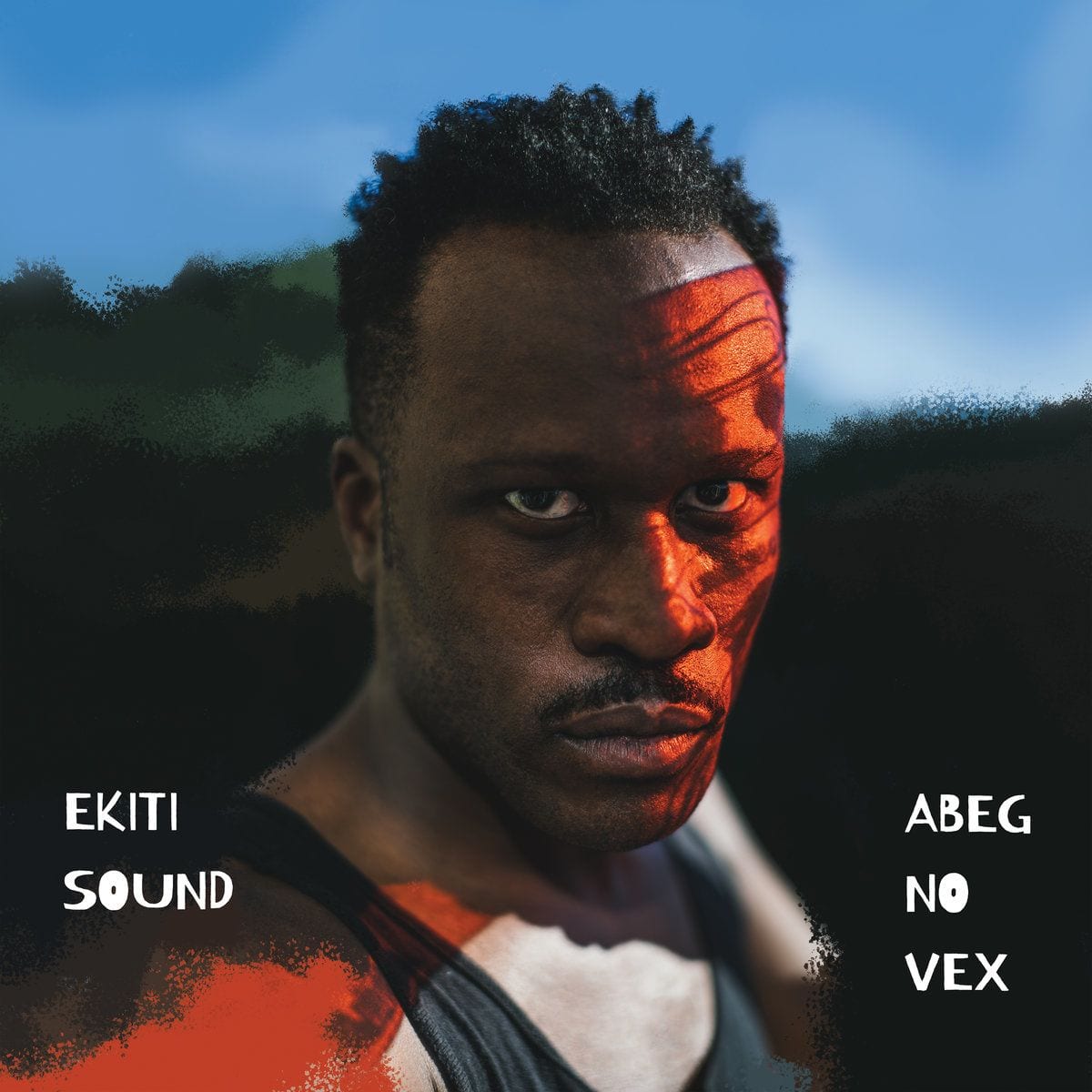
On the first track of Abeg No Vex, producer Leke Awayinka’s first album under the name Ekiti Sound, majestic keys lead into lyrics that describe life in Nigeria – the “Land of the Talking Drum”, as the track calls it – and a sense of identity tied into the associated history and landscape. It makes for a perfect introduction to an album that draws on local folklore, national popular music traditions from the last century to paint a portrait of the Nigeria Awayinka knows. As Ekiti Sound, he builds on that experience with an eclectic mix of vocals, beats, and samples. The songs of Abeg No Vex range from dancehall jams and trance music to melancholy reflections on the more tragic moments of life in Lagos – and that’s hardly the limit of Ekiti Sound’s creativity. Multilingual and sonically diverse, Abeg No Vex is bold and unpredictable, a new perspective on older traditions that makes it very easy to get up and dance. – Adriane Pontecorvo
Holly Herndon – PROTO [4AD]
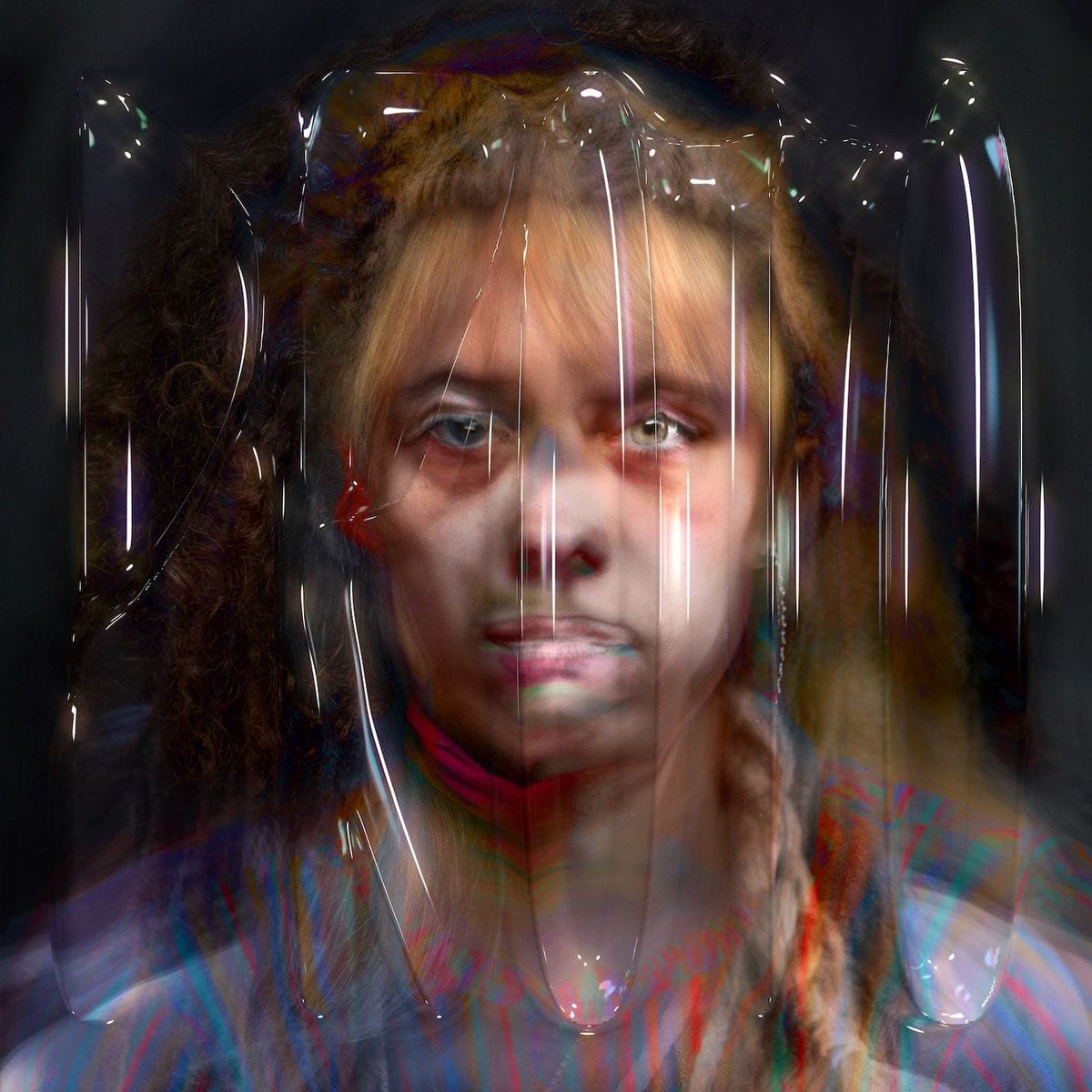
Holly Herndon builds a kingdom upon fragmentation. Where most artists would try to create cohesive offerings, molding diverse ideas and influence into a solid form, she instead takes comfort within the fissures of her sound. Through the years, Herndon’s focus has sharpened. On 2015’s Platform, she found more mobility and melody, moving away from her early, techno-tinged noise.
She goes even deeper with PROTO, freely employing choral arrangements, awakening a cyber-ceremonial presence, as in “Evening Shades” and “Frontier”. The lurking neoclassical and folk sounds provide a fantastic dichotomy with the traditional and forward-thinking. And she takes the same approach in balancing her pop and experimental sensibilities.
“Alienation” and “Eternal” allow for the direct and catchy implementation of glitch bliss yet maintain the delicate core of her vision. She dives deep into ambient, spoken-word electronica in “Extreme Love” and “Bridge”. Then there’s the futuristic AI inhumanity of “Godmother”, featuring the incredible Jlin, which simply annihilates everything. On PROTO, Herndon weaves a rich and unsettling tapestry from the indelibly intertwined (wo)man and machine. – Spyros Stasis
The National – I Am Easy to Find [4AD]

I Am Easy to Find, the National’s eighth studio album—is unlike anything the band has recorded to date. Vocalist Matt Berninger steps away from the center of things to include the guest vocals of Sharon Van Etten, Lisa Hannigan, Mina Tindle, Gail Ann Dorsey, Kate Stables, and the Brooklyn Youth Chorus.
On the album, fans have been gifted with a long-awaited studio recording of “Rylan”, which the band began playing live in 2011. “Rylan” may be one of the pluckier songs on the album, which is a cinematic and contemplative experience. The reason for the album’s reflective feel could be that it sprang from a partnership with director Mike Mills, who made a short black and white film by the same name. Instead of serving as a conventional soundtrack for the film, the record is the result of a reciprocal partnership. Mills has called the album and film “playfully hostile siblings that love to steal from each other”.
The film, which follows the entire life of a woman (played by Alicia Vikander), features a moment of dialogue and subtitles while bits of the songs play over the entire production. The result is an evocative visual and auditory experience. While the songs may lack the spunk found on records like
Alligator or Boxer, I Am Easy to Find is an effecting experience, demonstrating the band’s courage to reach beyond the expected. – Jennifer Makowsky
Hatchie – Keepsake [Double Double Whammy]

The Australian singer-songwriter and guitarist Harriette Pilbeam, who records as Hatchie, released one of the most satisfying EPs of 2018. Sugar & Spice was a short and nigh-perfect collection of dream-pop and shoegaze that wouldn’t have been out of place in a John Hughes movie or on a 1990s alternative radio station. Hatchie expands her sonic textures on her debut album, Keepsake, but remains as romantic as ever.
Whether she is singing about developing a serious crush on the synthpop fever dream of “Obsessed,” or encouraging a friend to remain true to herself after a breakup on the jangly “Her Own Heart”, or being heartbroken on the euphoric “Stay With Me”, Hatchie makes you swoon like a teenager in love. Keepsake is one of the prettiest records of the year that works as a perfect vessel for escapism and daydreaming. It provides a much-needed respite from these overwhelmingly dark times. – Linnete Manrique
HÆLOS – Any Random Kindness [Infectious]

The success of their debut album Full Circle by UK band, HÆLOS came not only because of their ability to refashion the classic 1990s trip-hop sound of Massive Attack, Portishead, and Tricky for a contemporary audience, but also in their ability to dig deep into core, universal themes like love, faith, and loss. To continue that journey would probably have seen the band repeat themselves – treading on all too familiar ground. Wisely on their second album, Any Random Kindness, the band have decided to focus their gaze outwards, addressing themes ranging from the destruction of the planet to the emptiness and loneliness of social media. Most notably, the band have also chosen to broaden their sound, merging more live instrumentation and analogue synths into their sound and in doing so finding new musical paths to explore.
The songs on Any Random Kindness take time to sink in, with hooks revealing themselves over time with the band clearly understanding the need to take risks to grow musically. The mix of the organic and synthetic is handled skillfully throughout with slowly rippling melodies suddenly enveloped by swarming crowds of busy electronics and charged live drums. The band’s second album finds HÆLOS expanding on their core sound while reminding themselves and the listener of just why they are such an exciting and intriguing outfit. – Paul Carr
Billie Eilish – When We All Fall Asleep, Where Do We Go? [Darkroom / Interscope]

Something immeasurable happened between Bille Eilish’s debut EP Don’t Smile at Me and the sprawling opus of When We All Fall Asleep: the lights went out. Her new approach of starkly minimalist production, chilling vocal harmonies, and a loose hip-hop affect drew inevitable Lorde comparisons. But Lorde has never gone this dark, has always been concerned with the business of living. In contrast, even when Billie has fun, it’s tinged with a doomed, maniacal sheen. The emotional stakes on display here are those of someone who’s pouring their heart out with their last breath: if this doesn’t work out – this friendship, this party, this love – then that’s it. Everything’s over. Billie is singing from the bottom of an infinitely deep pit, staring up
The black hole at the center of When We All Fall Asleep is strong, but not strong enough to keep quite everything inside. A time-for-new-earbuds bass leaps out from “Xanny” and “Listen Before I Go”. A truly evil sense of suspense looms across “You Should See Me in a Crown”. Meanwhile, “Bad Guy” manages to be the only legitimately boundary-pushing radio hit of the year.
Criticisms levied against Billie feel like a movie we’ve seen over and over again when it comes to new and exciting young women who experience even mild success: she’s overexposed, she’s a poser, she’s an industry plant. But honestly, if it takes a few more viral YouTube interviews for her contemporaries to try catching up to this level of focused, tactful pop, so be it. – Nick Malone
Lingua Ignota – CALIGULA [Profound Lore]
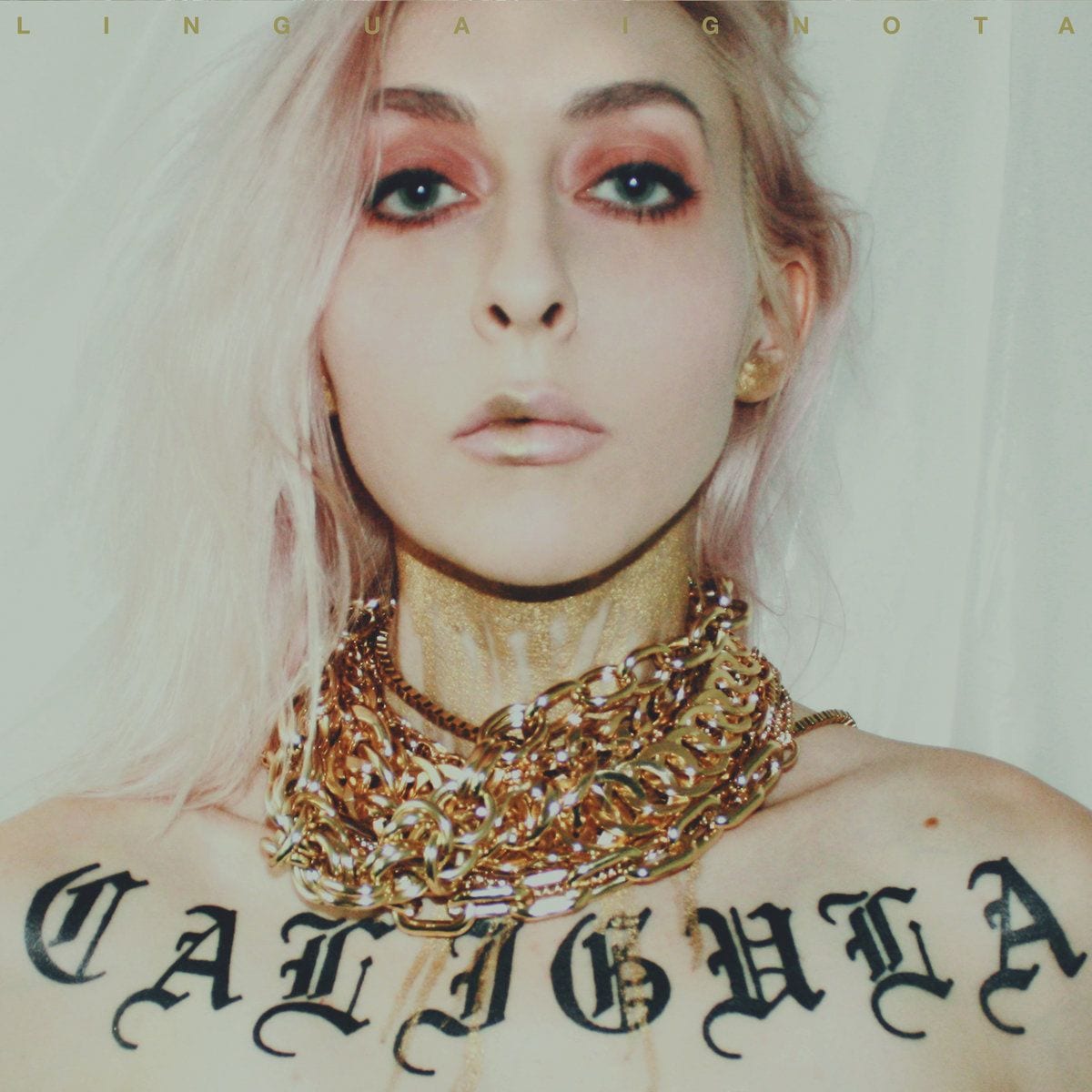
The term “lingua ignota” was coined for the language constructed by Saint Hildegard of Bingen, believed initially to be used for mystical purposes but was actually used simply for secretive purposes. But the idea of an unknown language, one that exists but might not be understood, is a much deeper philosophical issue. Some concepts and ideas cannot be appropriately delivered through the spoken or written word. Kristin Hayter has always tempered with extreme subject matters, stories of abuse and violence. And while words and phrases can be used to detail all these terrifying situations, there needs to be an additional language to navigate these on an emotive level.
CALIGULA is an exemplary work of combining the lyrical with the extreme. Hayter draws upon her choral background and neo-classical influences, while at the same time sourcing all the energy of noise, power electronics, and dark ambient to construct the maze-like anatomy of her work. Beautiful vocal arrangements and distorted screams are laid upon majestic backgrounds and excruciating, razor-sharp synthesizers to produce one of the darkest works of this year. – Spyros Stasis
Durand Jones & The Indications – American Love Call [Dead Oceans/Colemine]
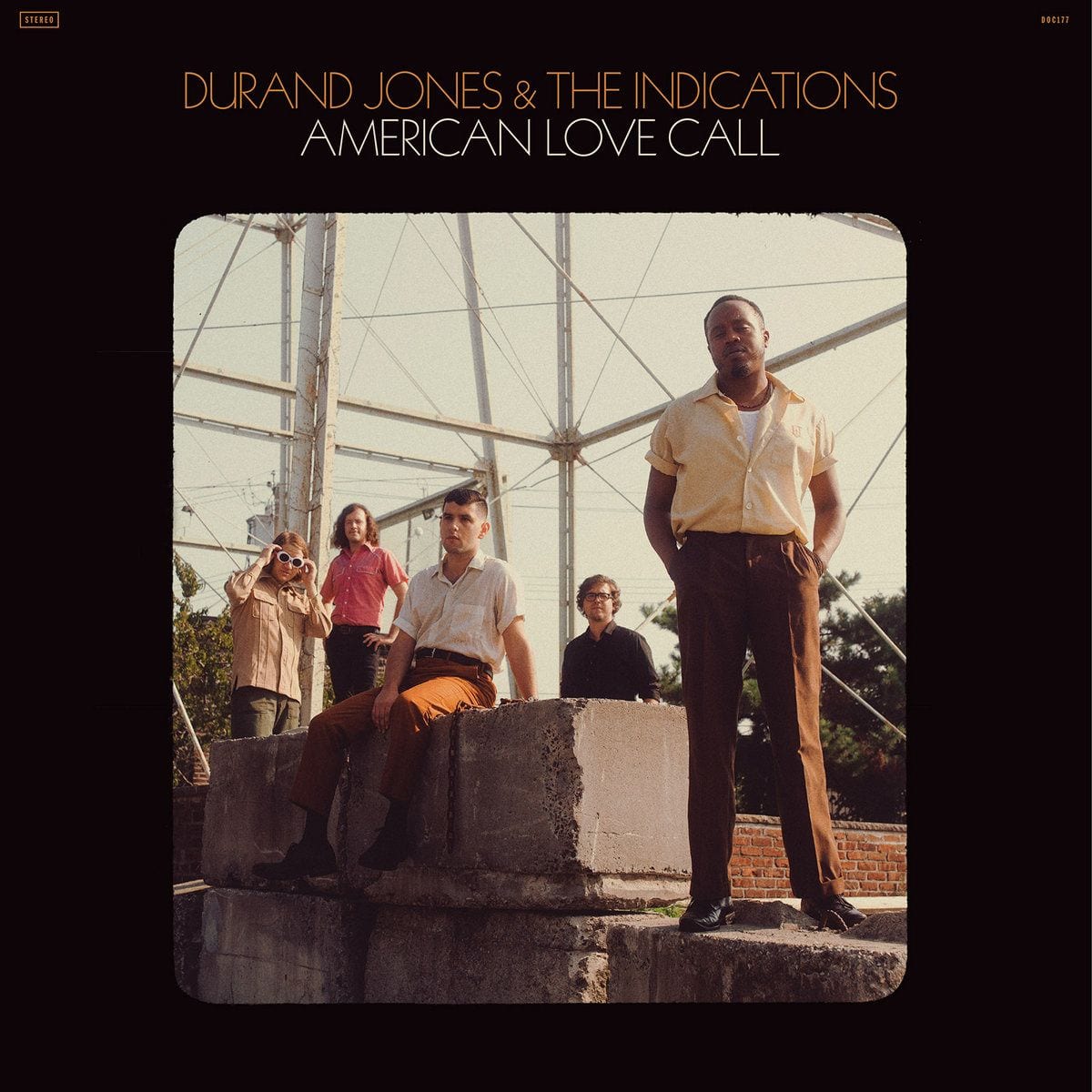
There was a homesun charm to Durand Jones & The Indications’ 2016 debut album, one where although it was clear the band was recording on a budget, their love for classic James Brown and Otis Redding records shone through their tender new originals. With a wave of critical and live support in the ensuing years, the group took their sophomore album into a professional recording studio, and instantly their sound goes from that of a heartfelt tribute band to a fully-fleshed performance outfit.
Every tiny production voice (the way those group vocals were recorded, my word!), every new instrument introduced (can’t be a classic soul album with a bit of xylophone, afterall), and every new dimension to the band’s songwriting chops only proves that in taking so much inspiration from their heroes, they just might become someone else’s inspiration down the line. Extraordinary stuff. – Evan Sawdey
Gary Clark Jr. – This Land [Warner Bros.]
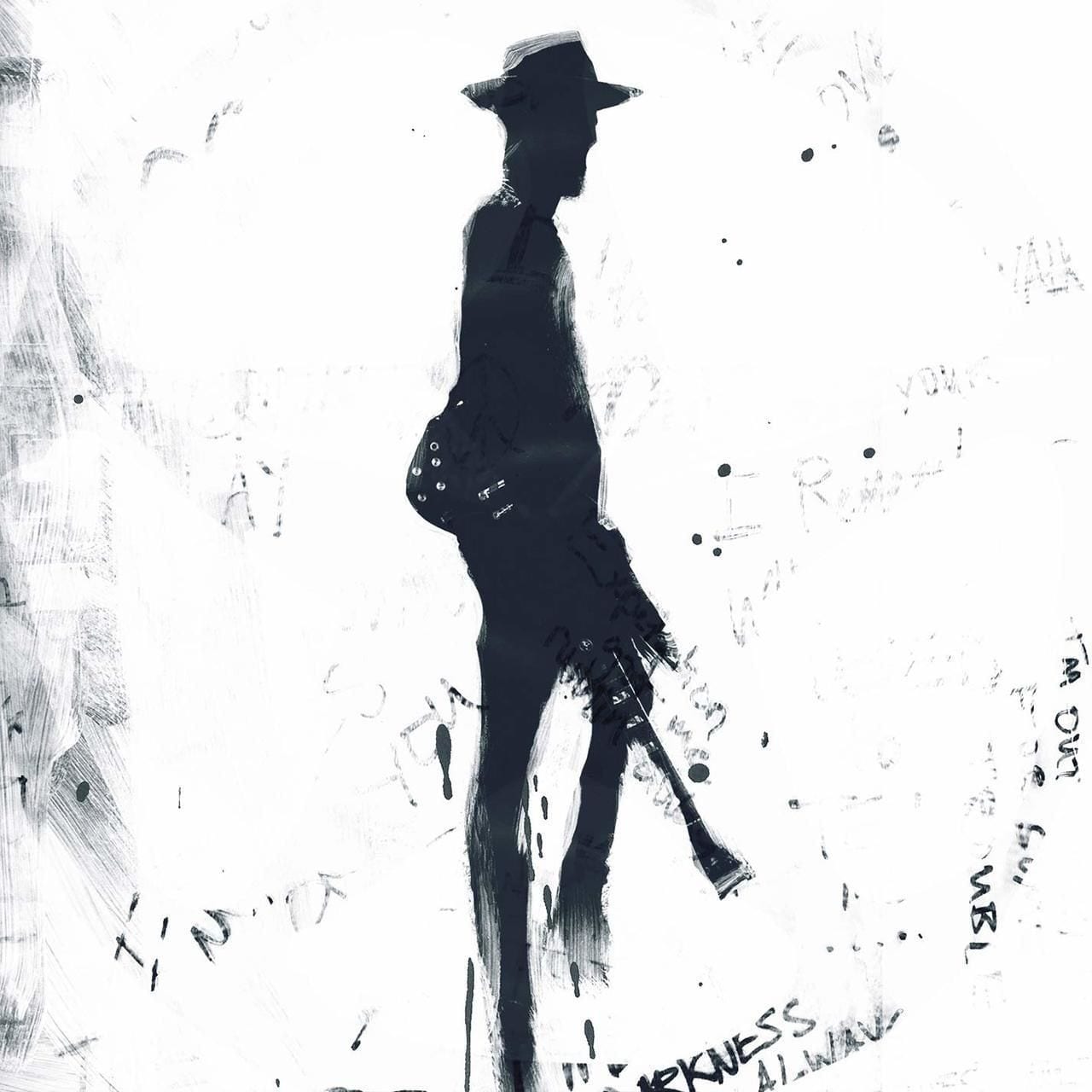
Gary Clark Jr. isn’t interested in wasting time. The Austin, Texas musician opens his third studio LP, This Land, with a song of the same name that immediately socks listeners in the jaw. The song, inspired by Woodie Guthrie’s “This Land Is Your Land”, is a mesh of rock, blues, and trap that puts the dark crux of American history on full display. Clark stands proudly atop a big house and shouts, “Fuck you, I’m America’s son, this is where I come from!” in protest of others who would say otherwise. Powerful as that song is, the anthem, which is the first of 17 tracks (if you count the two bonus songs), each of which is unified in their impact and distinct, is only the beginning.
“Feeling Like a Million” is reggae-inspired; “Gotta Get into Something” is rooted in punk; “Feed the Babies” is blues; and if “Pearl Cadillac” isn’t an homage to Prince, then I’ll eat purple crow. Clark, often known for his prowess on lead guitar and his bold voice, shows restraint on the album, too. One wants to hear him explode in shredding glory, but he makes you wait for it, tastefully. The album concludes (not counting bonuses) with “Dirty Dishes Blues”, a tribute to the timeless lineages of the genre, of which Clark is very much a part. – Jacob Uitti
Kano – Hoodies All Summer [Parlophone/Bigger Picture Music]

East London grime MC, Kano is a legend in British hip-hop by now, but he should be a “legend in hip-hop”, period. He’s got a killer flow and a whole career full of tunes that bang the beats while making you think, starting with 2005’s Home Sweet Home. Hoodies All Summer is a brief album at 39 minutes, but it’s so perfectly edited that every second matters and there’s not a moment of wasted space. That means the music’s message has a greater impact with its clear focus. It also happens to be the perfect length for the modern attention span, which is key if you want to have your message heard.
Hoodies All Summer is a deep look at Black British life in the age of Brexit. “Trouble” decries the ongoing “postcode warring” in the UK with female voices urging that they don’t want any trouble anymore. The blend of musical forms from across the African diaspora on the album is mesmerizing. Popcaan joins Kano on “Can’t Hold We Down” for the British grime/Jamaican dancehall mashup that addresses cyclical violence and the systemic oppression of Black people from London’s “bad manors”. Meanwhile, Kojo Funds, who employs West African and Caribbean sounds in his music, joins Kano on another album highlight, “Pan-Fried”.
The album concludes stirringly with the soulful “SYM” that condemns imperialism, colonialism, and the lack of political and economic power amongst Black British people and immigrants. These lines are just one reason that you must hear Kano’s Hoodies All Summer, a masterpiece of British hip-hop.
They tell us to go fuckin’ back to our own country
But they won’t even give us back our own countries
Every entrance to a door, has a footprint left by the ones that came before
– Sarah Zupko
Jenny Lewis — On the Line [Warner Bros.]

Jenny Lewis’ fourth solo album, On the Line, is filled with pain, heartbreak, and hope. It is populated with the ghosts of her recently-deceased addict mother, and a long-term relationship ended. The album doesn’t shy away from her misery or her unhealthy coping mechanisms. Still, On the Line is imbued with a hopefulness that runs underneath much of the hurt, keeping it from ever becoming overwrought or maudlin. Playing Carole King’s iconic Tapestry piano and featuring drums by Ringo Starr and Jim Keltner and keyboards by Benmont Tench, Lewis has already proven her knack for hooks and memorable turns of phrase, which come through beautifully. Similarly, Lewis’ voice, always an asset, is showcased wonderfully as her falsetto and plaintive tone ground the whole album. On the Line is Lewis’ best album since Rabbit Fur Coat; it’s a culmination of over 20 years in the music business, highlighting an artist that’s only getting better and better. – Jessica Suarez
Rapsody – Eve [Jamla]
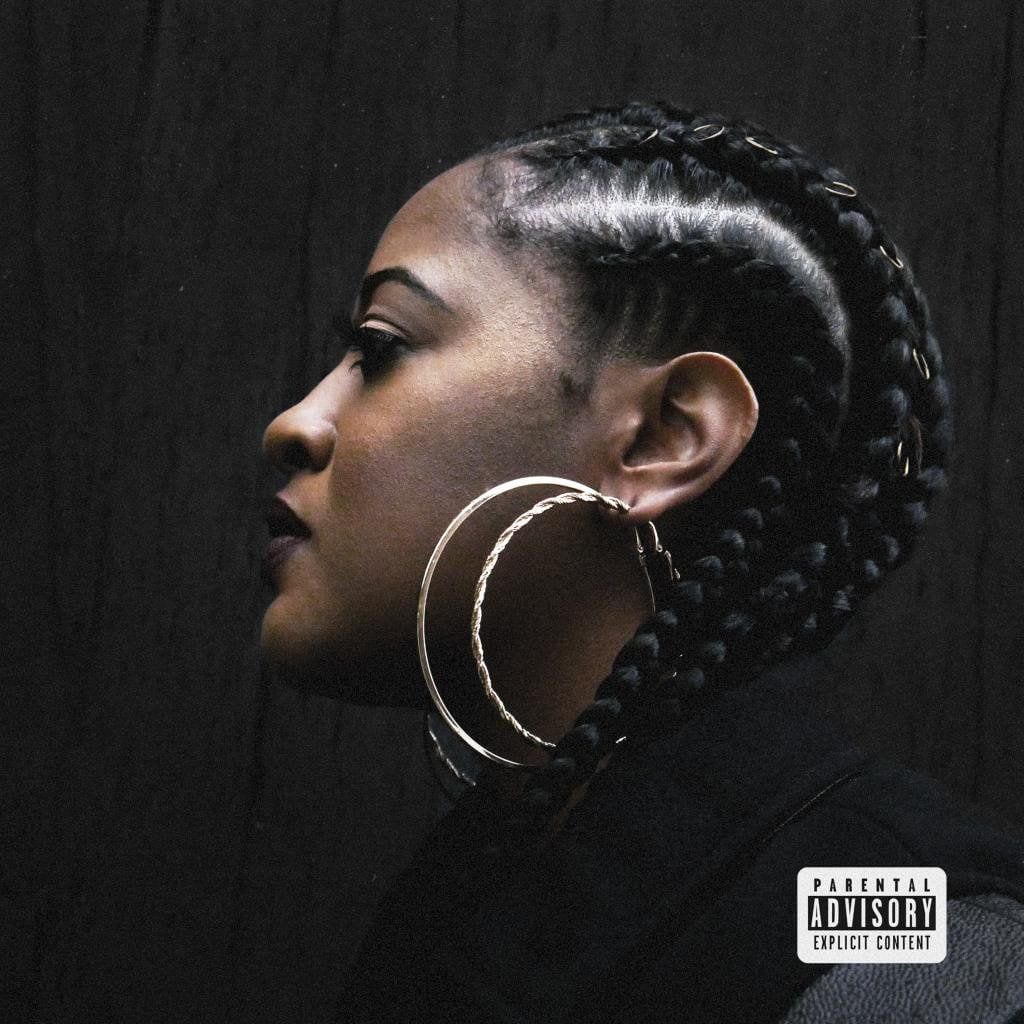
Rapsody’s Eve represents the moment you finally exhale after you’ve been waiting to do so for what seems like forever. At ease and self-assured, the North Carolina lyricist creates an album similar in concept to this year’s Legacy! Legacy! by singer-songwriter Jamila Woods. Just as Woods named each song after a person of color (“Octavia”, “Miles”, “Muddy”, “Basquiat”, and the like), Rapsody names her songs after women of color.
These inspirations hail from the music world (“Nina” and “Aaliyah”), modeling and fashion (“Tyra” and “Iman”), and sports arenas (“Serena” and “Ibtihaj”). But this concept album — painstakingly produced by Eric G, Khrysis, Mark Byrd, Nottz, and longtime collaborator 9th Wonder — isn’t only a vehicle for tribute. It’s actually quite introspective, and wildly inventive too, as Rapsody inhabits the spaces between titles and lyrics with revealing intelligence, dexterity, and wit. She’s crafted an album that sounds like it was extracted from the same creative force as Nikki Giovanni’s poem “Ego Tripping”: “I gave my son Hannibal an elephant / He gave me Rome for mother’s day.”
Some of the songs reference their namesakes with clever wordplay. There’s the “make a sister act up” line in “Whoopi” (as in the Sister Act movies). In “Maya”, the chorus declares, “I can’t be no bird in a cage.” We get a neat twist on the First Lady in “Michelle” (“It’s ladies first tonight”). Perhaps my favorite is “Oprah”, built around Rapsody’s refrain “dollars, dollars, dollars circulate”, where the word “circulate” might remind you of the letter O. Nevertheless, it’s the essence of these giants that activates the music, along with Rapsody’s willingness to locate their virtues within her own.
Better still, she doesn’t do it alone — she shares the throne with a wise and battle-ready Queen Latifah (“Hatshepsut”) along with crooner K. Roosevelt (“Maya”), GZA and D’Angelo (“Ibtihaj”) and even a raw sample of Tupac quoting a line from his hit “Keep Your Head Up” (“Afeni”). This is heady stuff, an elegant elaboration on something Chaka Khan told us way back when: “I’m every woman — it’s all in me.” – Quentin B. Huff
Michael Kiwanuka – Kiwanuka [Polydor/Interscope]
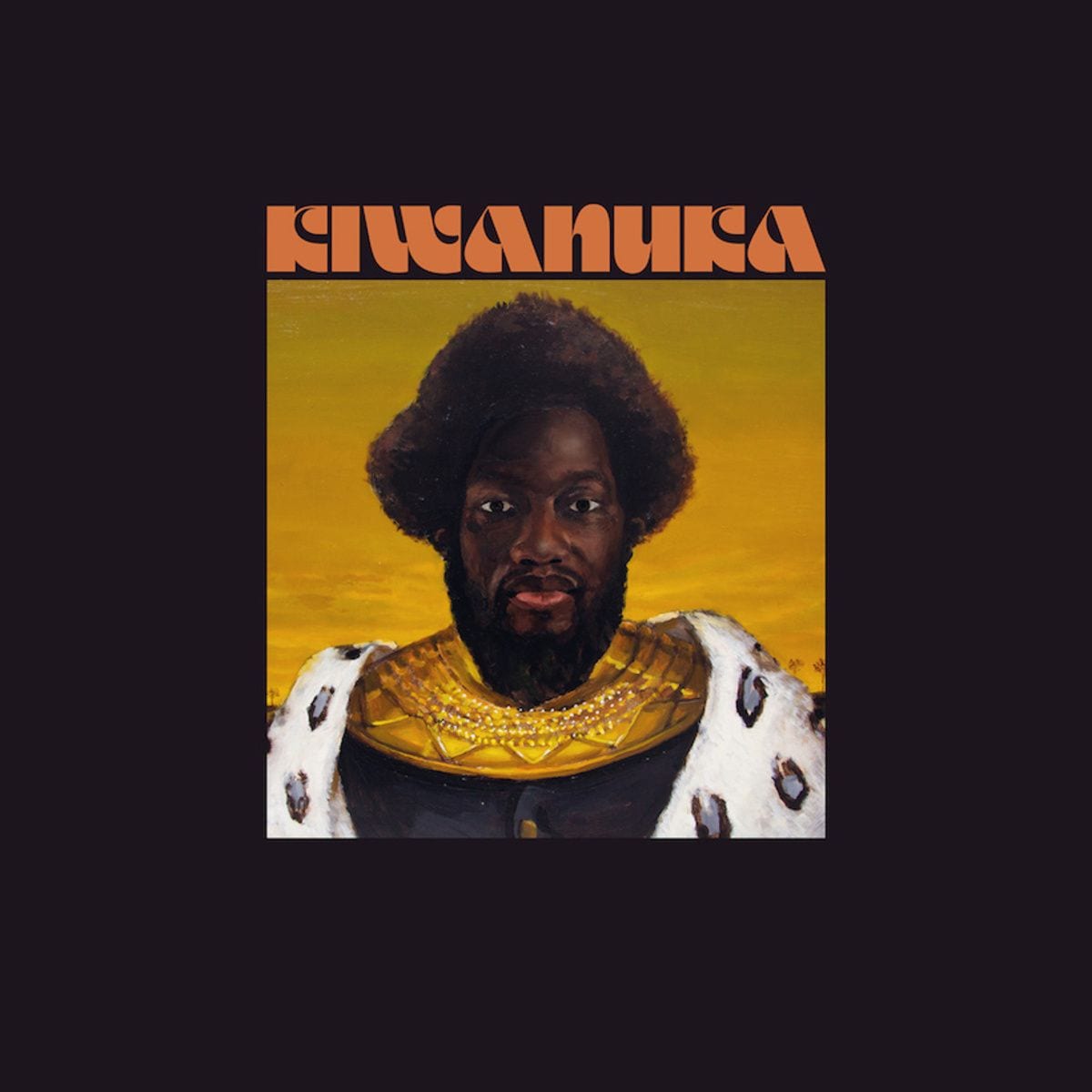
Nobody listens to complete albums anymore, or at least that is the conventional wisdom in some musical circles. Fortunately, there are still visionary artists in many genres who are creating album-length statements that are worth hearing. British soul/folk rocker Michael Kiwanuka, who released his self-titled third album in November, is one such artist. Kiwanuka is filled with luminous songs that probably sound great on their own, but sound even better within the context of the complete album.
One such song, the engaging “You Ain’t the Problem”, opens Kiwanuka and has already garnered radio play on some genre-bending stations. “You Ain’t the Problem” and the equally upbeat, somewhat psychedelic second track, “Rolling” draws listeners into the album. From that point out, the album becomes a journey that ends with two lush but ghostly ballads, “Solid Ground” and “Light” that bring the album to a hushed, spiritual conclusion light years away from where it began.
From beginning to end, Kiwanuka sounds like a contemporary classic at the same time as it sounds like it would have been a classic 45 years ago. Or 45 years from now. – Rich Wilhelm
Jordan Rakei – Origin [Ninja Tune]
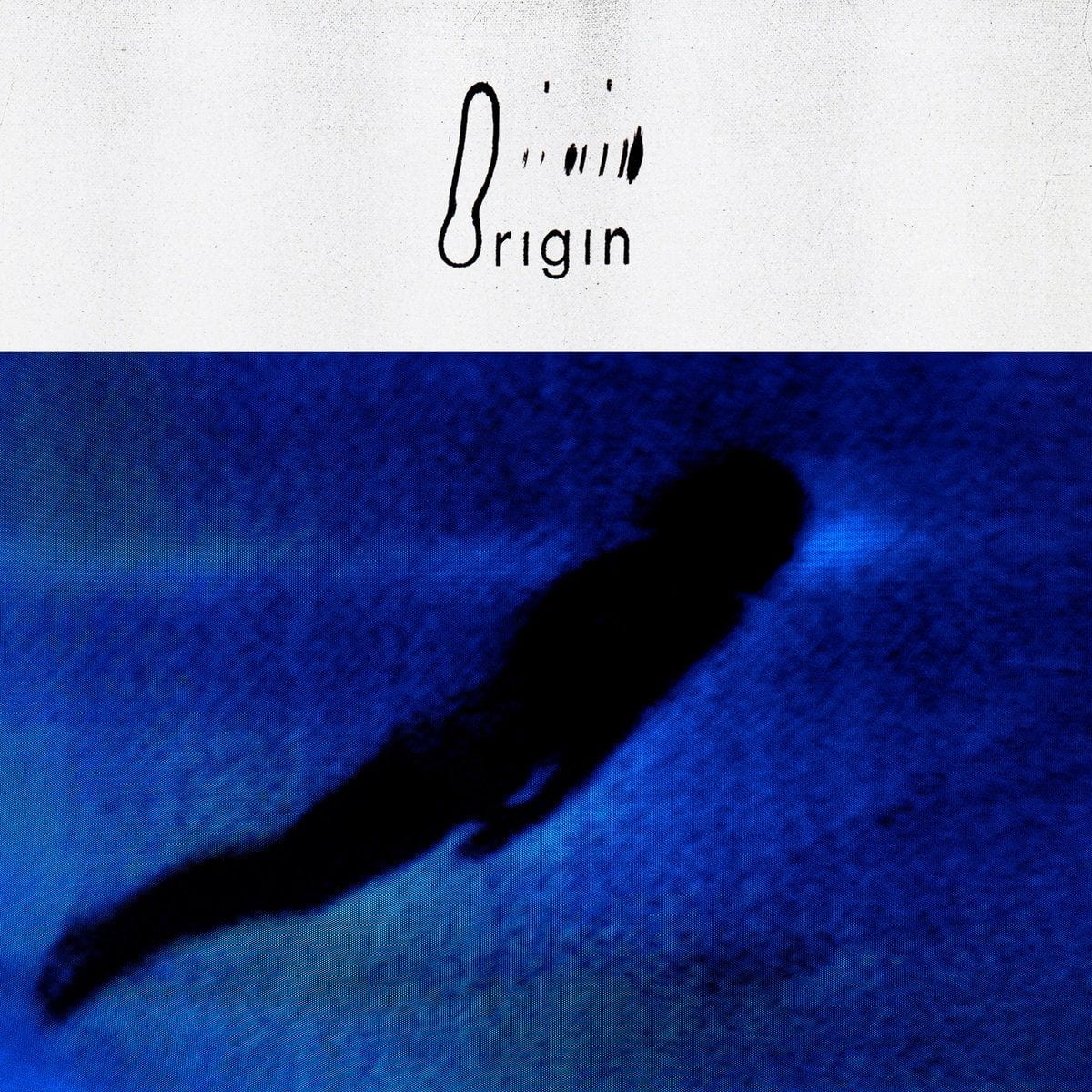
On Origin, Australian singer, multi-instrumentalist and producer Jordan Rakei cast his net a little wider than his previous release. Musically it was much more ambitious than previous album Wallflower, as he deftly blended a mix of smooth jazz, classic soul, and cool funk with a sprinkling of 1990s R&B and hip-hop. However, it’s Rakei’s ability to tie the songs around a single unifying theme – that of our slow, submission to, ever more intrusive, advancements in technology – that took the whole thing to another level. Executed poorly, these broadly dystopian themes could have distracted from the songs themselves. Fortunately, they add a whole new layer to the vividly rich, hook-laden songs.
“Mad World” offers a contemporary spin on a classic soul sound while the stuttering funk of “Say Something” marries his tender vocal melodies with a plea to be open and honest about how you feel. “Wildfire” beguiles with Rakei’s crystal clear, jazz-infused vocals given a chance to shine. Elsewhere, Rakei knits together light electronics and smooth jazz on “You & Me” while songs like “Speak” and “Mantra” hypnotize with their inventiveness and sheer beauty. Origin is a strikingly inventive, accomplished album that benefits from Rakei’s succinct vision and his desire to wrench himself clear of his comfort zone. – Paul Carr
Hot Chip – A Bathfull of Ecstasy [Domino]

Hot Chip exits the 2010s with an achievement that few bands could claim: they never put out a bad record. With One Life Stand (2010), In Our Heads (2012), Why Make Sense? (2015), and now A Bath Full of Ecstasy, this London-based electropop act crafted a musical résumé that stacks up with the best of them. From dancefloor bangers like “Spell” and “Hungry Child” to would-be hits like “Melody of Love” and “Echo”, A Bathfull of Ecstasy showcases all the brilliance we’ve come to expect from these guys, along with some new flourishes that prove this band’s consistent ability to surprise. Hot Chip is electronic music’s Spoon: so consistently excellent that it’s easy to take them for granted. But with each new LP, and A Bathfull of Ecstasy is no exception, we get to be reminded once again about what keeps us coming back in the first place. – Brice Ezell
Underworld – Drift Series 1 [Caroline]
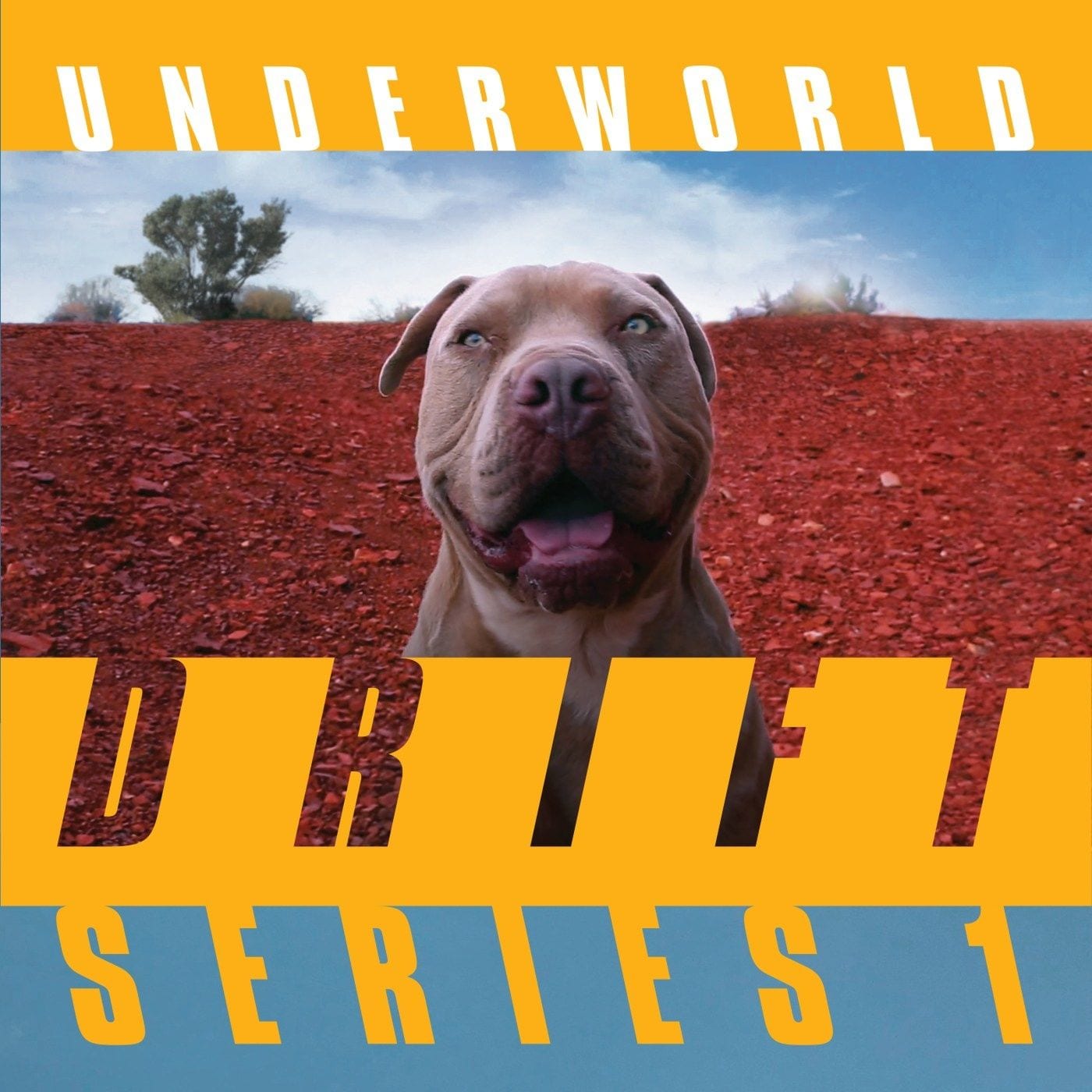
In November last year, British electronic duo Underworld embarked on what was easily the most ambitious challenge of their long career. The band set themselves the goal of releasing a brand new, fully produced song complete with visuals every day for 52 whole weeks. Compiled as the Drift Series 1 box set, the whole project saw the band release some of the best work of their career.
Throughout, Smith and Hyde steered the band down both familiar and previously unexplored avenues. Most remarkably every track on the album is there on merit as fully formed pieces with developed hooks and melodies rather than failed experiments or abandoned jams. From more crystalline ambient pieces that draw you in, heart and soul to characteristic throbbing techno pieces that work the body to more experimental pieces, there is something for everyone.
Taken as it is, the band actually made six very different, equally brilliant Underworld albums, and that’s only if you chose to listen linearly. The beauty of the project is that you could dip in and out or you could rearrange tracks into your own playlists like a glorious musical pick ‘n’ mix. Few artists could have pulled off something so creatively daring so spectacularly. – Paul Carr
Jenny Hval – The Practice of Love [Sacred Bones]
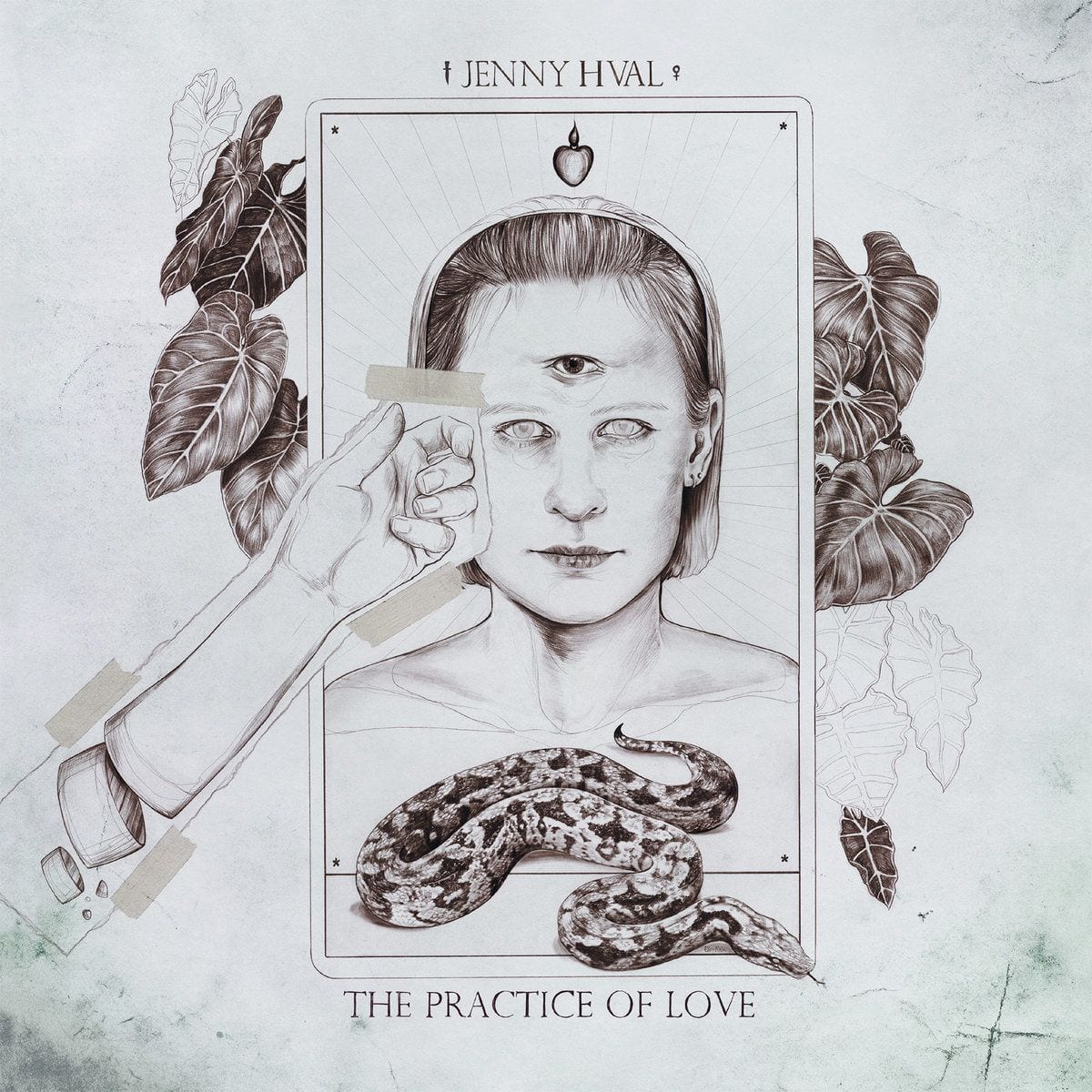
On her seventh album, Jenny Hval uses the kind of voice-overs we might hear in new age music, the kind that usually tell us to look inside our mind or follow our inner vibrations or whatnot, to explore some of her headiest ideas. The Practice of Love explores childlessness, female bonding, the role of artists and thirty-something women in society, and, yes, love as a practice rather than an emotion over music that borrows from trance, downtempo, new age—genres of electronic music that encourage spiritual uplift. It’s not an entirely sincere appropriation, but Hval isn’t making fun of this music. When that throbbing, centering bass enters on “Lions” or “Six Red Cannas” explodes into scaly synth chords, we understand she wants this music for its ability to induce transcendence as much as anything else. This, plus the mischievous, tactile sensuality of her lyrics, make The Practice of Love so much more pleasurable and accessible than many high-art pop concept records. Sorting through its ideas is as fun as listening to it. – Daniel Bromfield
Baroness – Gold and Grey [Abraxan Hymns]

After 12 years and five albums, Baroness’ cycle of color-based records comes to an end with Gold and Grey, which arguably sets a new high water mark in their career. John Baizley’s band has now completely turned over since 2012’s Yellow & Green, but Baizley remains Baroness’ creative force, and his distinctive knack for melodically bellowed singing and heavy but catchy guitar riffs keep finding new unexpected variations. Drummer Sebastian Thomson and bassist/keyboardist Nick Jost bring a loose, jammy style to “I’m Already Gone”, “Broken Halo”, and “Seasons”, while new guitarist Gina Gleason matches Baizley in intensity on sing-along ragers like “Borderlines” and “Throw Me an Anchor”.
Elsewhere, Baroness explore quieter textures on “Emmet- Radiating Light”, which employs Baizley’s knack for harmonies in a piano and glockenspiel-filled setting. “Cold-Blooded Angels” and “Tourniquet” each begin with an extended quiet introduction, but the similarities end there as the songs go in vastly different directions. The band’s short transitional pieces return on this album, as well, fascinatingly bridging different songs with everything from string sections to watery, detuned guitars. At a full 60 minutes long, Gold and Grey is a big album, but Baroness has enough big ideas to fill that length easily. – Chris Conaton
Sharon Van Etten – Remind Me Tomorrow [Jagjaguwar]

Plenty has changed in Sharon Van Etten’s life ahead of recording Remind Me Tomorrow: she temporarily avowed a hiatus from music, returned to college to pursue certification as a mental health counselor and she became a mother. Yet Remind Me Tomorrow isn’t really about any of these things. Rather, the album is an illustration of how Van Etten’s present moment has coalesced to restructure her standpoint. Hence Remind Me Tomorrow is a deft deconstruction of the feelings associated with new headspaces and the tedious process necessary in unpacking affect.
Musically, the album also finds Van Etten incorporating innovative instrumentals, departing from her standard folkish oeuvre for a more synthpop vibe. Van Etten is fully aware of these musical and personal changes. As she makes clear to her former self in “Seventeen”, “I wish I could show you how much you’ve grown.” Remind Me Tomorrow is a courageous and confident portrait of an artist in transition. – Elisabeth Woronzoff
Little Simz – GREY Area [Age 101]
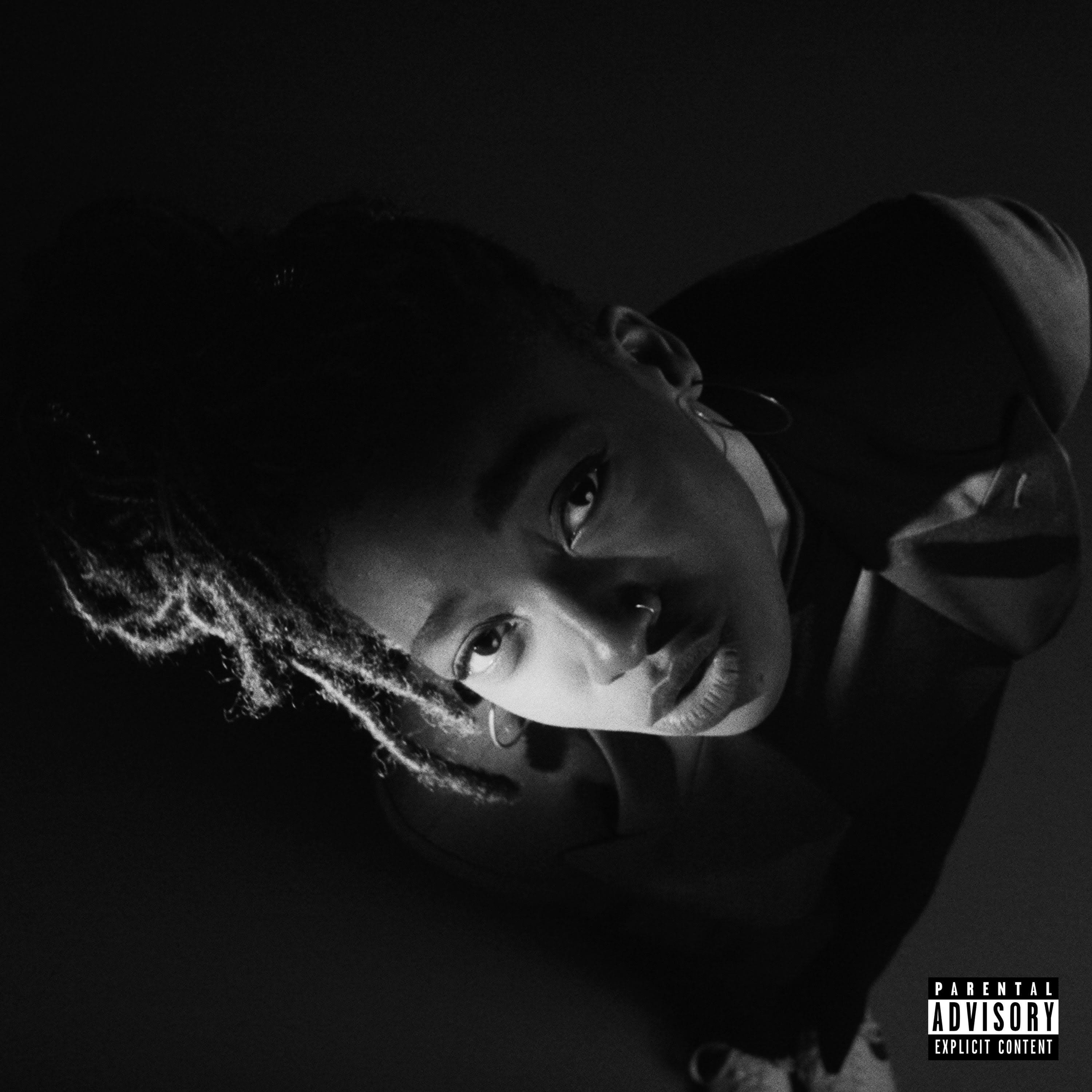
British-Nigerian artist Simbiatu Ajikawo, known in rap circles as Little Simz, is ferocious. Listen to her barrage of rapid-fire lyrics, and you can almost hear Burgess Meredith’s character from Rocky III saying, “This guy is a wrecking machine!” Little Simz could fit that description, but on Grey Area, she considers the extent of the fallout after things get wrecked.
Every action sparks a reaction, and she dives right it on album opener “Offence”. Over a metallic knuckling beat, Little Simz extends each line of her verses, as if in a duet with the soundscape. She’s forthright and full of bravado, like any skilled emcee might be, but there’s the recognition that when she goes for broke, she’s going to be judged for it.
A good offense can sometimes be a good defense, but not if it leaves you open to someone else’s attack. We see this dramatized through the album, from one’s misguided reliance on gunplay (“Wounds”, featuring Chronixx) to the idea of submitting to unproductive counseling (“Therapy”). Love relationships don’t fare any better (“Sherbet Sunset”) and even the famous have fallen after sharing too much of themselves (“Flowers”, offering Hendrix, Winehouse, Joplin, and Cobain as notable namechecks). While the album’s title refers to the grey area of life, particularly in one’s mid-20s, there’s much to suggest that it’s also a search for a golden mean, some way to strike a balance between character and chaos. – Quentin B. Huff
Purple Mountains – Purple Mountains [Drag City]
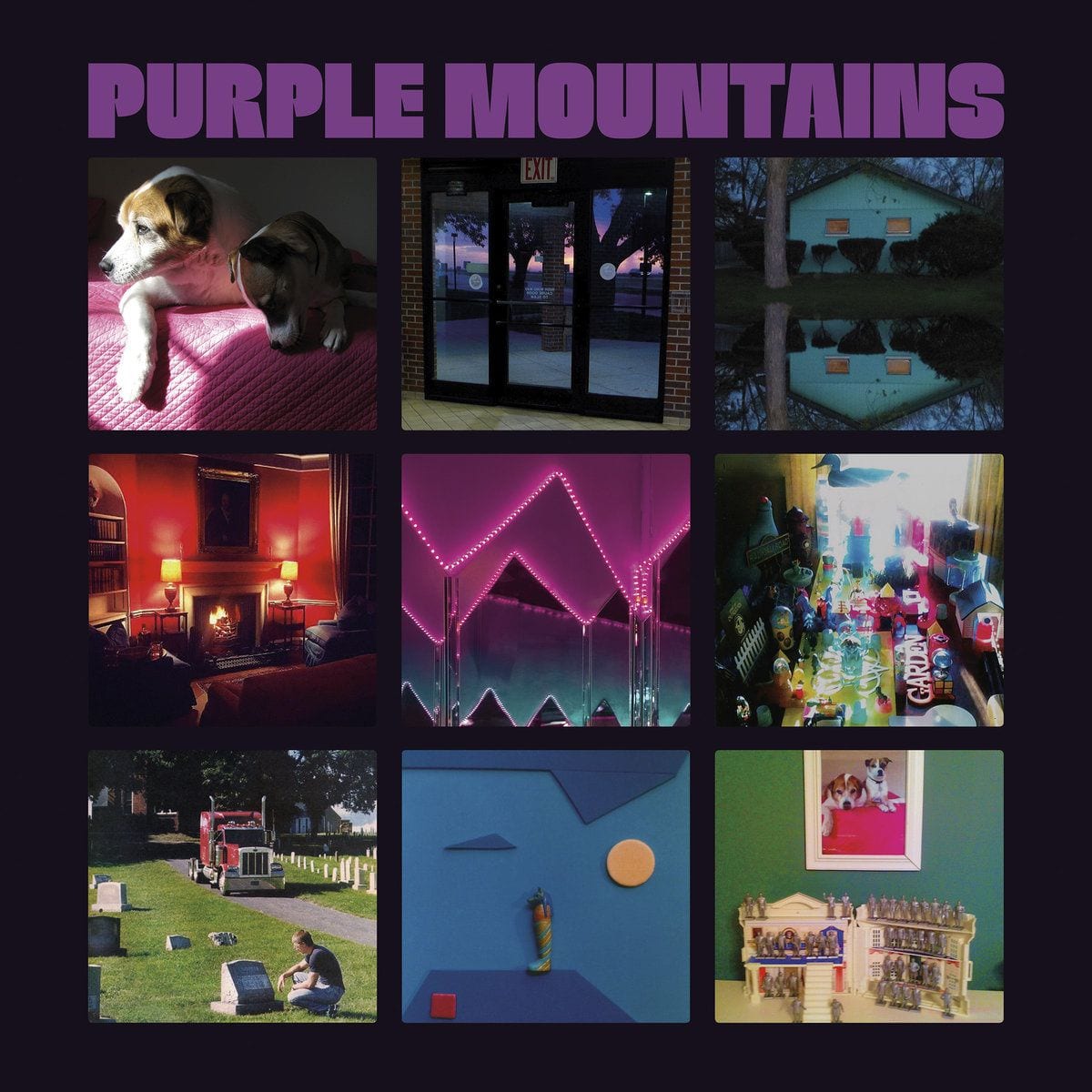
Nobody knew this would be an epitaph. In 2009, singer-songwriter David Berman, who fronted the acclaimed indie rock band the Silver Jews, announced his retirement from music and the dissolution of his band. He spent nearly a decade devouring books and staying out of the public eye before a renewed interest in making music took over, this time under the band name Purple Mountains. Sessions with Dan Auerbach, Jeff Tweedy, and Dan Bejar were all scrapped, and Berman eventually hired Brooklyn duo Woods to produce and perform the new music with him.
The result is a deeply personal work, with Berman’s lyrics touching on his antisocial tendencies (“She’s Making Friends, I’m Turning Stranger”), his relationship with his late mother (“I Loved Being My Mother’s Son”) the intersection of religion and capitalism (“Margaritas at the Mall”) and, of course, death (“Nights That Won’t Happen”), all delivered in his deadpan Lou Reed-meets-Bill Callahan monotone. The music is also refreshingly organic and direct, as the single “All My Happiness Is Gone” flies by in a breezy mid-tempo jaunt, in complete contrast to the downbeat lyrical content. “Snow Falling on Manhattan” may be the album’s most gorgeous centerpiece, with gentle organ chords and warm brass swells provide the perfect accompaniment for Berman’s take on a richly detailed winter evening in the city. “If It looks like it might be a bad one / The good caretaker springs to action / Salts the stoop and scoops the cat in / Tests an icy patch for traction.”
Berman released Purple Mountains in July and committed suicide in his Brooklyn home the following month. He battled depression for years, so his passing may seem unsurprising to some, but the near-flawless execution of the ten tracks on Purple Mountains suggests that he still had a great deal more of his art to share with the world. – Chris Ingalls
Big Thief – U.F.O.F. [4AD]

The first of two albums from Brooklyn-based quartet Big Thief in 2019, U.F.O.F. (the final “f” stands for “friend”) is a hypnotic work that is as intimate and delicate as it is fierce and daring. The center of Big Thief is singer/guitarist Adrianne Lenker and U.F.O.F. revolves around her. Her voice is crystal-still, her lyrics are desperately honest, and her songs push forth from a deep emotional (and seemingly bottomless) cavern. U.F.O.F barely rises above a whisper; the songs run endlessly into one another creating one whole transcendent experience. You’ll lose track of time as U.F.O.F. rolls on, I can assure you. But when certain pieces of songs break out of the cage with volume or tone—the shriek on album-opener “U.F.O.F,” the bright chords of “Orange”—it snaps your head around. U.F.O.F is a shiny, treasure buried in the silt. Once you’ve heard it, you’ll never want to let it go. – Scott Elingburg
Angel Olsen – All Mirrors [Jagjaguwar]

In All Mirrors, Angel Olsen sounds and looks like a movie star. With its polished production (from John Congleton) and elegant string arrangements (from writer Ben Babbitt and composer Jherek Bischoff), All Mirrors is a beautiful cinematic piece of work that signals a departure from the lo-fi indie rock and haunting folk that characterized her previous records. It’s a bold statement from an artist with nothing else to prove. If anything, 2014’s Burn Your Fire for No Witness and 2016’s My Woman established Olsen as one of the most talented artists of her generation. The carefully arranged and busy instrumentation makes All Mirrors sound big and provides Olsen the space to show off her incredible range as a vocalist. She coos, wails and sings about heartbreak, loss and resignation. All Mirrors is the work of an artist maturing and fully coming into her own, and solidifies Olsen’s place in the pantheon of indie rock royalty. – Linnete Manrique
Nick Cave and the Bad Seeds – Ghosteen [Ghosteen Ltd.]
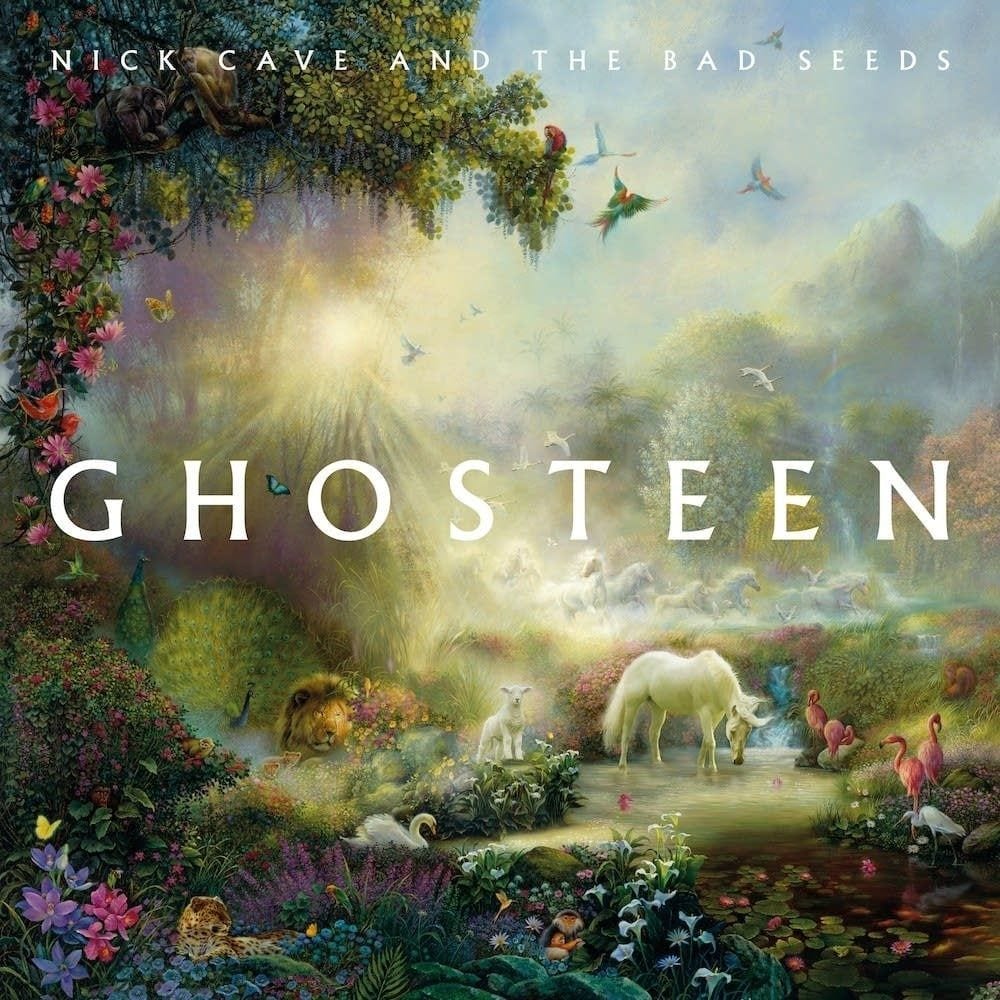
Ghosteen is no easy listen. It is, however, a compelling and downright harrowing one. It is a dispatch of a man trying to order the vicissitudes of unfathomable loss, specifically, the 2015 death of Cave’s teenage son Arthur. From an artistic standpoint, it occupies similar space in music as A Death in the Family does in literature. From its opening elegiac synth swirls, you’re beckoned into something that’s almost unsettlingly voyeuristic. There’s a sense of a violation to be privy to something so personal, yet there’s also a universality for anyone who’s longed in vain for a departed loved one’s return. Likening himself to a firefly trapped in a child’s jar, his light inevitably dimming in the stale air, Cave conveys a spot-on metaphor for the emotional quicksand of surviving when others have not.
The album is intangible, fleeting as gossamer, to the degree it’s almost a fool’s errand to attempt writing about it. Austere synths and consistently sparse instrumentation craft an otherworldly, hazy feel. Some moments are sublime, as in the sorrowful wail of “Bright Horses” or when the drums cease, and the bottom drops out halfway through the 12-minute “Ghosteen”. The song cycle stretches as one continuous work, a suite with the numbers being 11 movements. Grappling with nebulous grief, anger, confusion, and longing, Cave intones narratives that are elliptical rather than direct. He deals in impressionistic images, like still-lifes that take on resonance on knowing the record’s backstory: a child dropping a bucket and spade on a holiday beach, a bereaved parent smoking on a bed in a state of shock, flaming horses running wild through desolate city streets. Recurrent lines abound, taking on new contexts to simulate mourning’s protean nature. Particularly moving is Cave’s shifting perspective of time itself: a savage undertow that regrettably lets go in “Sun Forest”, but then, just as ruefully, won’t relent in the title track. Cave’s history of employing religious iconography is also present in two songs’ reference to a painting of Jesus in his mother’s arms, and that it’s open-ended on if it’s a baby Jesus or a crucified one is a nice, subtle touch.
For all its gloom, the album is not merely a one-way trip through bereavement: it documents the fight for peace amid the wreckage. By the end, in the menacing tones of 14-minute closer “Hollywood”, Cave attains some measure of that sought-after calm. He relates the Buddhistic fable of Kisa Gotami desperately searching for a household wherein no one has died to save her ill baby. Her mission proves fruitless on learning no such home exists. There is comfort, thus, in knowing that death touches everyone indiscriminately, that no one is spared, and that is the real cost of living. — Cole Waterman
Jamila Woods – LEGACY! LEGACY! [Jagjaguwar]
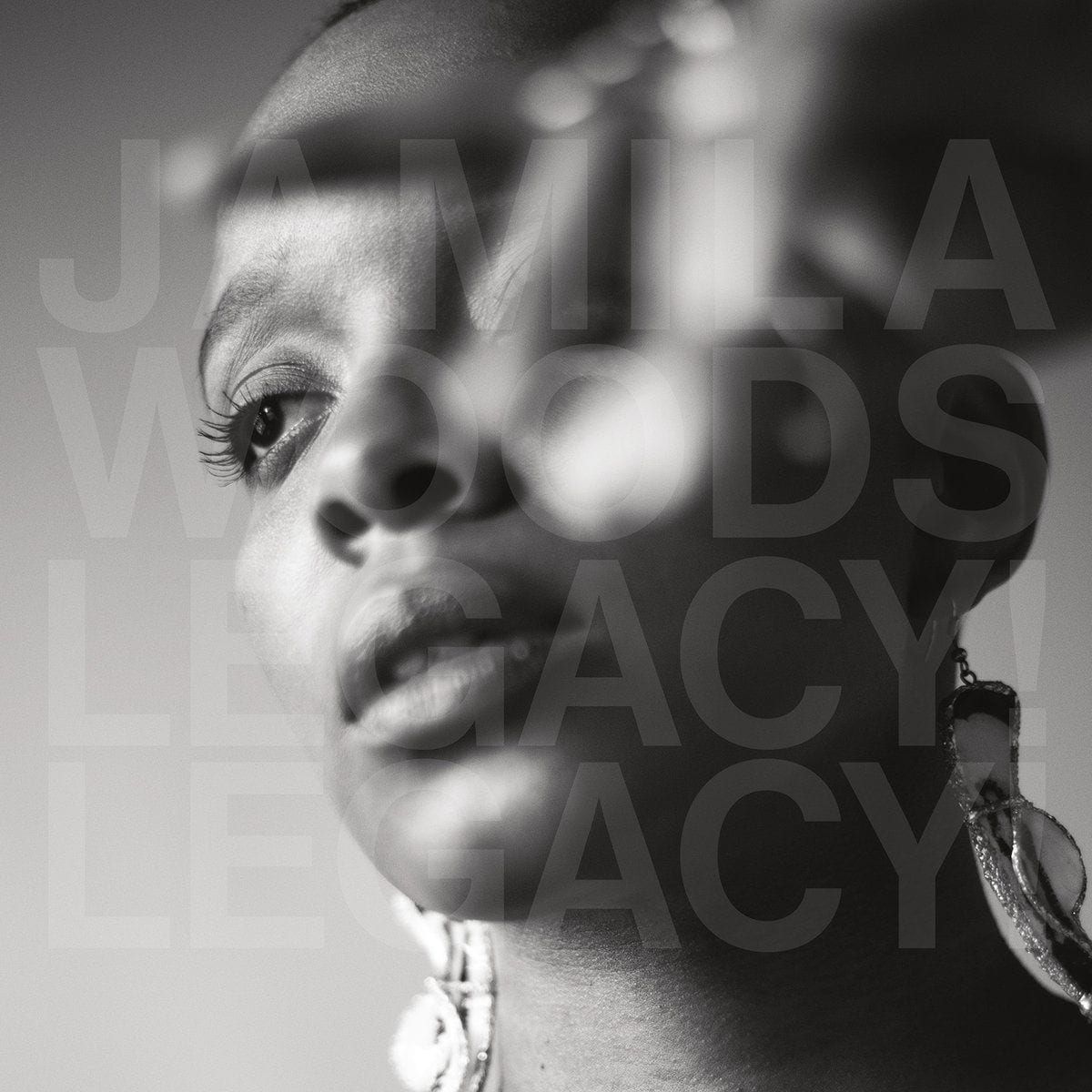
“Legacy” is used by politicians and others who have a high self-regard to describe how they think they’ll be remembered. Or by critics – what will this artist’s legacy be? Singer/poet Jamila Woods’ use of the word is deeper, more inclusive, and more visceral – it represents personal history in the way our bodies, minds, and lives bear concrete marks of those who have come before. With the songs taking on the personalities, perspectives, stories, and provocative ideas of 13 influential artistic figures (Betty Davis, Zora Neale Hurston, Octavia Butler, Muddy Waters, Sun Ra, Eartha Kitt and more) – musically, lyrically, and in Woods’ riveting performances – LEGACY! LEGACY! is one of the most ambitious albums of the year. It has scope and heft, yet it’s also full of immediate pleasures of many varieties. It’s an exciting, thought-provoking work with its fair share of body-moving sounds, ending with a house-music dance party. – Dave Heaton
Dave – PSYCHODRAMA [Neighbourhood]
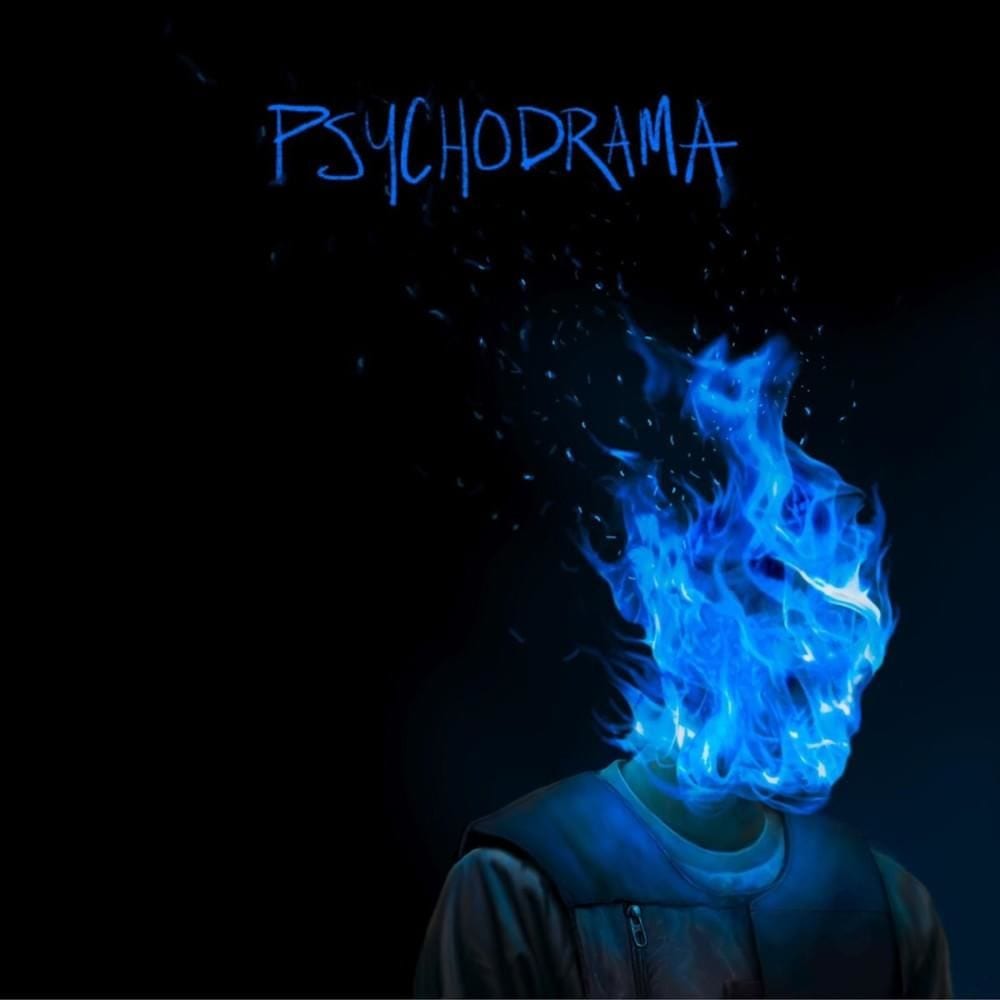
Music is often understood as therapy. But South London rapper, Dave, takes that idea to the next level on his latest LP, PSYCHODRAMA, which begins with the rapper’s therapist speaking into a recorder during their first session. All of a sudden, we’re transported to Dave’s twisted, violent, sensitive world. On the record, the forceful lyricist depicts everyday problems in his everything-but-everyday life.
Switching flows and keeping a foot in both modern trap and hip-hop as much as he does classic boom-bap, Dave divulges mental health issues and insecurities that harken back to early Kanye West mixed with aggressive Eminem storytelling. On “Black”, Dave investigates what the word means, sociologically, a pointed investigation in 2019 made even more interesting coming from a non-American hip-hop success. In total, the record is as much an exercise in people watching as it is a piece of entertainment. – Jacob Uitti
Fontaines D.C. – Dogrel [Partisan]
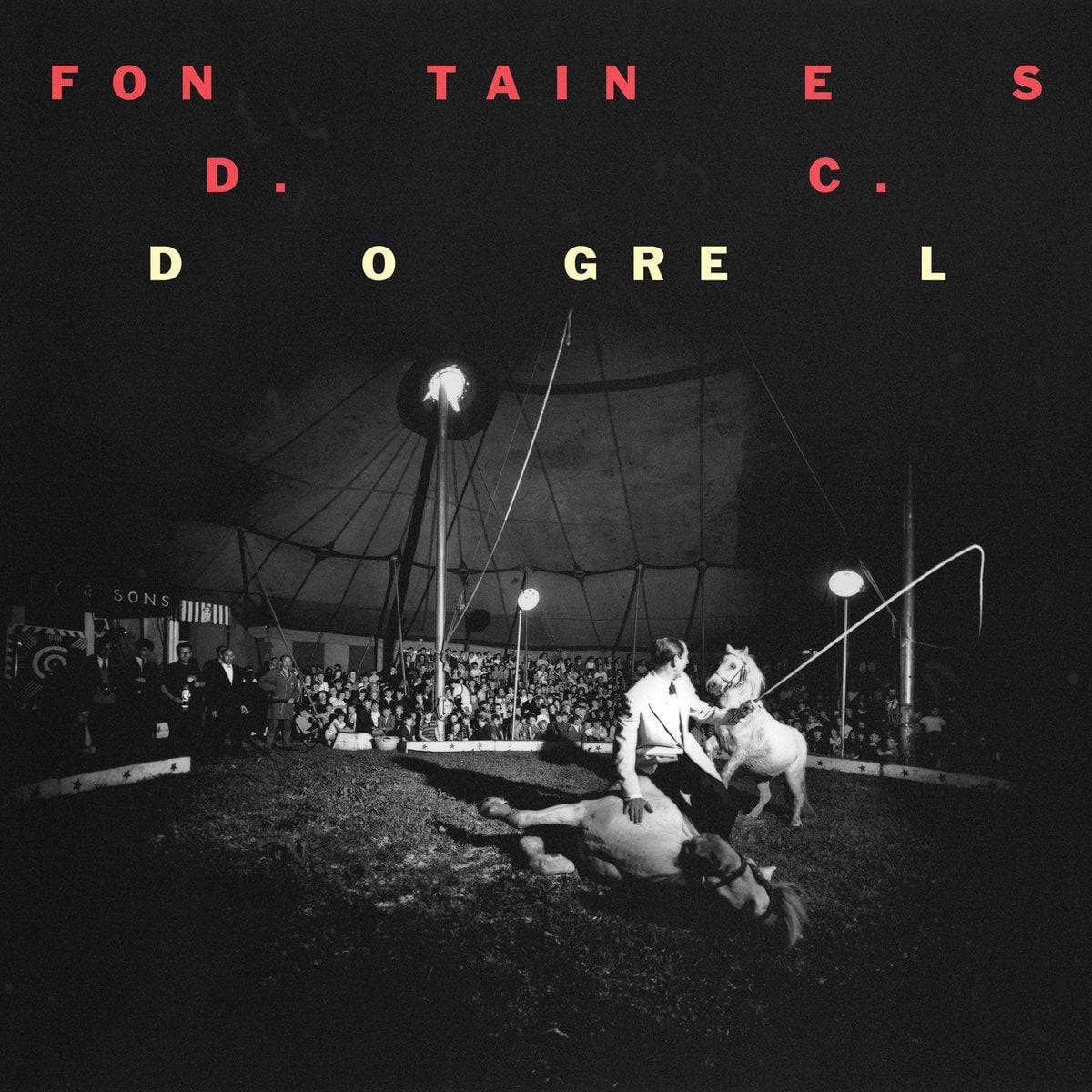
At the risk of deploying a lazy Irish cultural comparison, Fontaines D.C.’s remarkably assured debut resembles nothing so much as a Joycean picaresque of a night out in Dublin. What you hear mostly is the sound of a gauntlet being thrown down, a manifesto being unveiled, a document that combines power, cynicism, elegiac wistfulness, youthful confidence, and both lyrical and musical dexterity. If you’re looking for touchstones, it’s possible to hear Mark E. Smith and the Pogues here, along with any number of post-punk progenitors.
Still, Fontaines D.C. are mostly in their own image, the rare beast that arrives fully formed, able to pivot effortlessly from the grandiose ambition and mise-en-scene establishment of the self-announcing opener “Big”, (“Dublin in the rain is mine / A pregnant city with a Catholic mind”) to the slinky bingo breakout of “Sha Sha Sha” that has riffs to burn along with so many of its counterparts.
What’s more, Dogrel combines an air of shambling disorder with a startling accomplishment and efficiency. It’s hard to say which instrument is more impressive in this prodigious constellation. But Grian Chatten’s vocal style seems to be built to last as it combines threat, boredom and occasional vulnerability into an irresistible patchwork of rock and roll performance. That’s just as the band alongside him shift from the punk rock four-on-the-floor agit-prop of “Too Real” and the almost terrifying “Hurricane Laughter” to the terraces anthem of “Liberty Belle”.
Along the way, there’s the genuinely affecting lyricism of “Roy’s Tune” and “The Lotts” and the closing “Dublin City Sky” which feels almost like a deliberate Pogues pastiche, whether offered with or without irony. Dogrel is the most arresting and accomplished debut in recent memory and offers enormous promise, much of which it pre-emptively fulfills here. – Rod Waterman
Lana del Rey – Norman Fucking Rockwell [Polydor/Interscope]
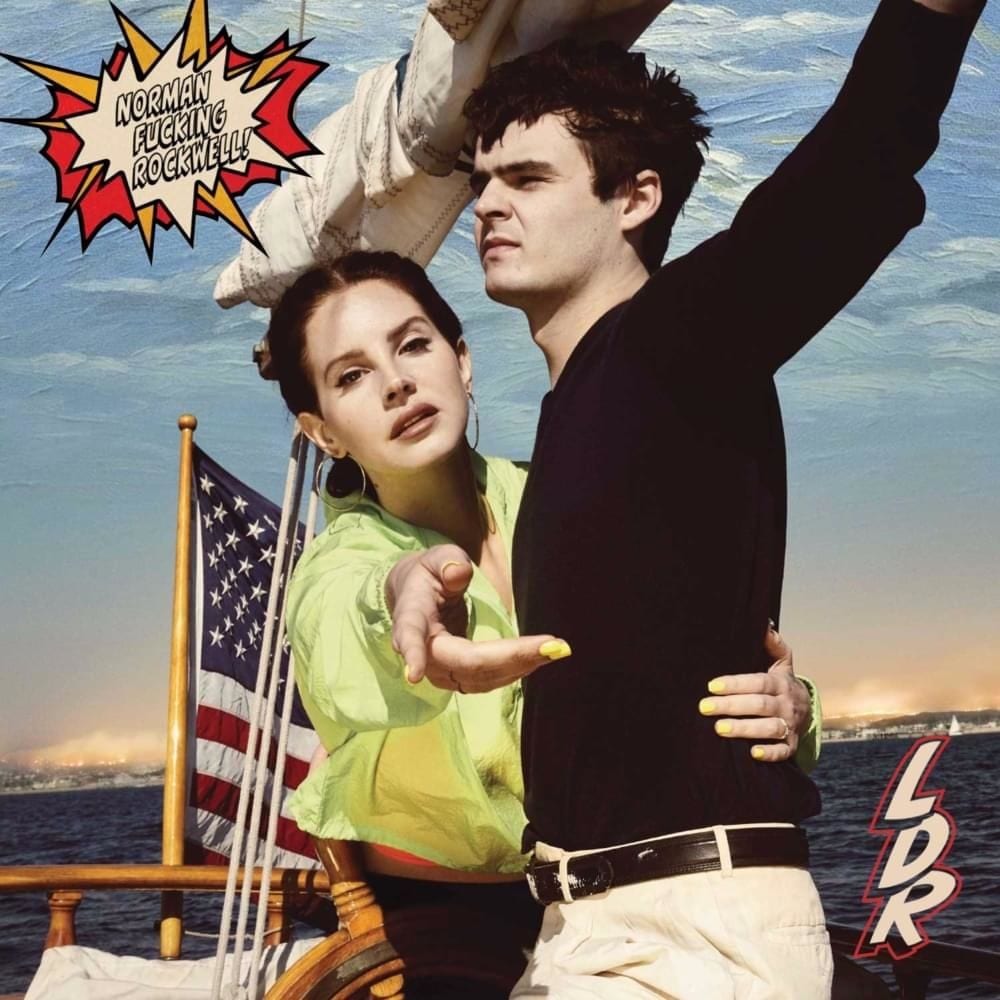
If there’s anything that fans and critics alike have learned from seven tumultuous, Pepsi-flavored years of Lana del Rey’s artistry, it’s that she lives to stomp on as many lines as possible between true nostalgia and wishful myth-making, emotion and affect, earnestness and irony, the political and apolitical. Her lyrics so good that they’re kind of trite, lyrics so bad that they’re kind of genius. Norman Fucking Rockwell! is stuffed to the brim with these dichotomies, a del Rey record through and through – but where her past LPs have been exercises in icon worship and mood-making, her fifth full-length LP is something different entirely.
Norman Fucking Rockwell! revolutionizes the format of folk – the sound of the heartfelt soul searcher – and finds a way to make the language of modern love actually sound romantic. Norman Fucking Rockwell! is peppered with the parlance of the internet, the oversharing crassness of modern love (“You fucked me so good! Fuck it! It’s lit!”). Still committed as ever to nostalgic world-building, Norman Fucking Rockwell! moves the icons of the past into the future with casual and charming ease. Joni Mitchell’s Ladies of the Canyon are yoga babes donning black at house parties. The Old Kanye and Dennis Wilson are mourned on the same song. Crosby Stills & Nash plays on the radio in the same universe in which one might utter the phrase “fresh out of fucks forever”.
Norman Fucking Rockwell! is Lana’s most essential record not because of its historical context, nor because of any unexpected revolution of style or content, but because it proves that the right melodies, the real love stories, the true longing for the past, and anxieties for the future will never get old. She is the woman for the job. – Nick Malone
slowthai
– Nothing Great About Britain [Method]
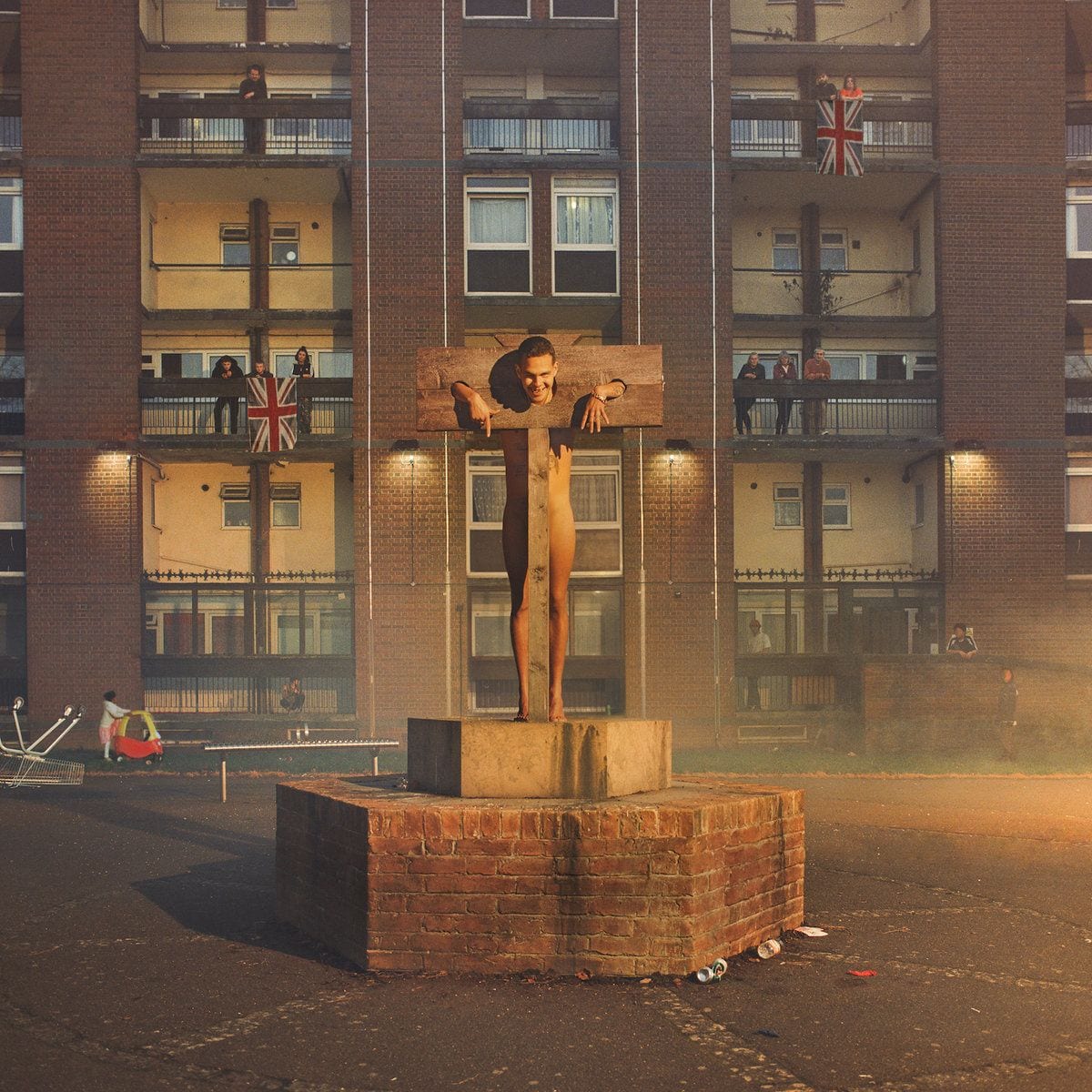
On his debut full-length Nothing Great About Britain, the Northampton rapper slowthai refuses to remain listlessly disillusioned and rather abrasively takes on his nation’s dominant institutions and ideologies. Aligning himself with artists such as Idles and JPEGMAFIA, slowthai joins the emerging collective of explosively angry but still precise musicians. That is, he aims to antagonize but for a thoughtful purpose. With such a blunt album title, slowthai planned to release NGAB during Britain’s departure from the European Union. While postponements stymied such plans, his intent still rang true throughout 2019 as songs like the “Nothing Great About Britain” and “Inglorious feat. Skepta” not only take on Brexit but also violent nationalism, growing wage disparities, and a history of colonialism.
It is a necessary evolution of the UK punk ethos and sound, as heard on the defining genre-bending cut “Doorman”, produced by Mura Masa. On it, slowthai demands, “Doorman, let me in the door / Spent all my money, you ain’t gettin’ no more wages”. And, it is with such call to arms that slowthai hopes to transform the youths’ festering disillusionment into passionate action. – Hans Kim
FKA Twigs – Magdalene [Young Turks]

FKA twigs’ MAGDALENE is cinematic in its scope and narrative. Written after a period of physical and emotional turmoil, twigs finds kinship with Mary Magdalene, the New Testament’s reviled and repentant prostitute. Scorned by white clergy and reaffirmed by their assenters, the history of Mary Magdalene has been far more complicated than normative narratives dare decree. Hence twigs locates herself akin to Mary Magdalene’s oppressive narratives then upends the marginalization. Whereas Mary Magdalene is silenced by history, it is twigs’ power combined with the ephemeral beats that bring the album its voice.
MAGDALENE serves as a missive: twigs’ see Mary Magdalene’s narrative as a parable for the ubiquitous attacks on contemporary female artists by tabloids and fans. Whereas the eponymous heroine was never able to reclaim her narrative, twigs uses MAGDALENE as a conduit to regain power and subvert oppressive ideologies. – Elisabeth Woronzoff
- The 50 Best Albums of 2019 So Far - PopMatters
- The 20 Best Metal Albums of 2019 - PopMatters
- The 10 Best World Music Albums of 2019 - PopMatters
- The 10 Best Ambient Albums of 2019 - PopMatters
- The 15 Best R&B/Soul Albums of 2019 - PopMatters
- The 10 Best Electropop Albums of 2019 - PopMatters
- The 10 Best Indie Rock Albums of 2019 - PopMatters
- The 50 Best Albums of 2020 So Far - PopMatters
- 100 gecs: 1000 Gecs and the Tree of Clues | Music Review - PopMatters
- Clipping: Visions of Bodies Being Burned | Music Review - PopMatters

